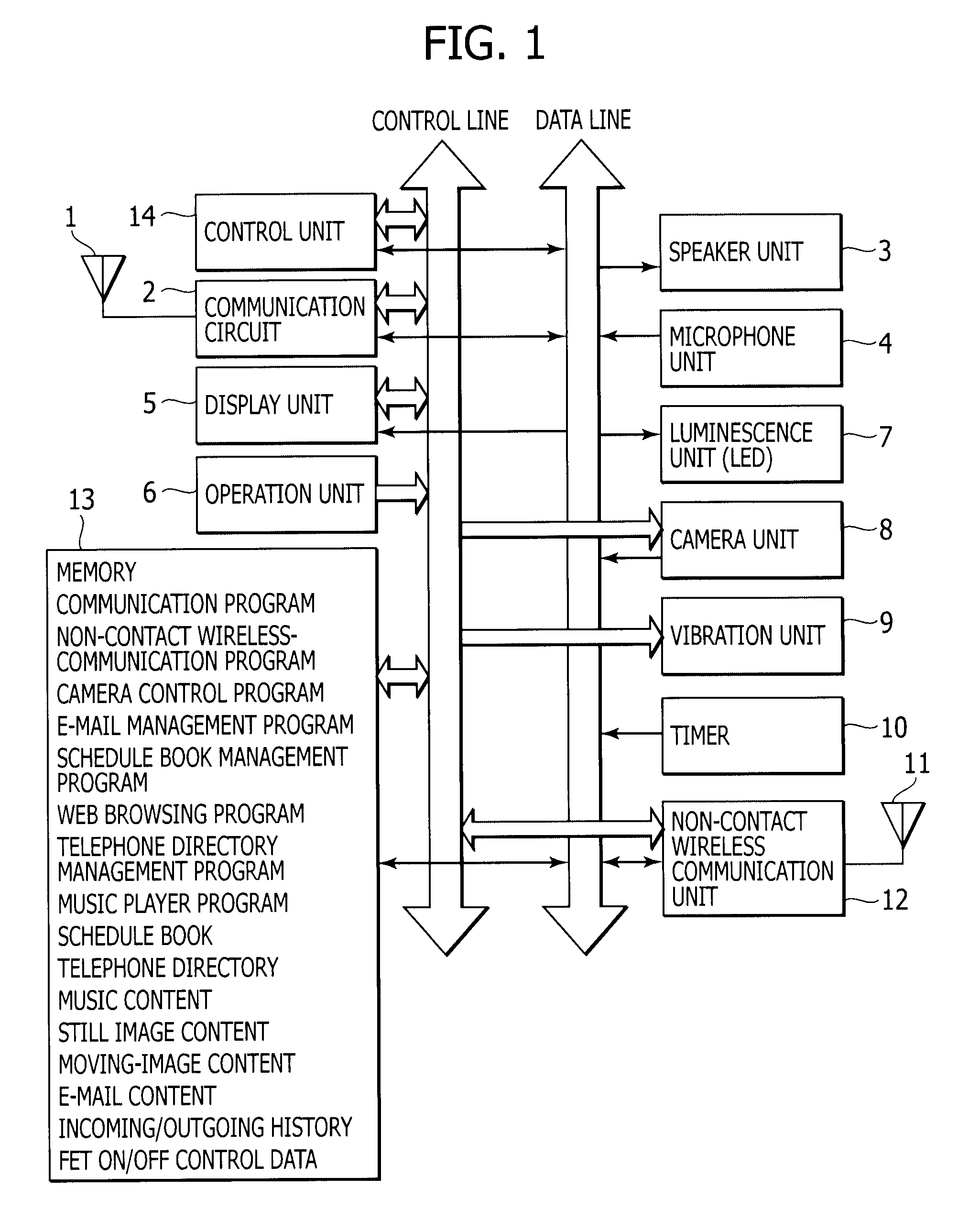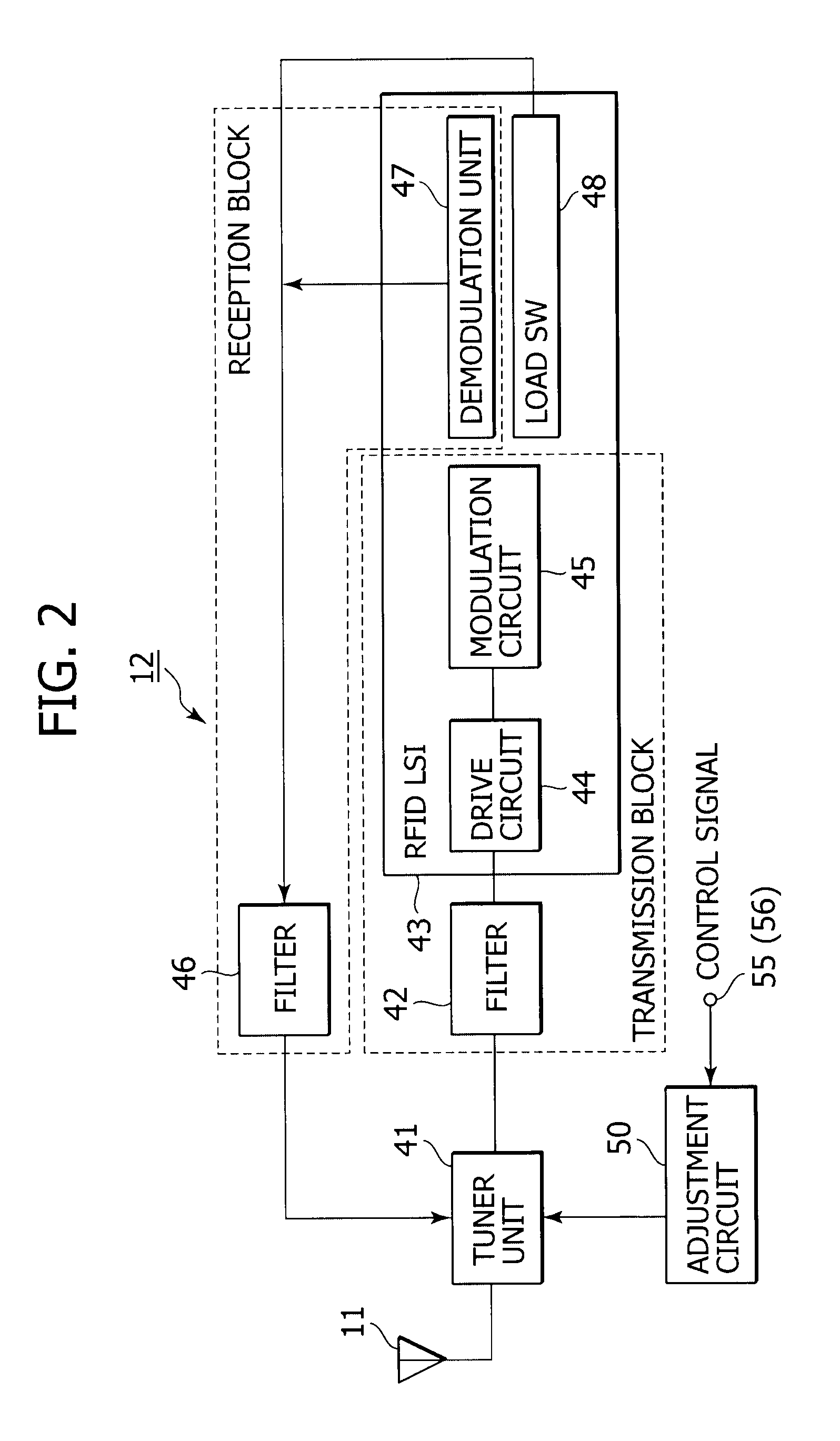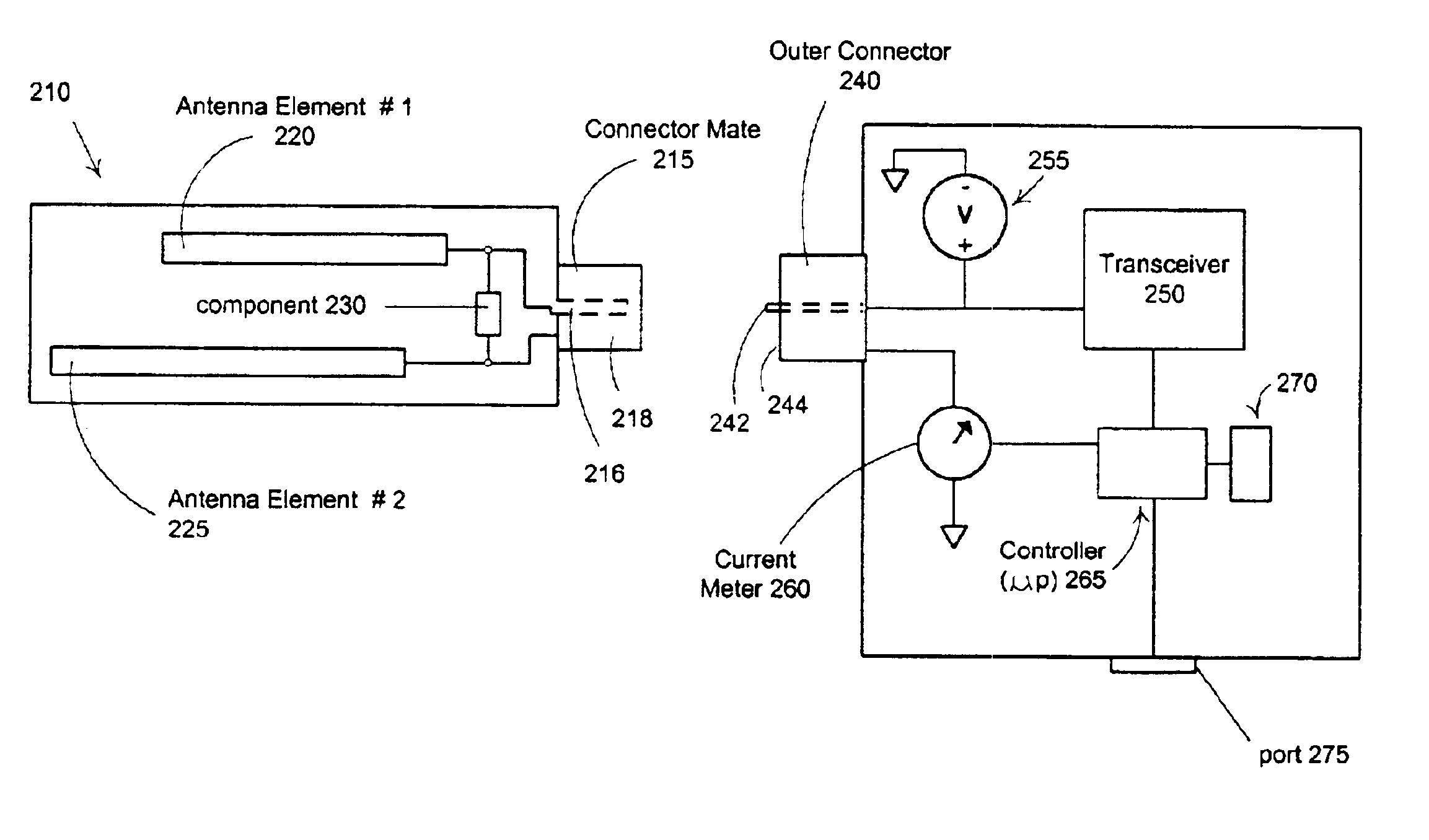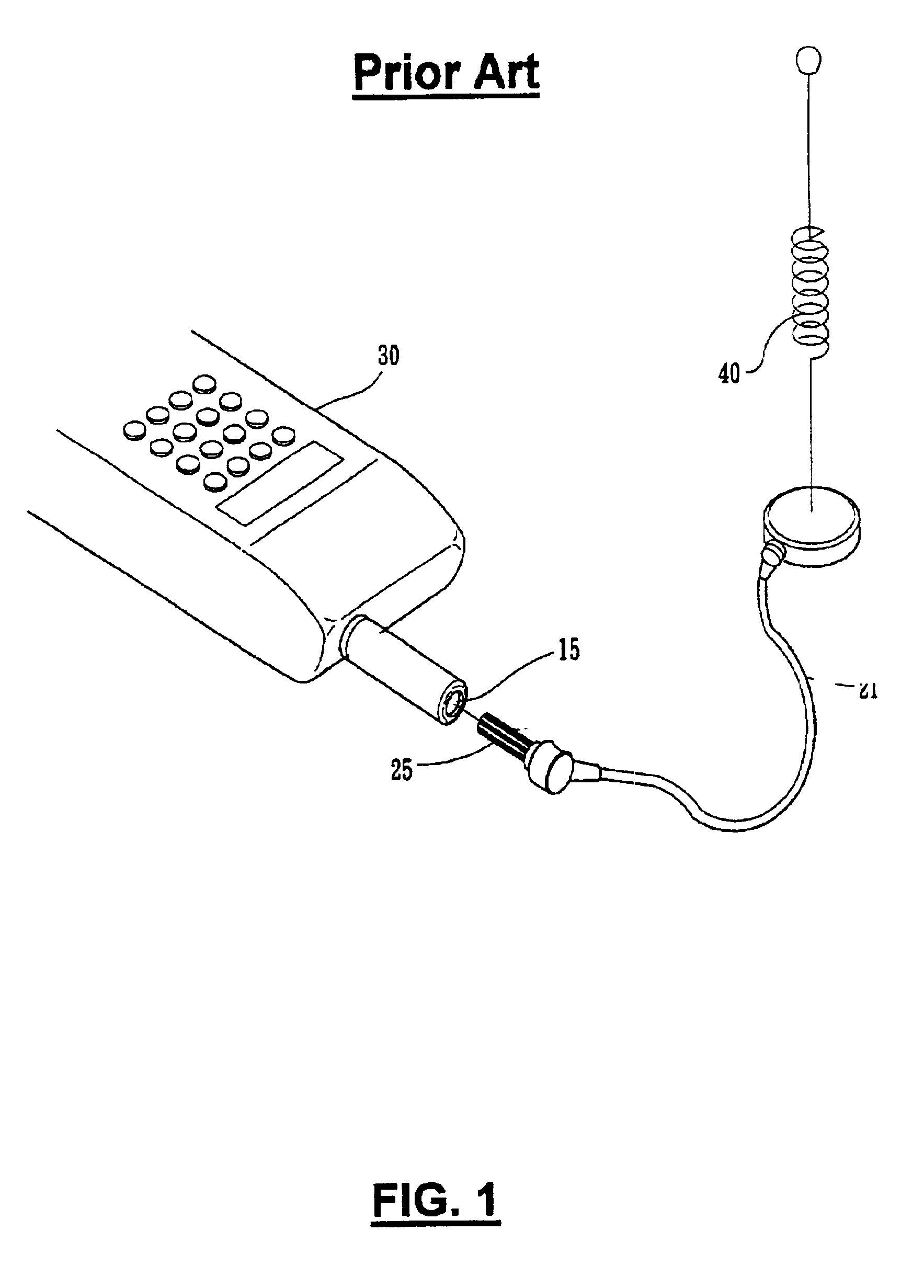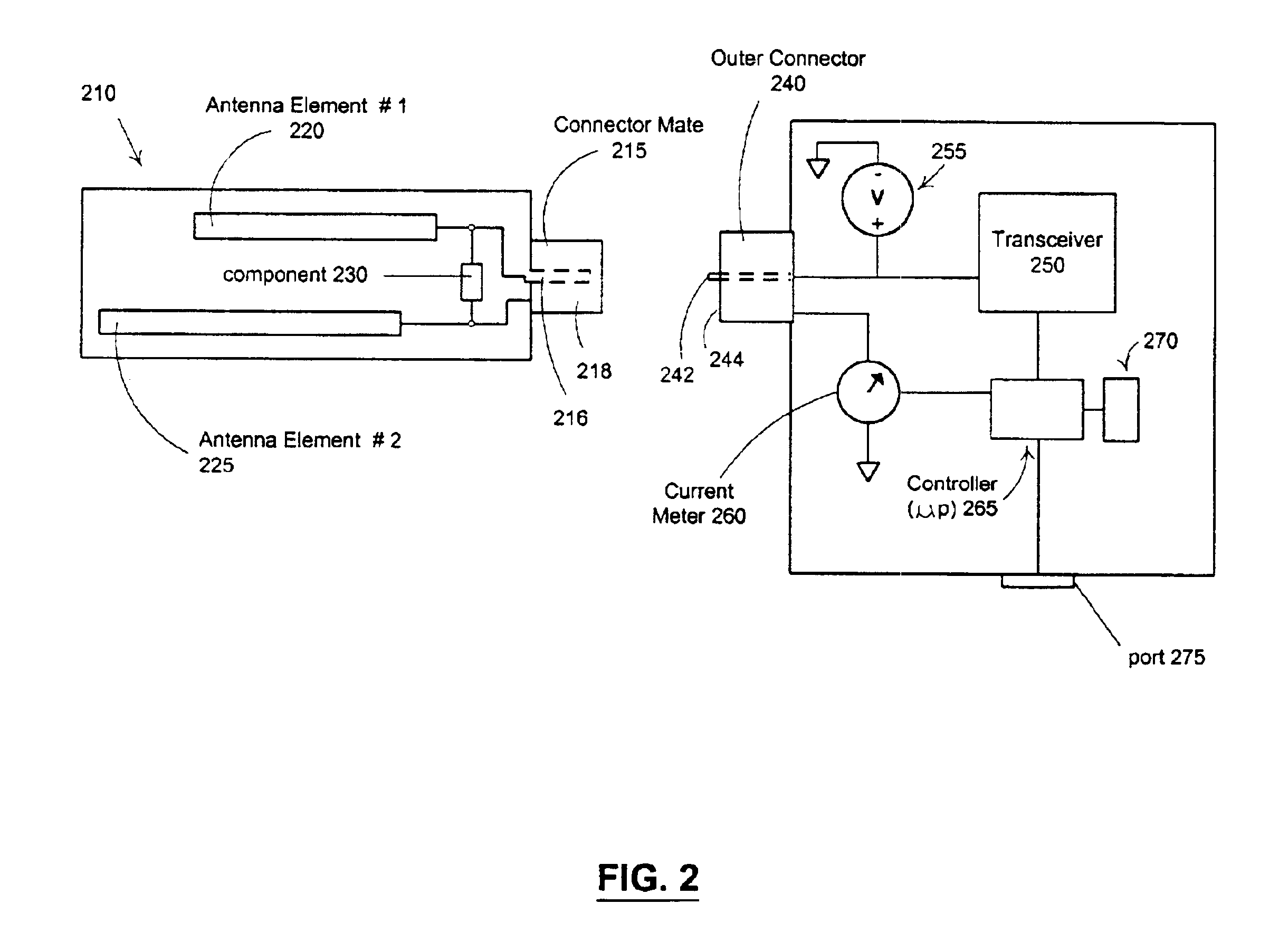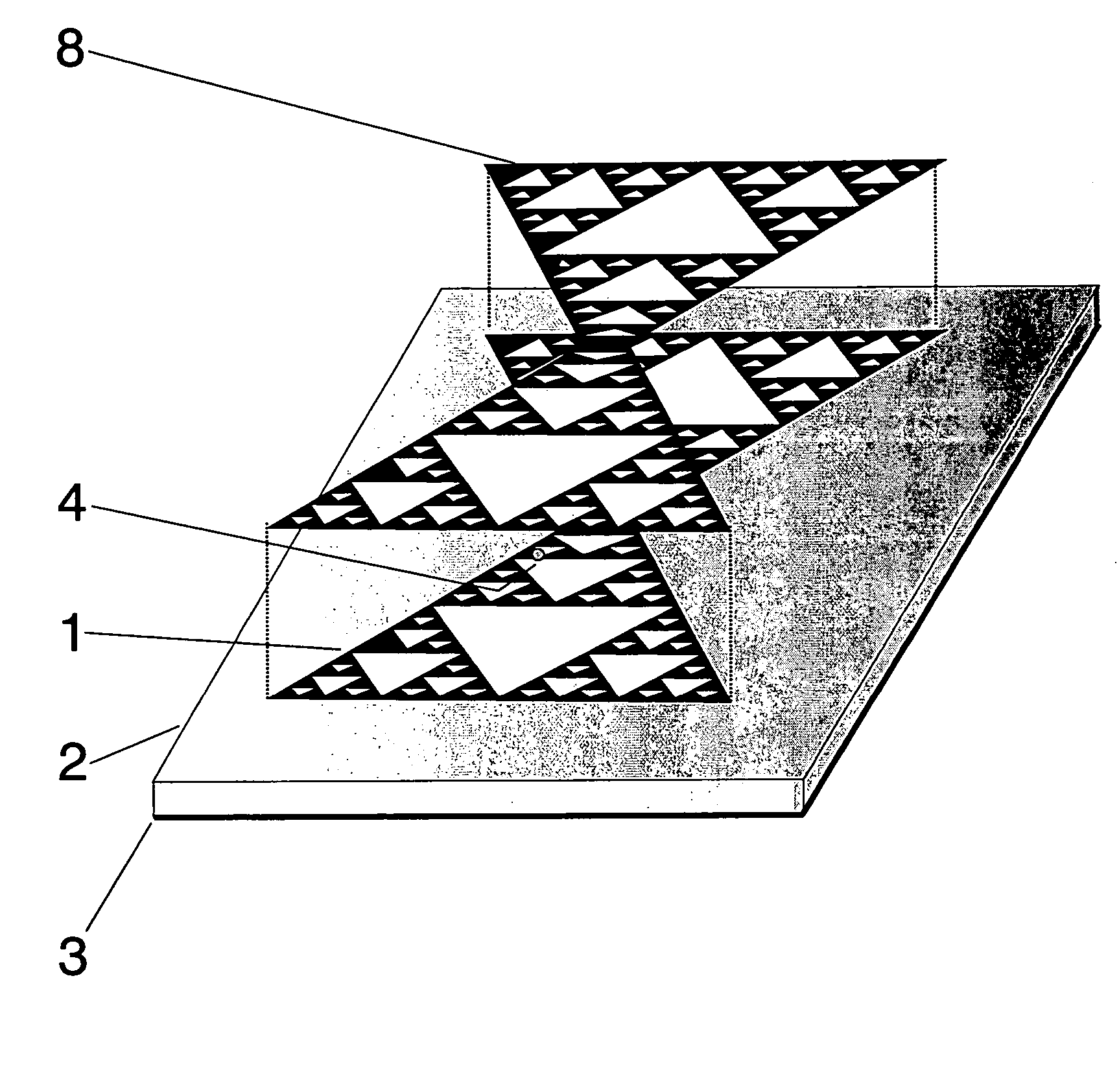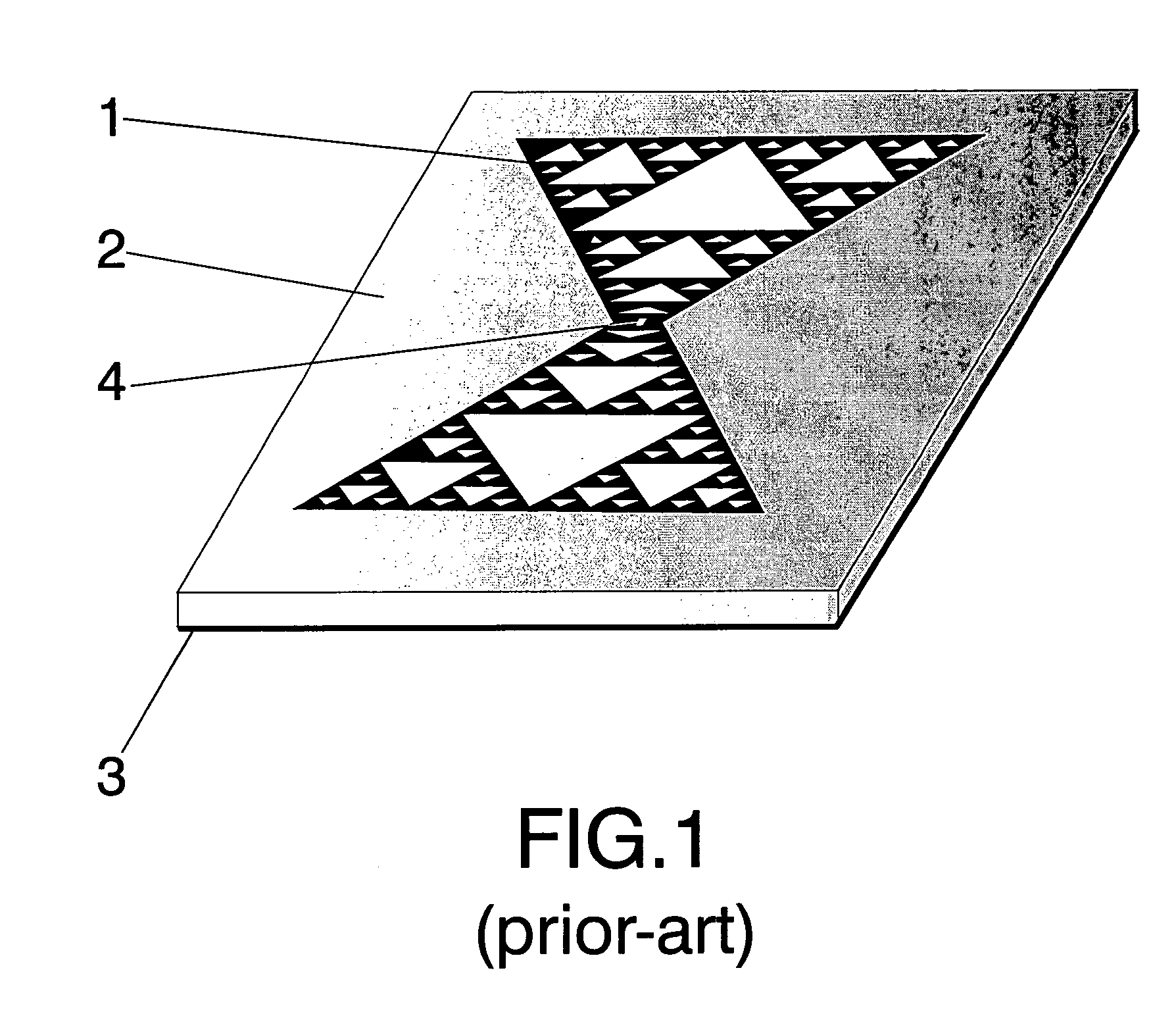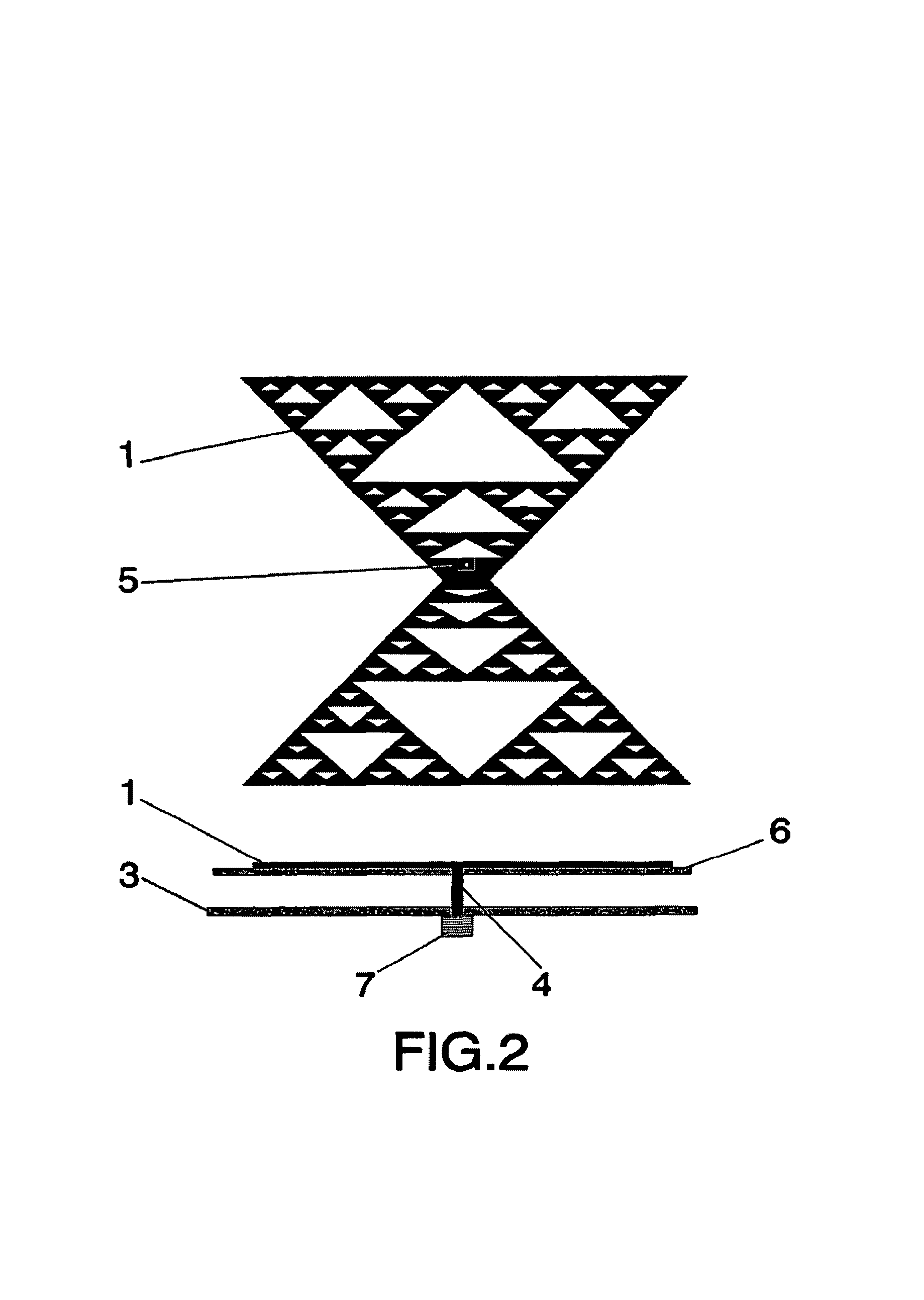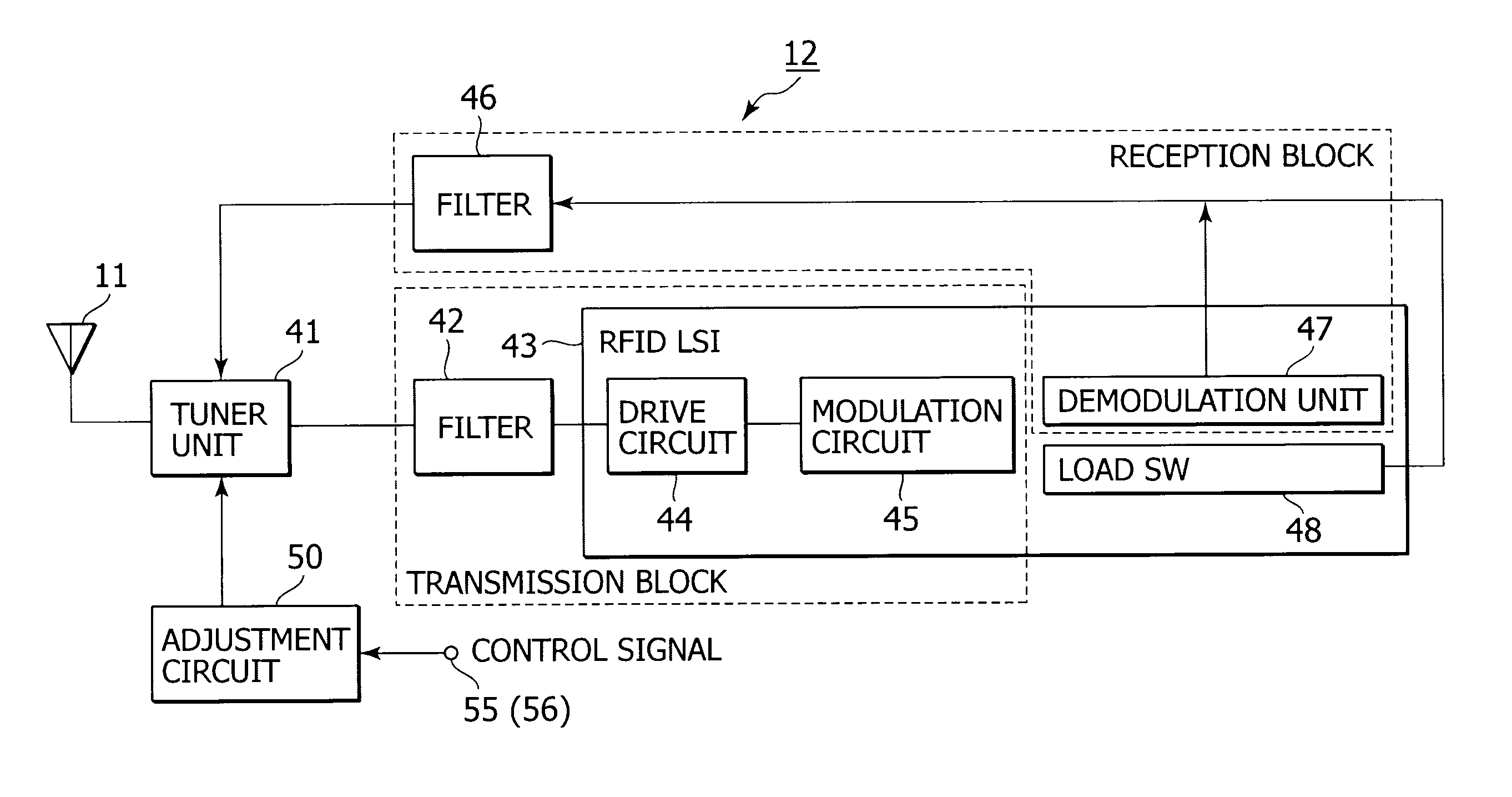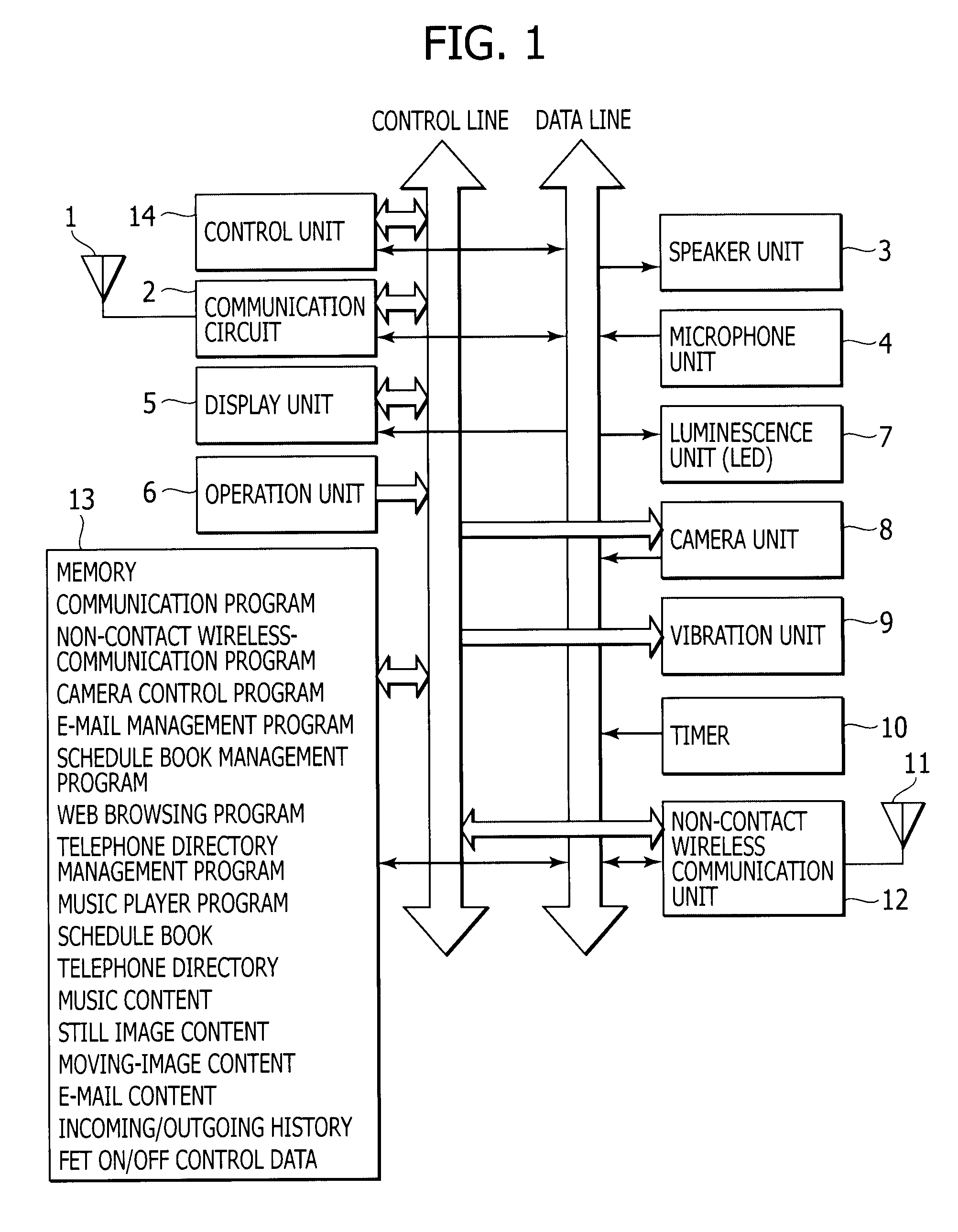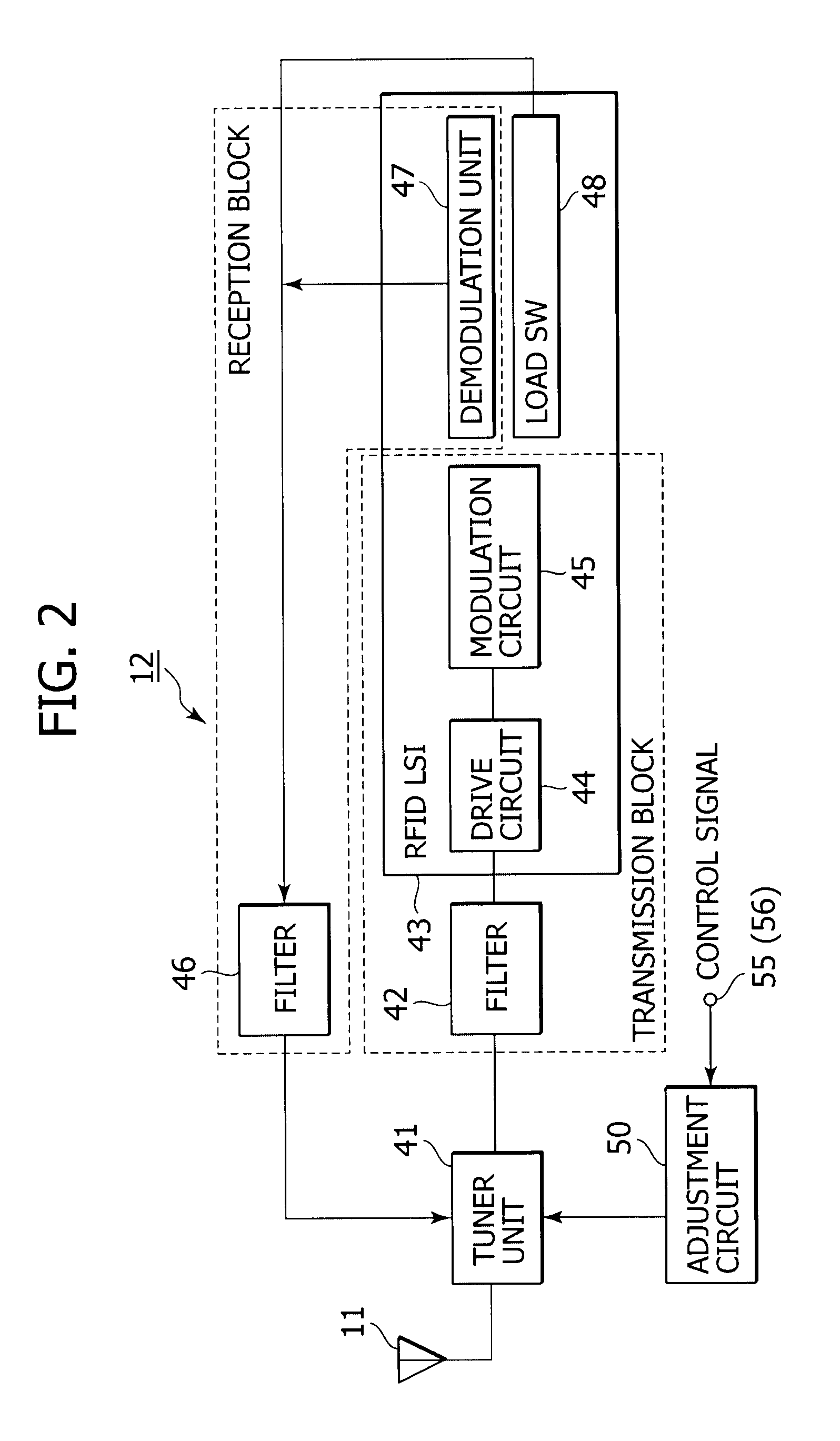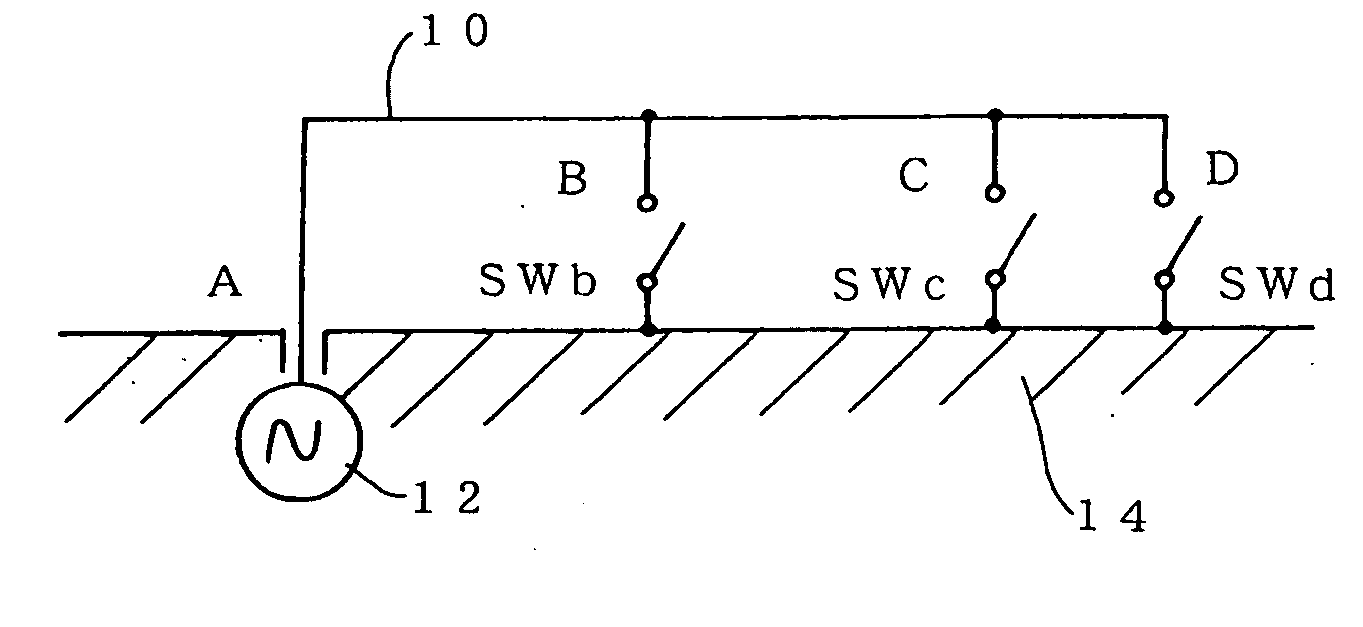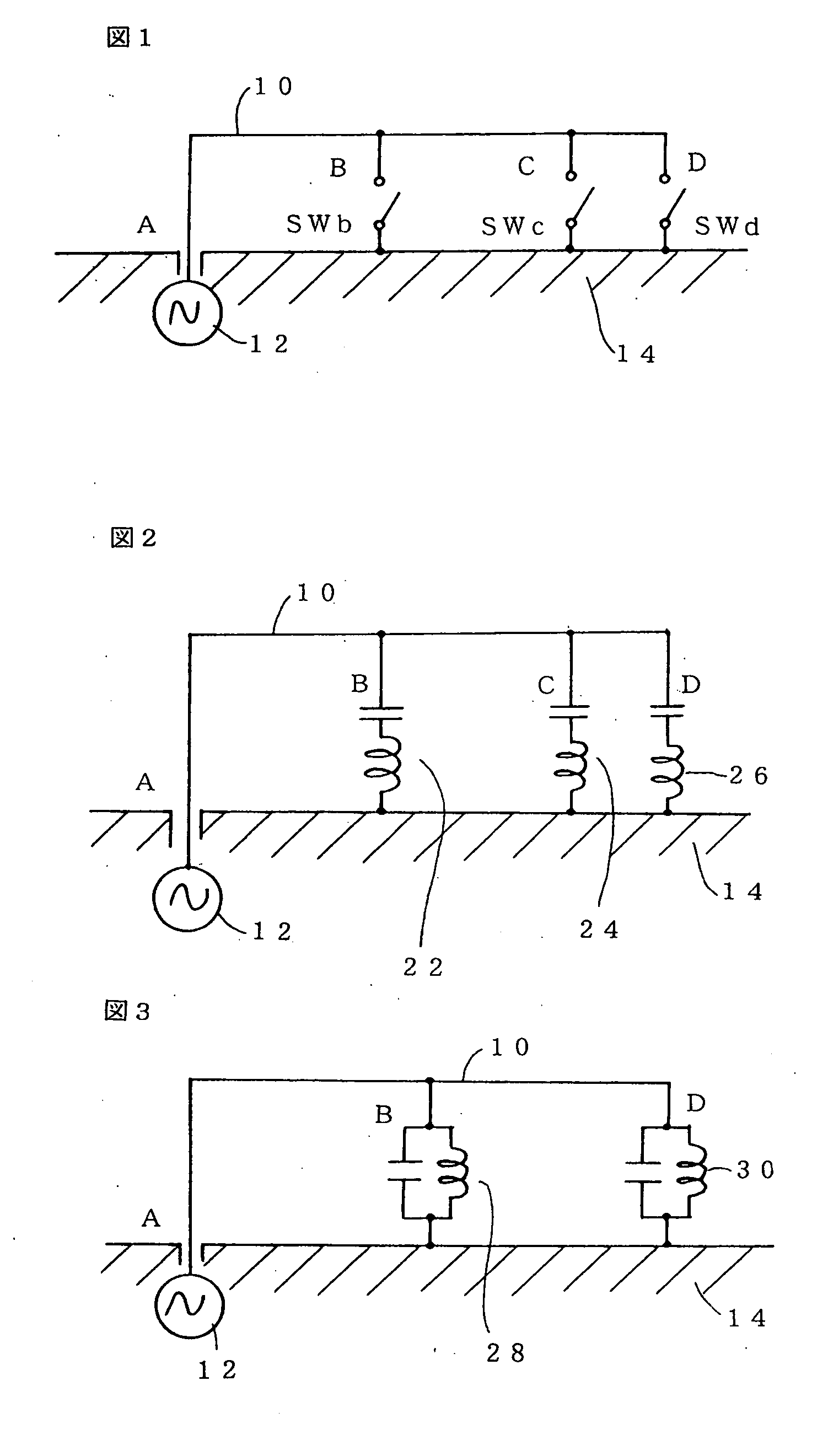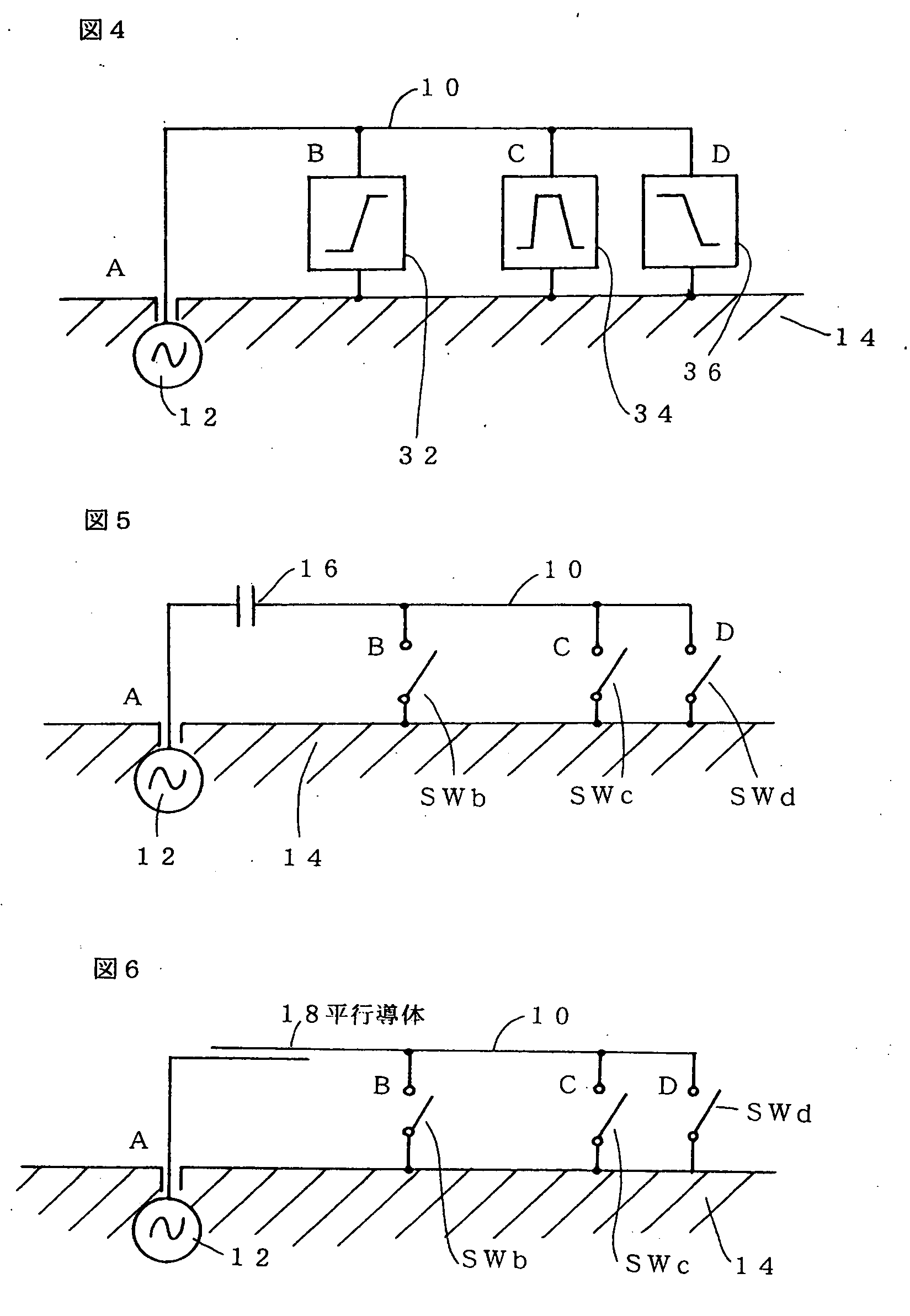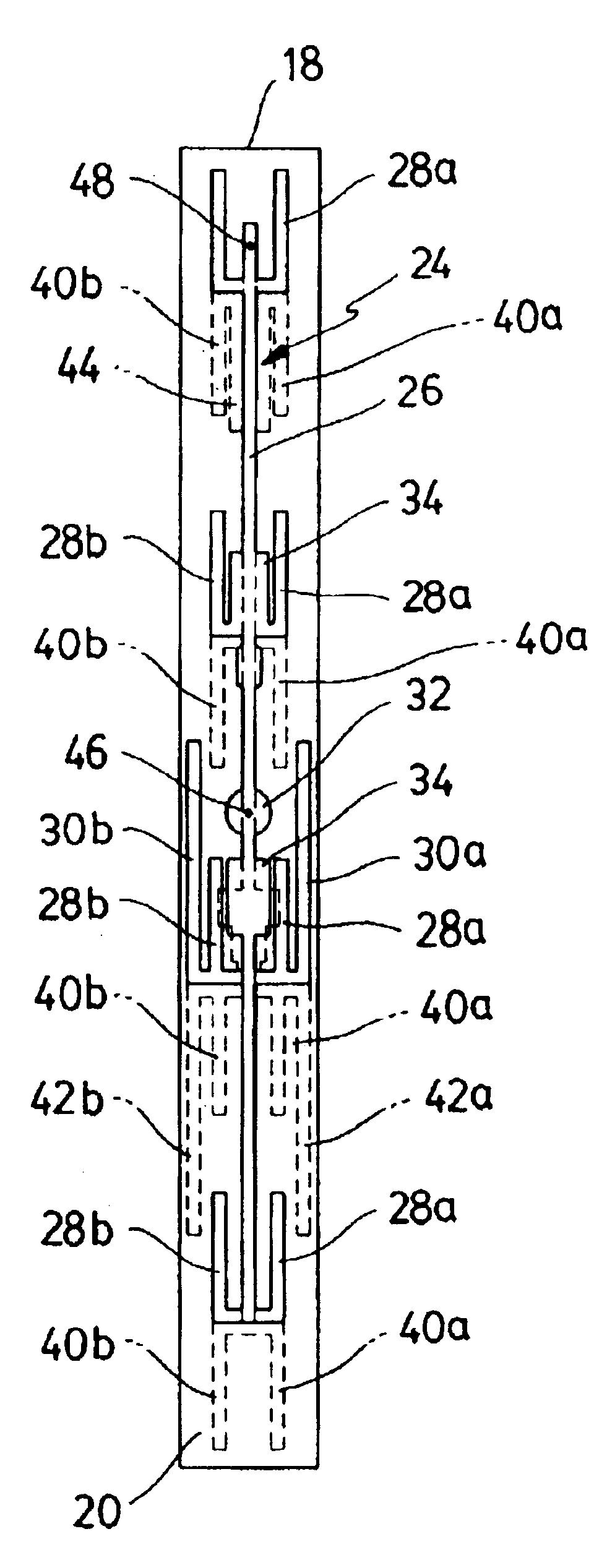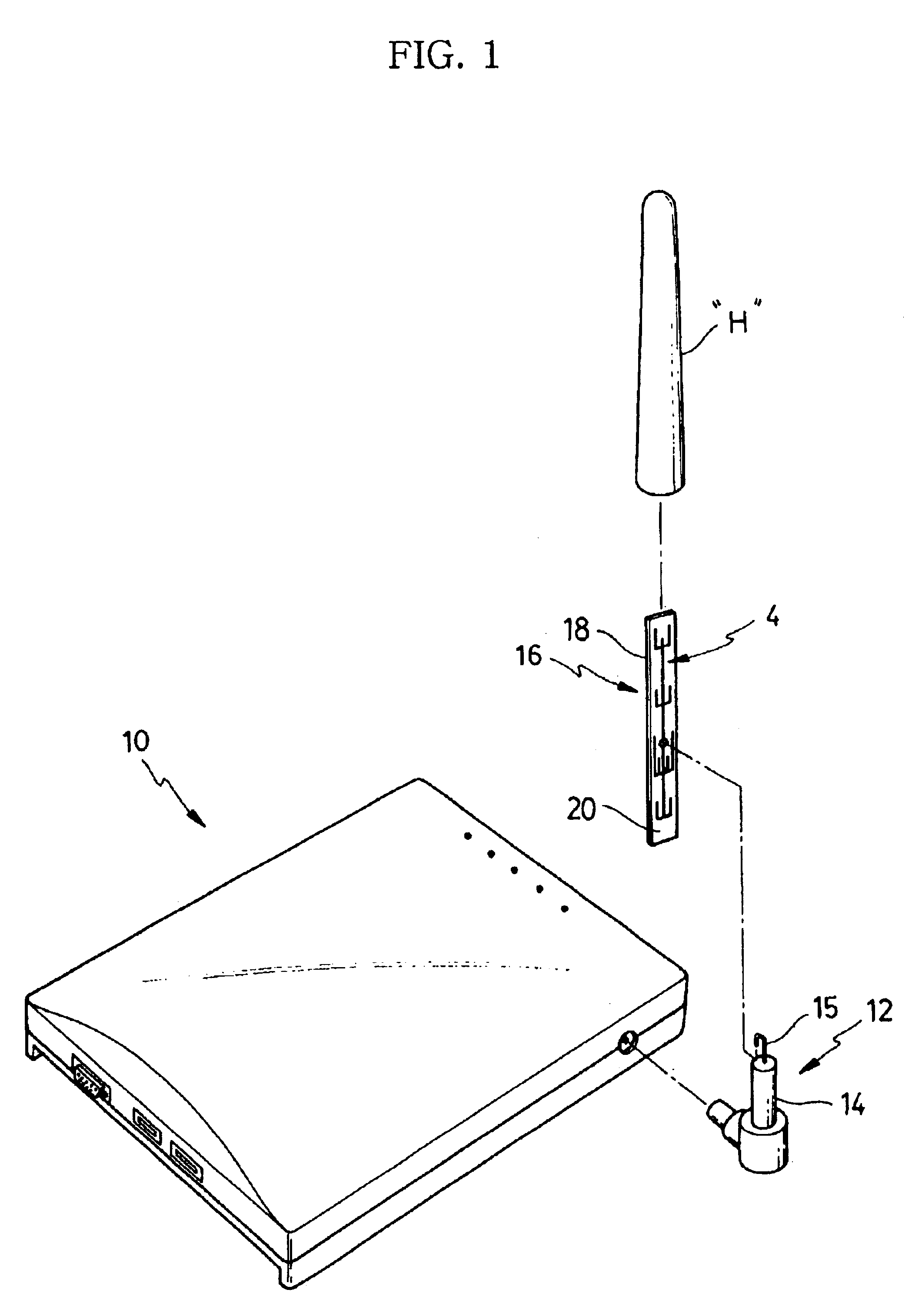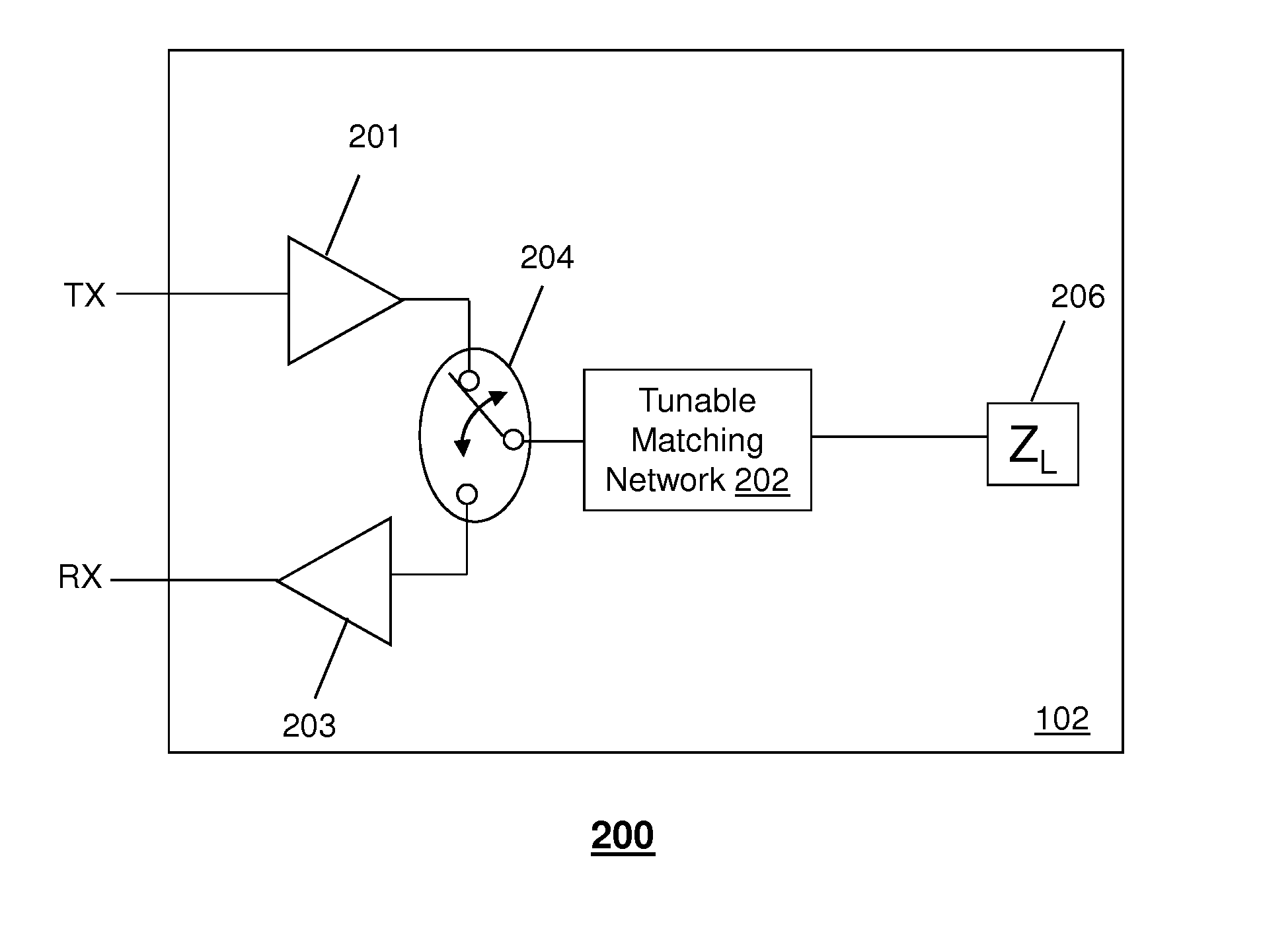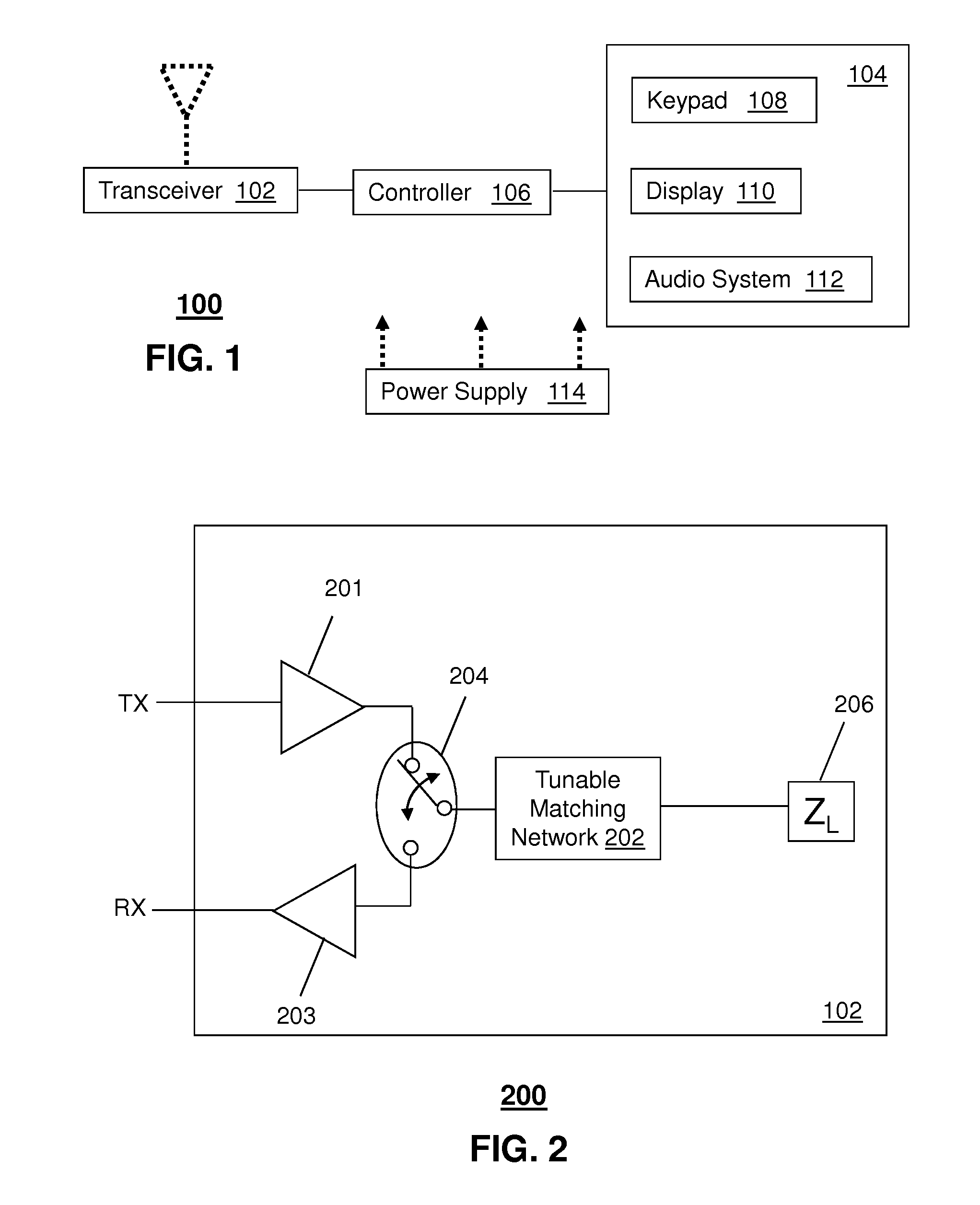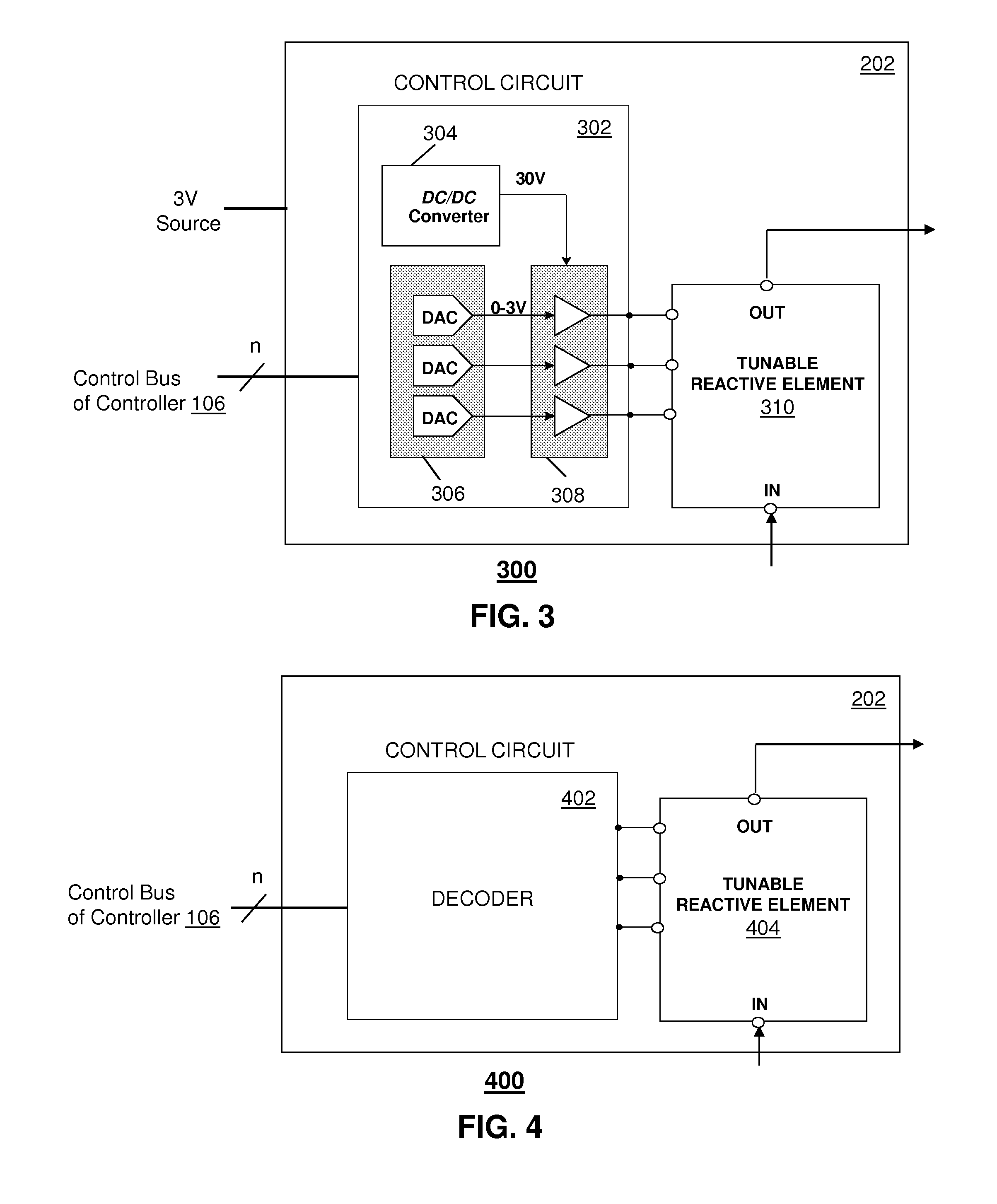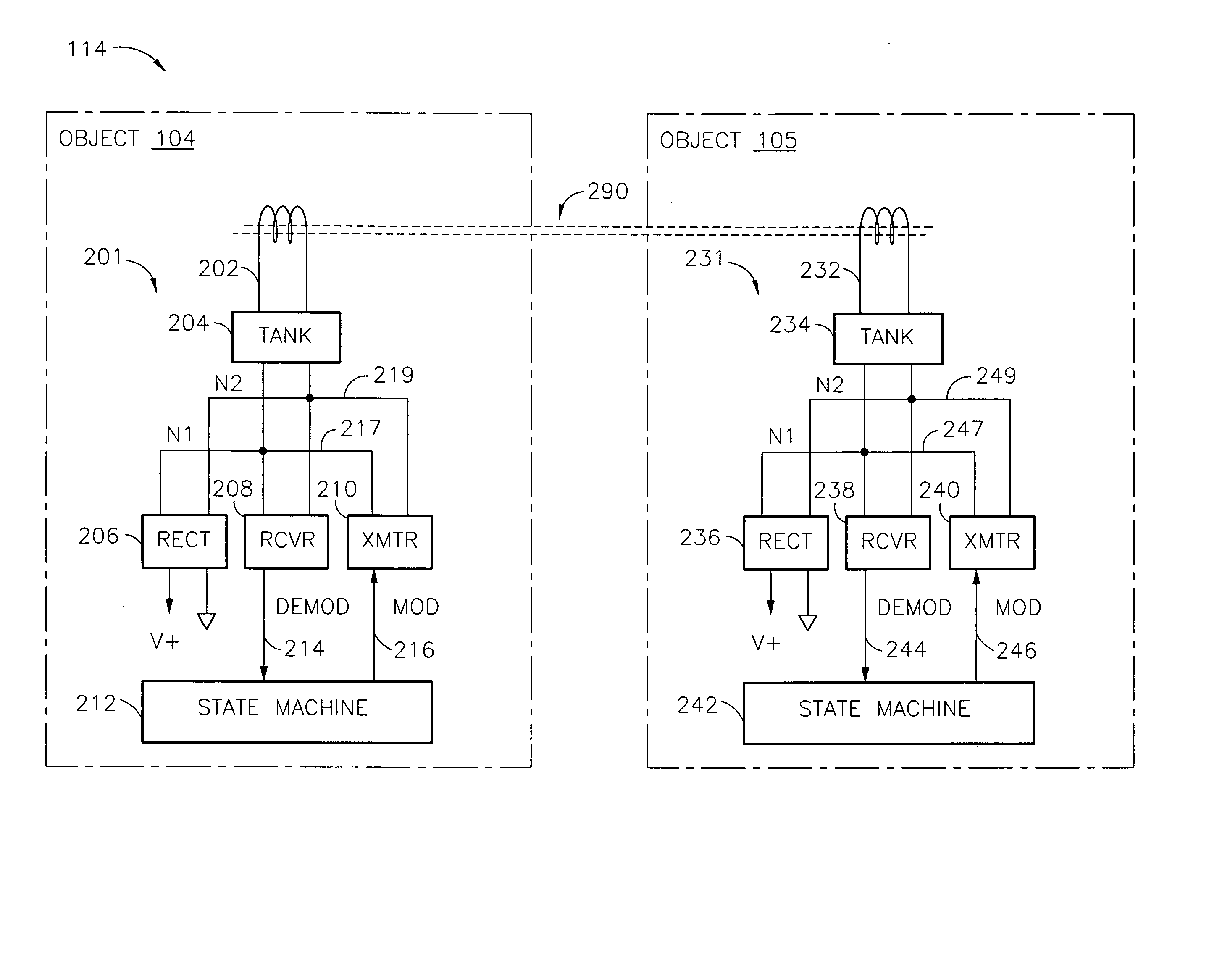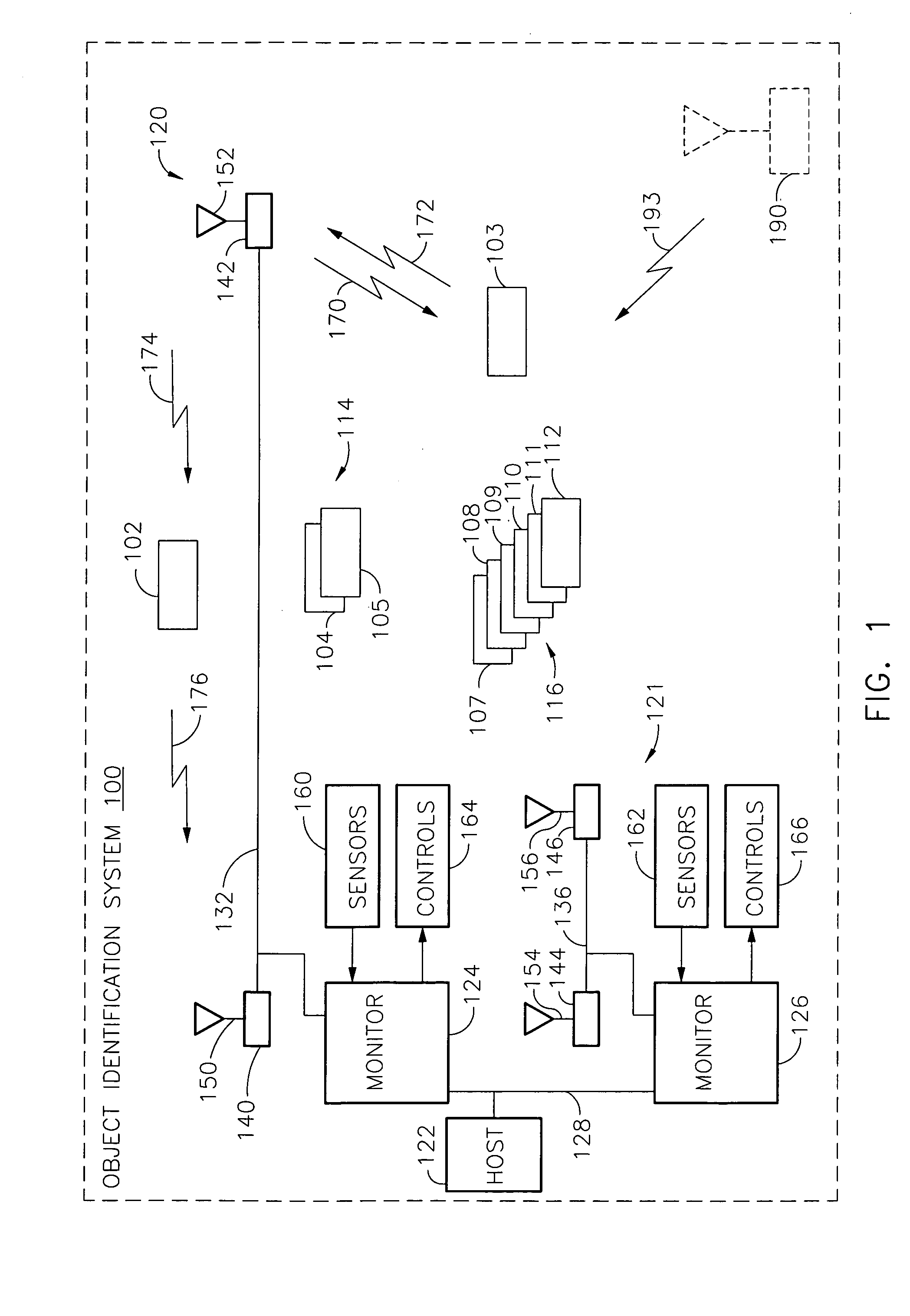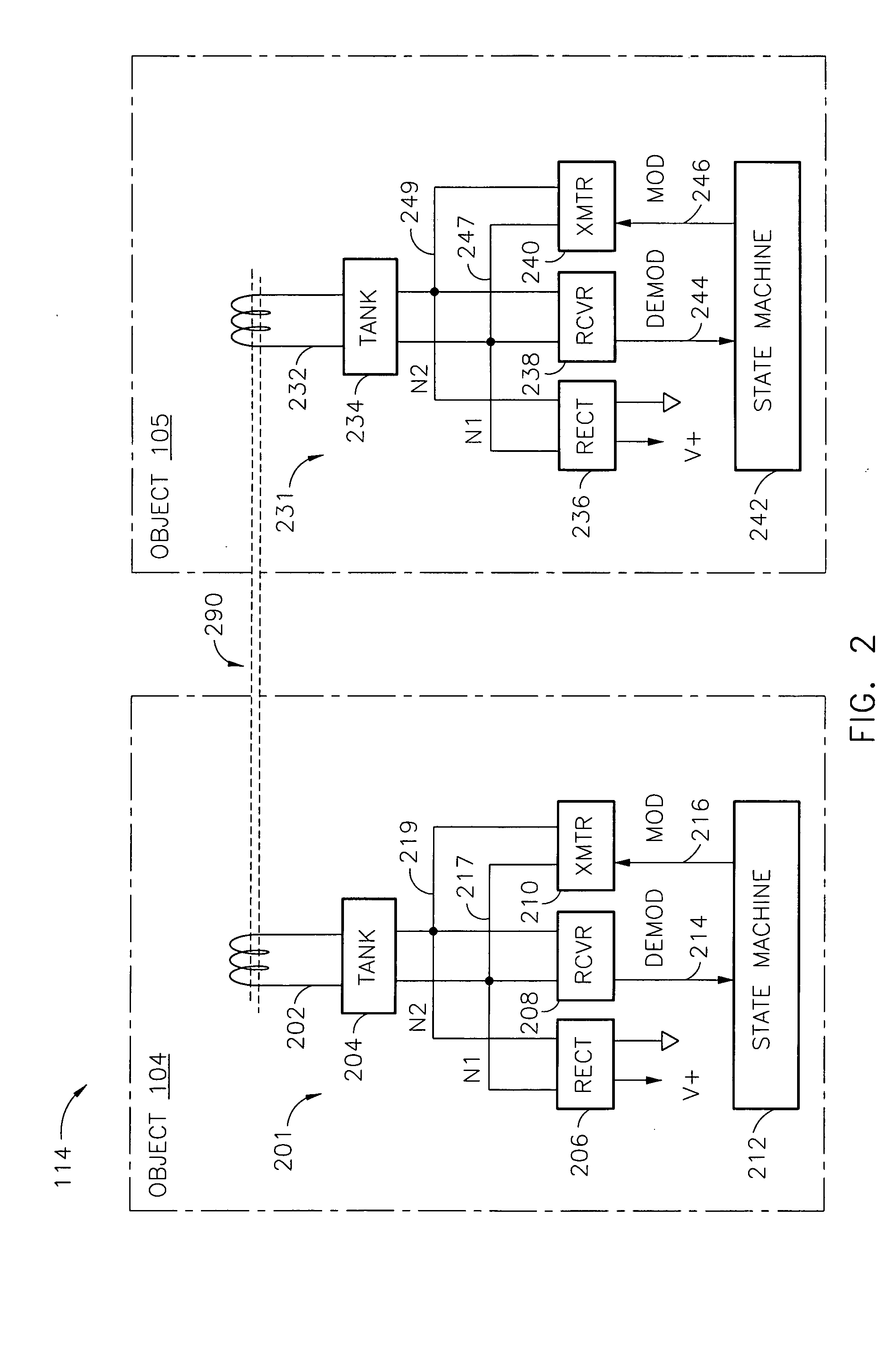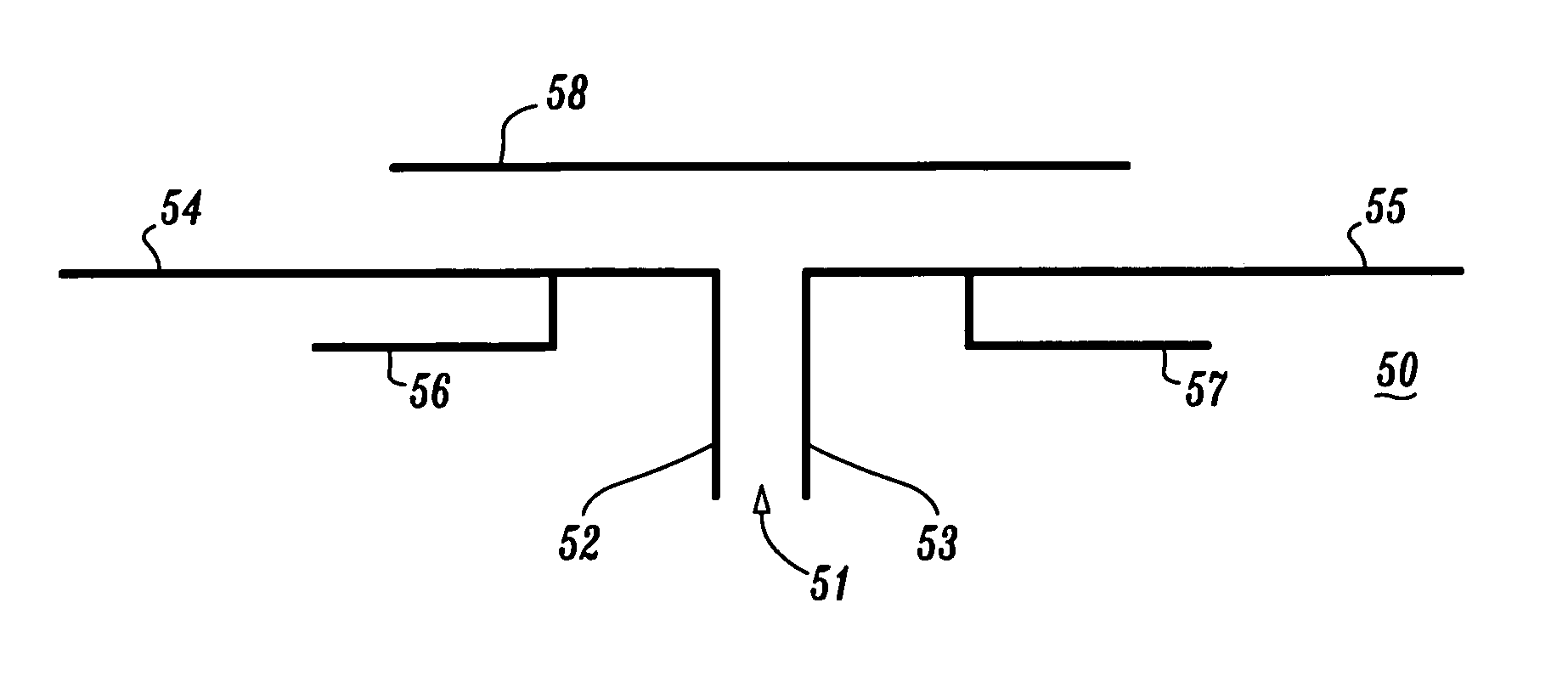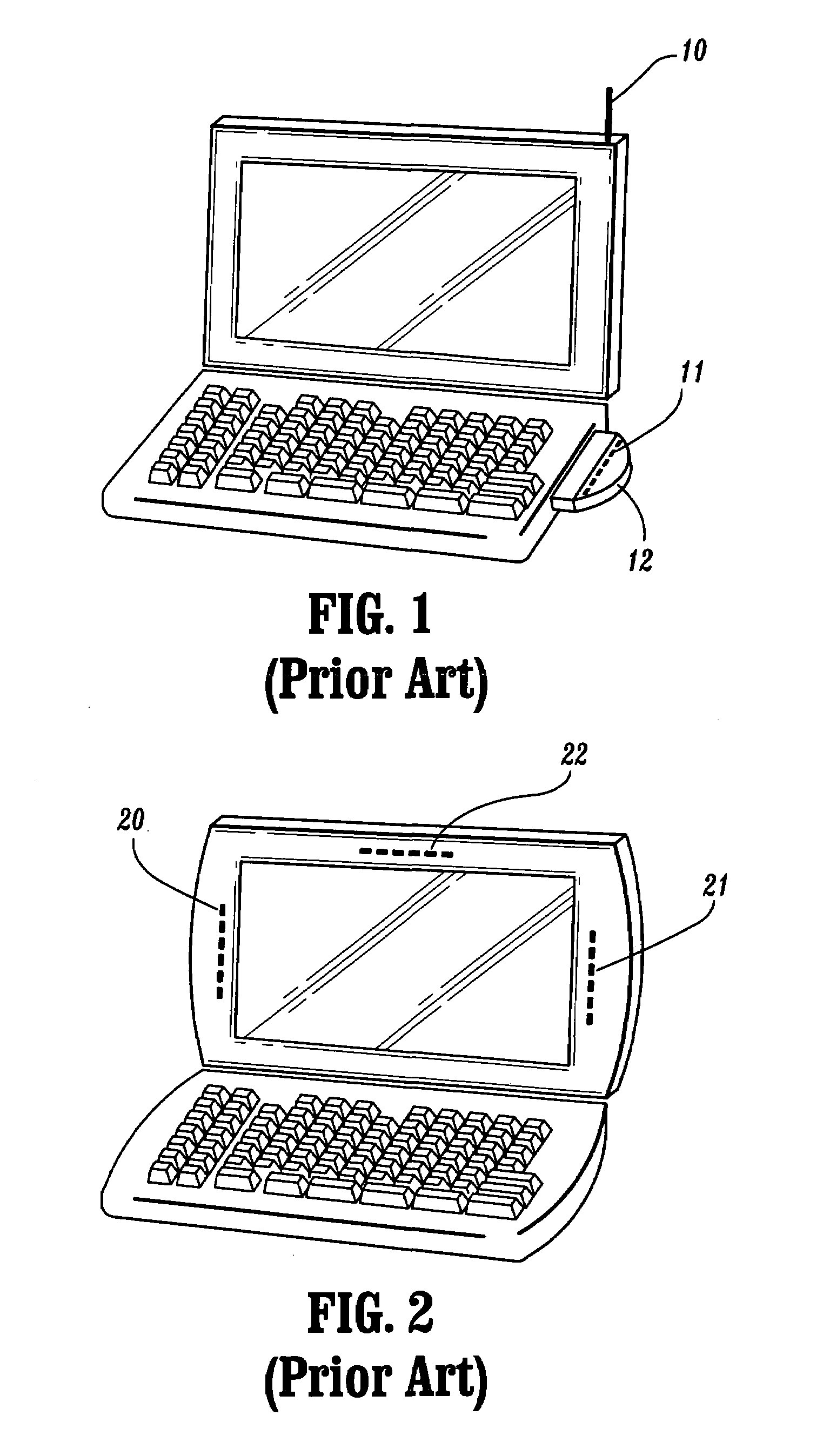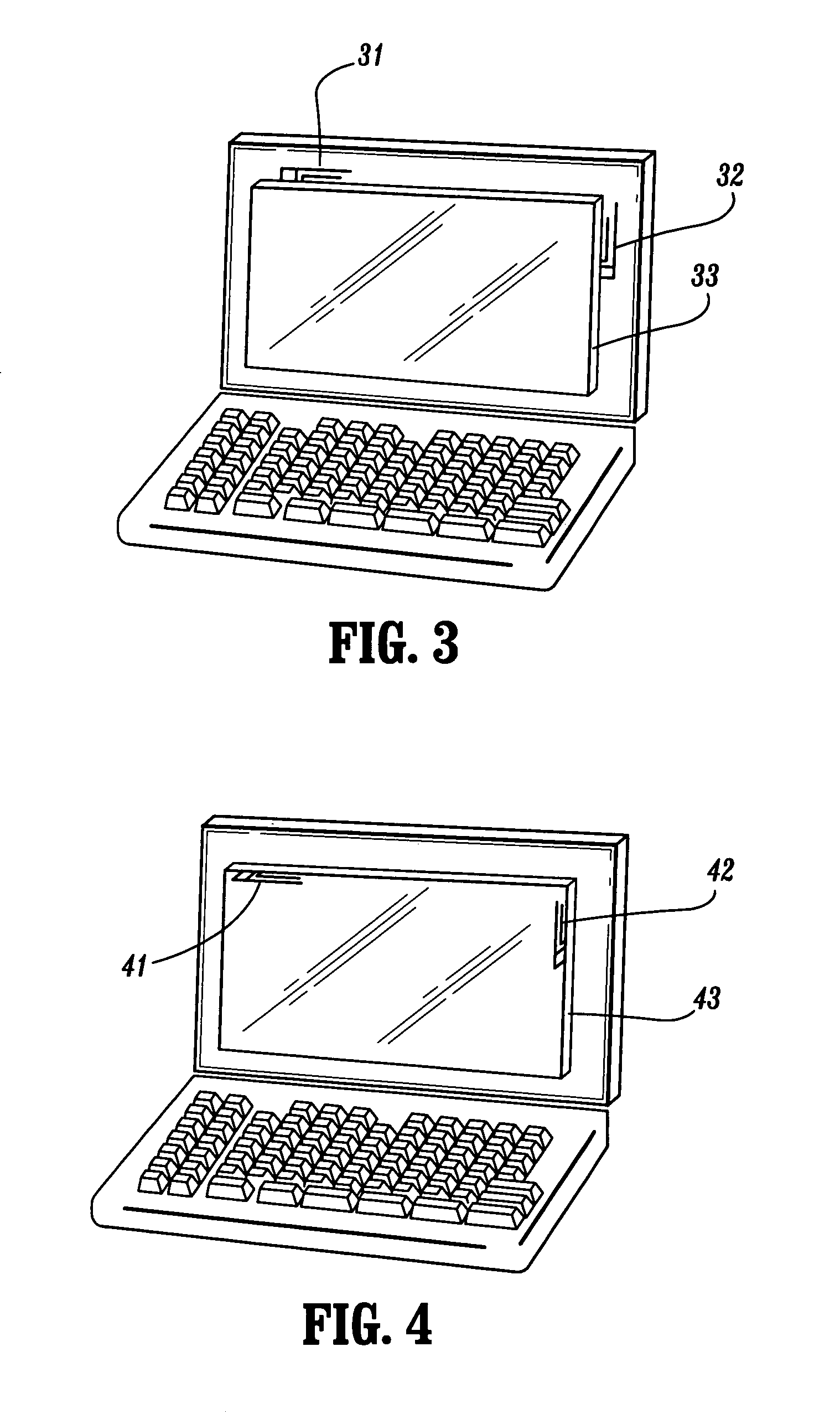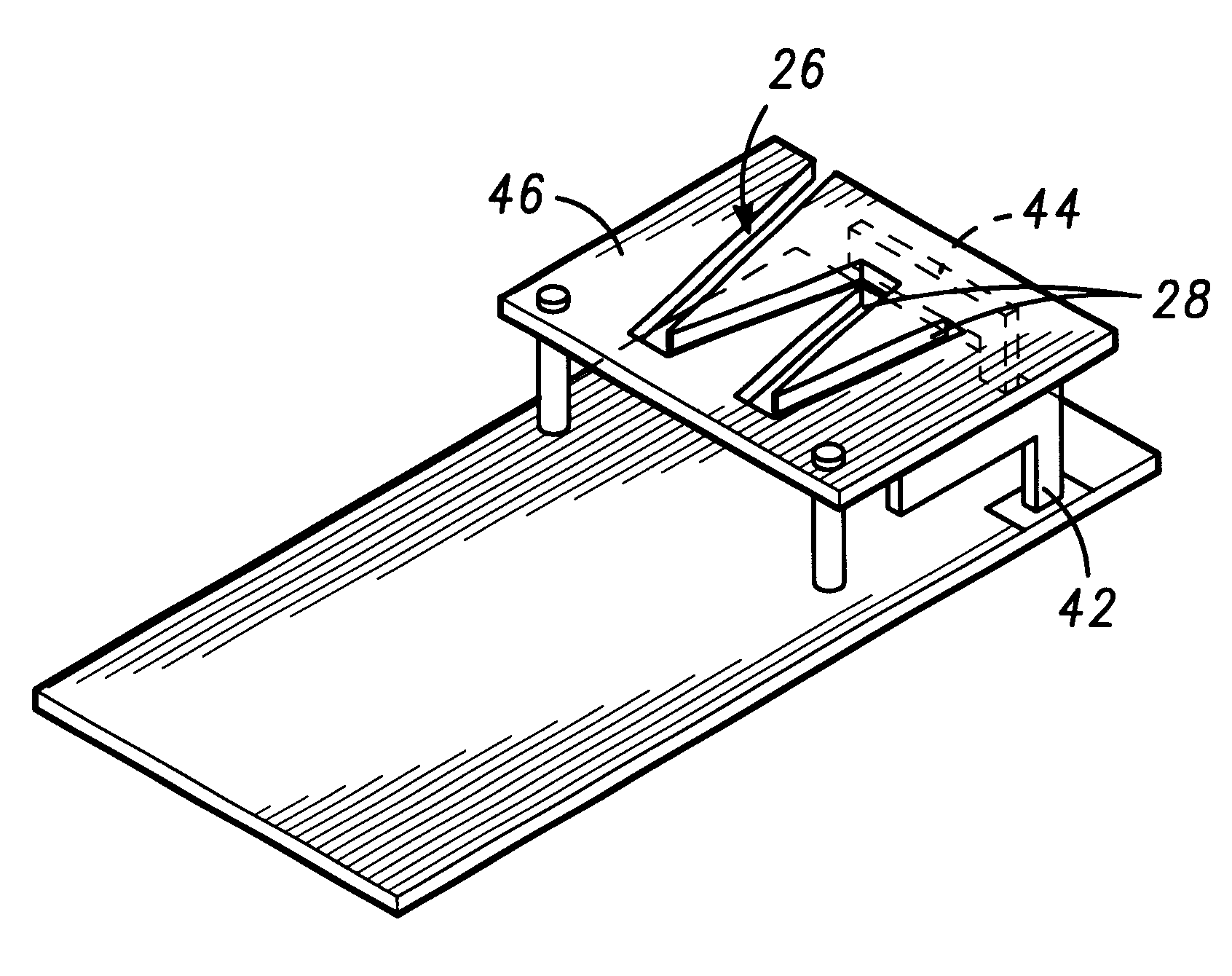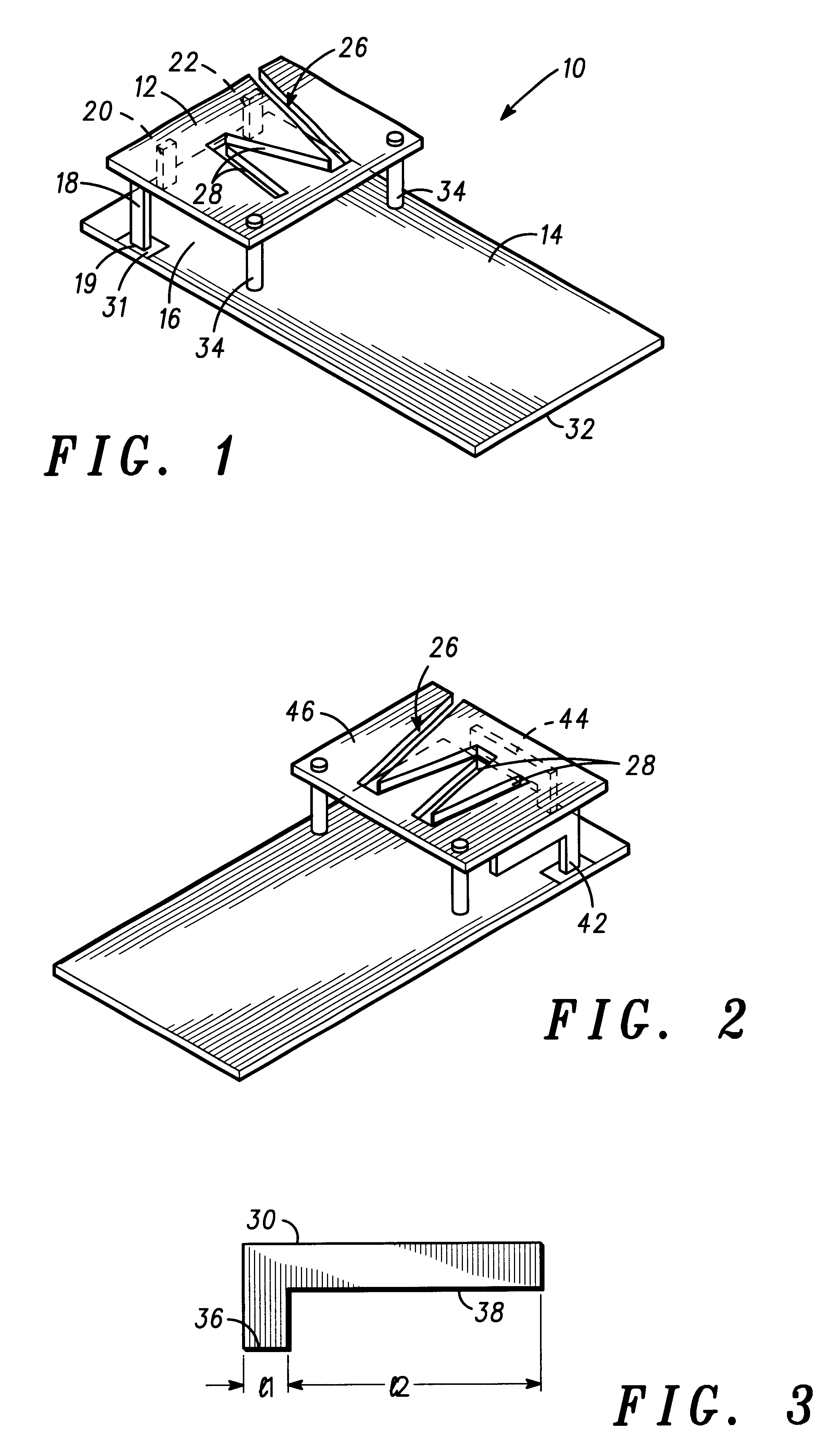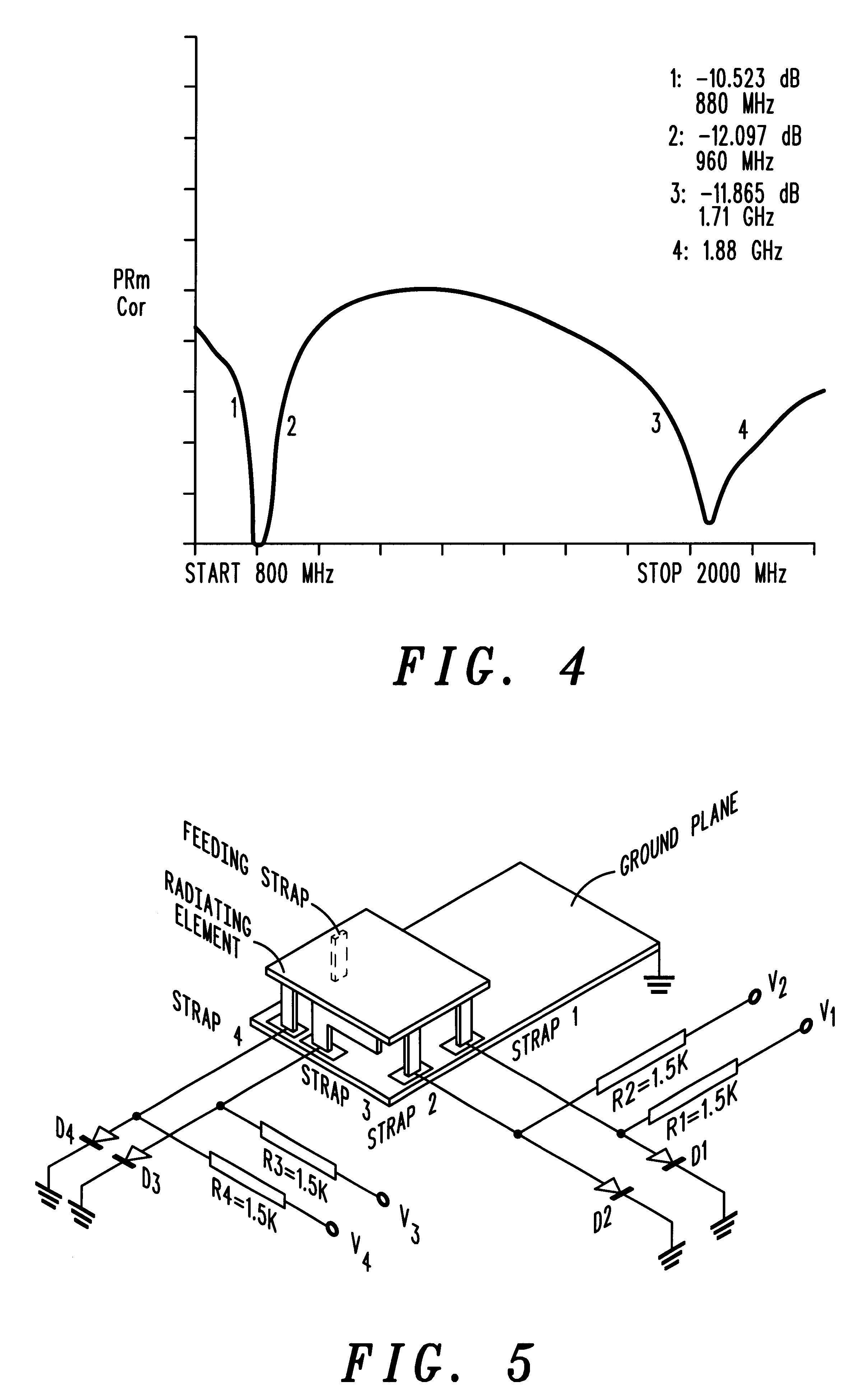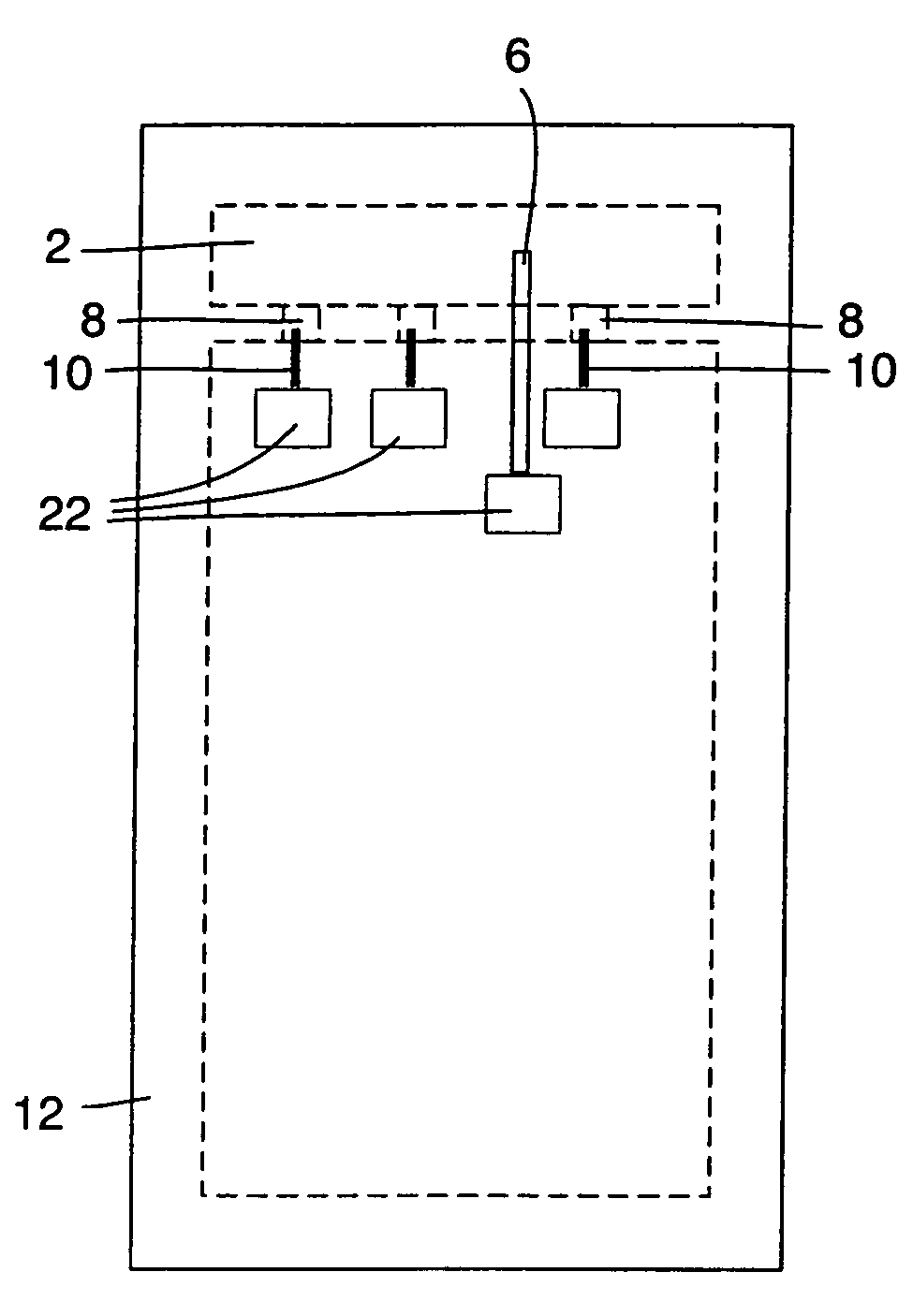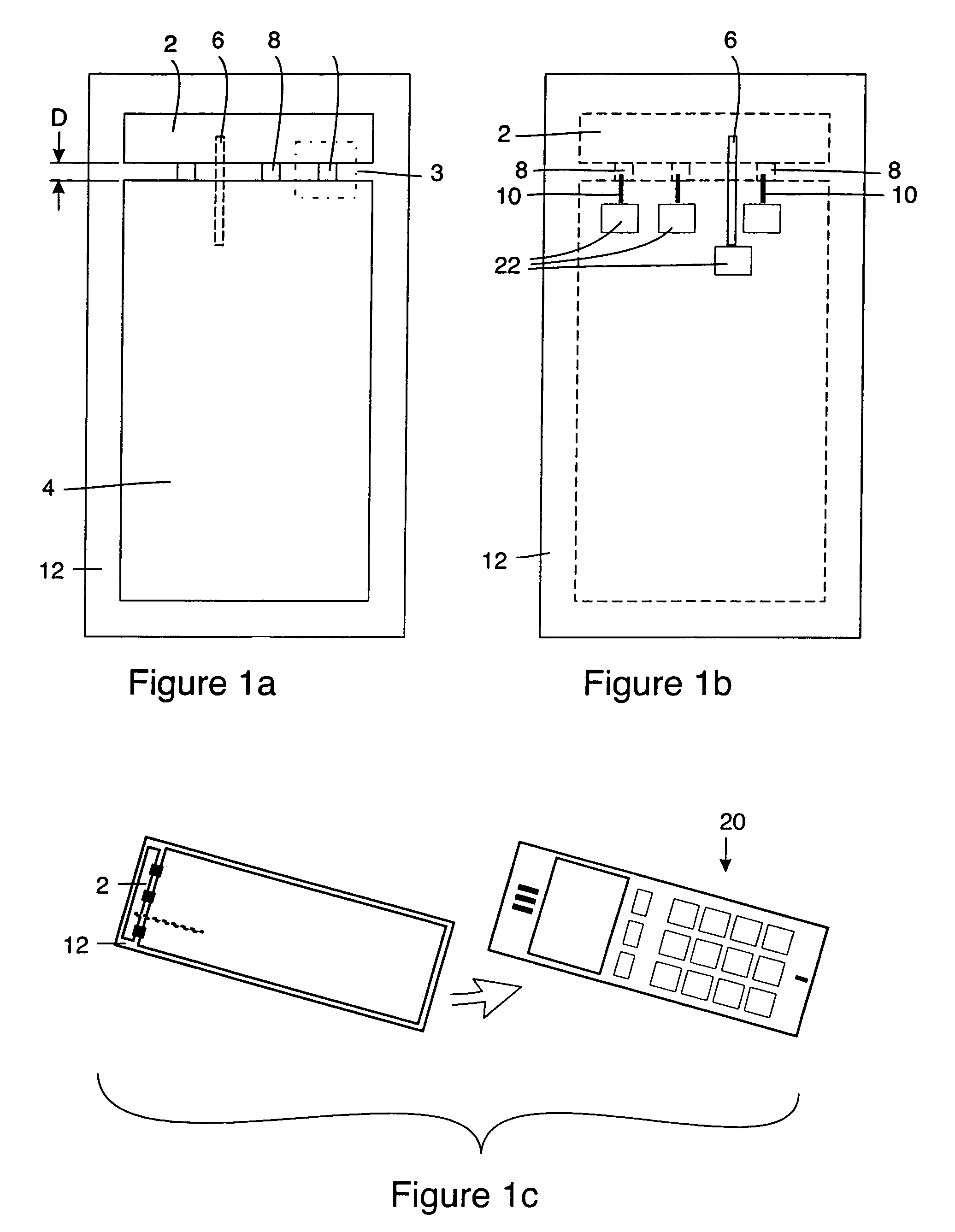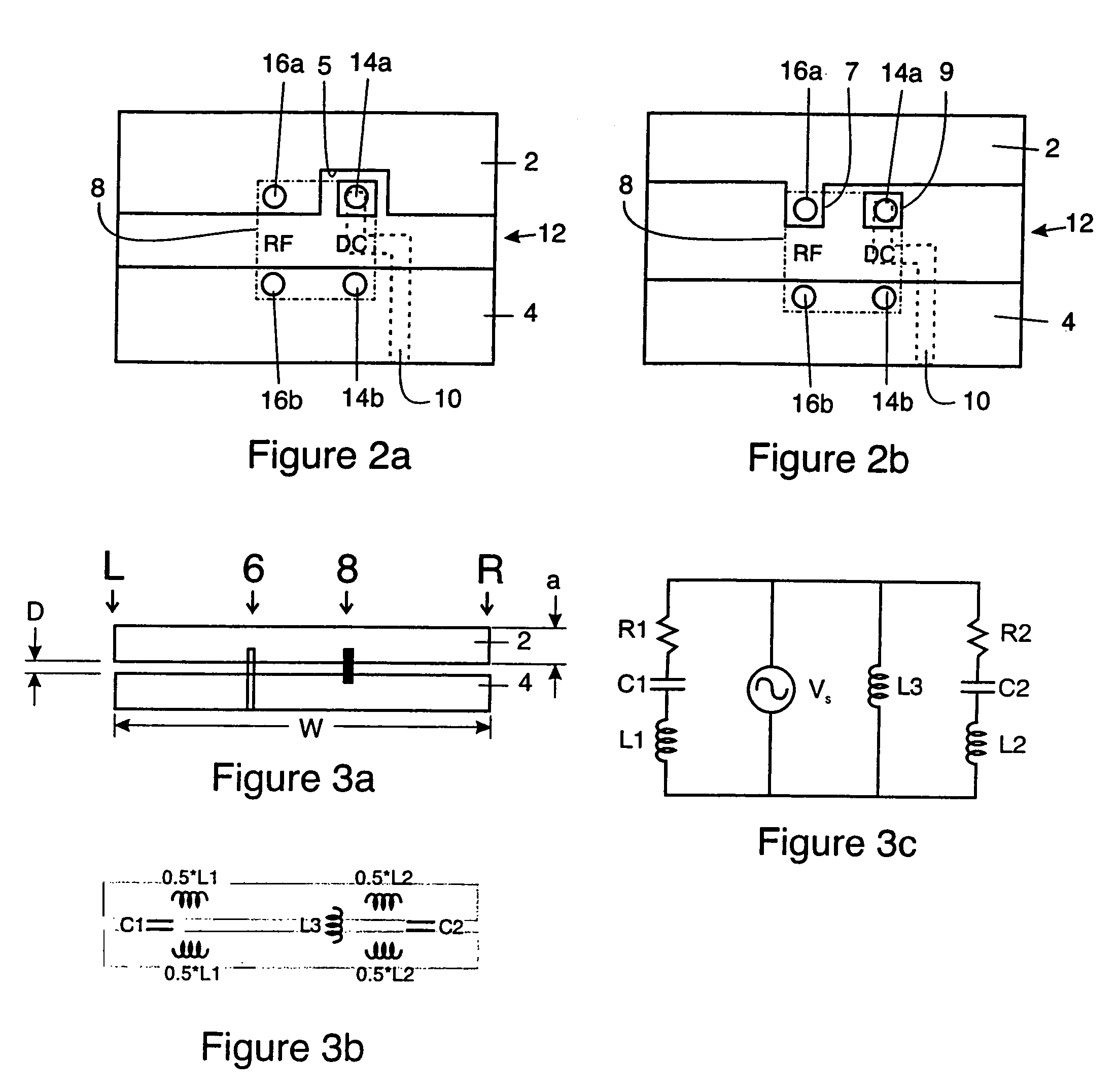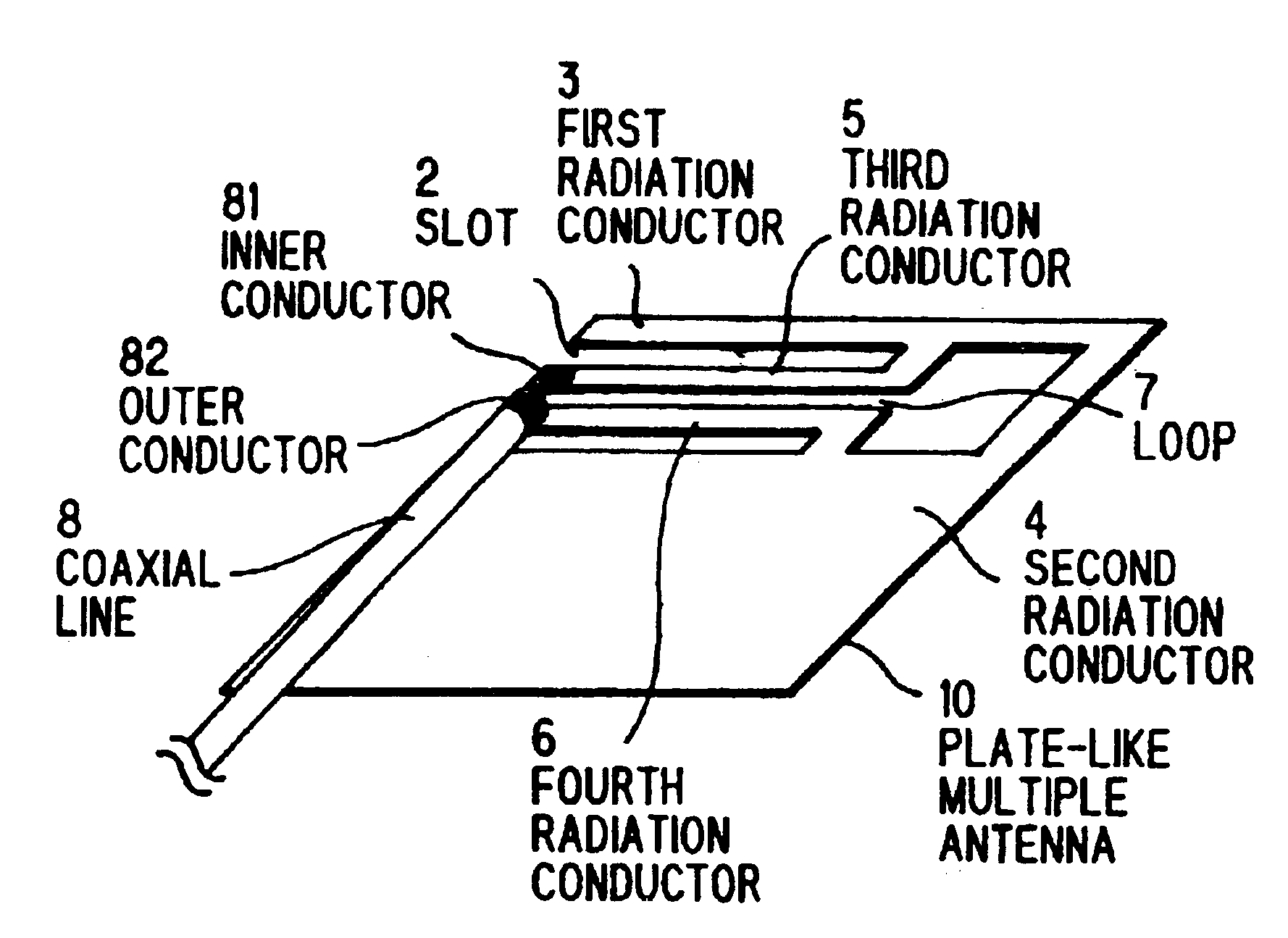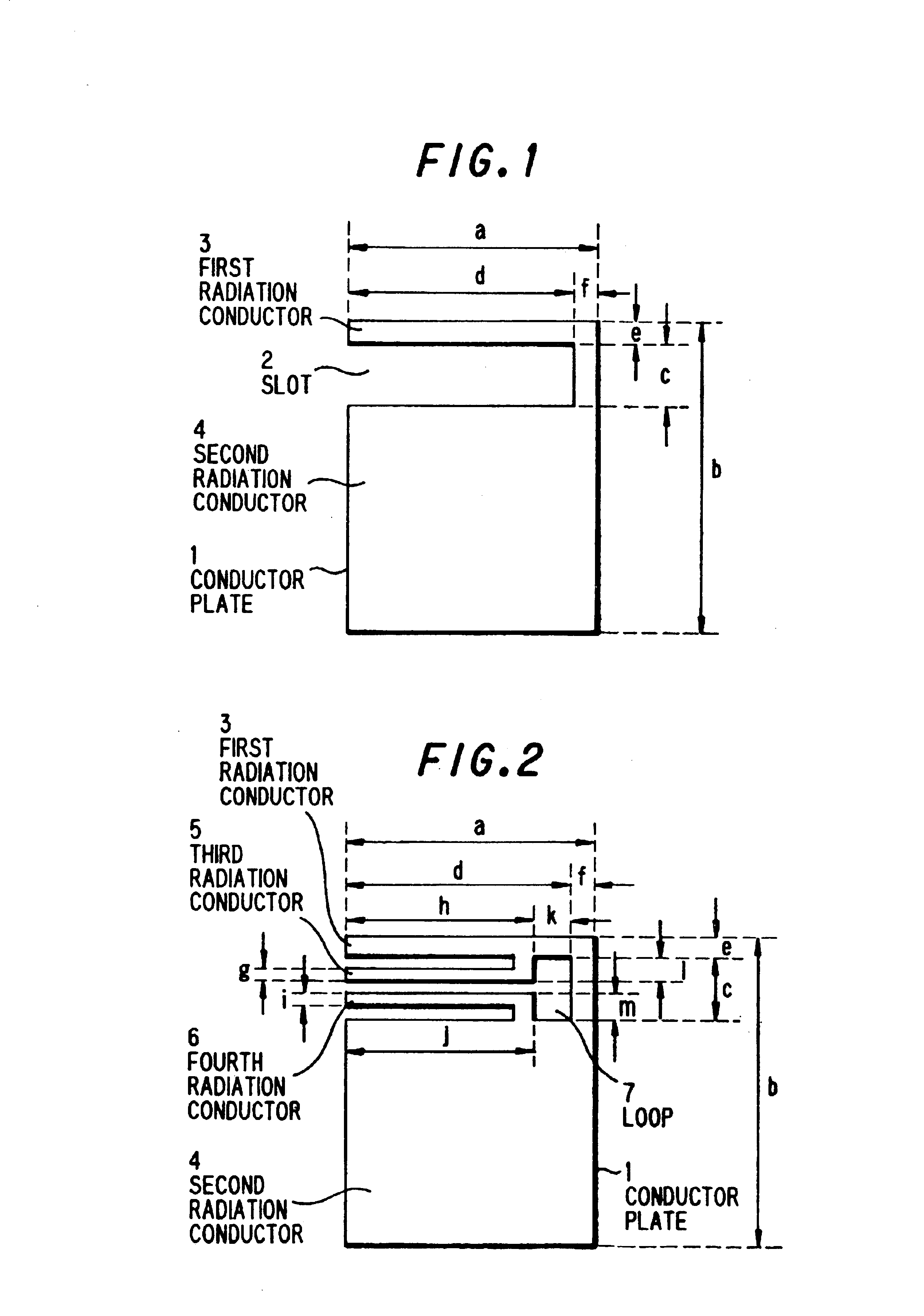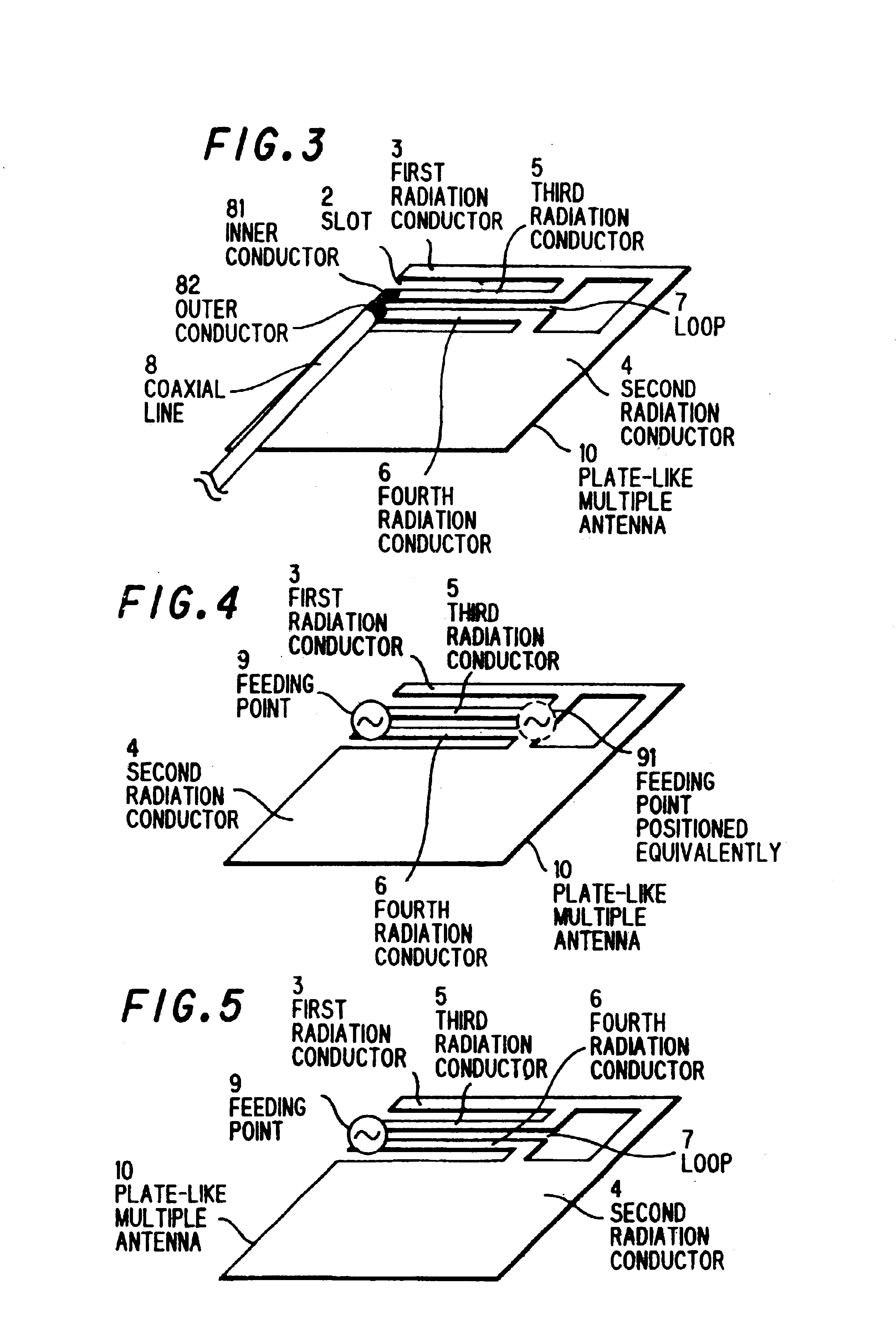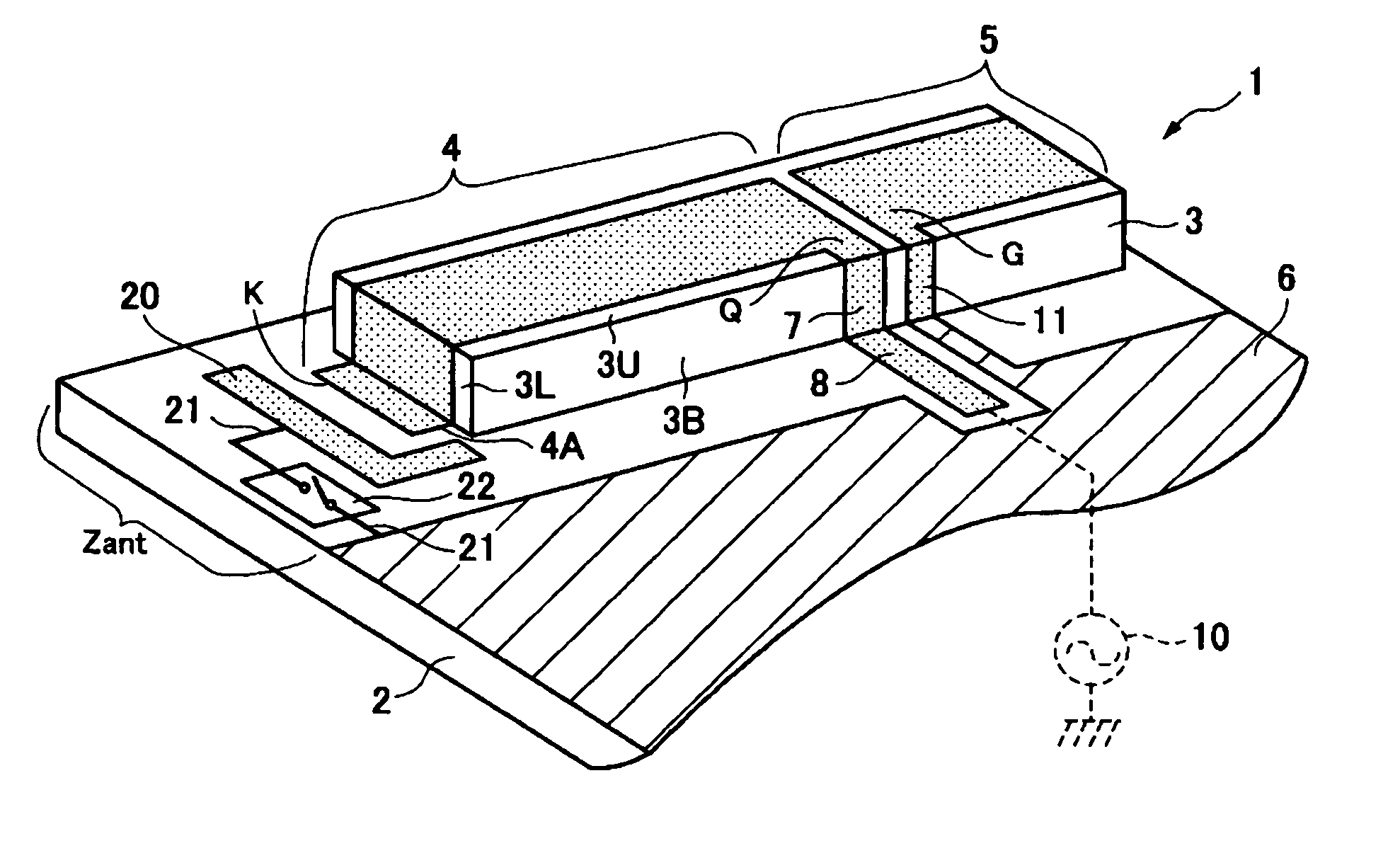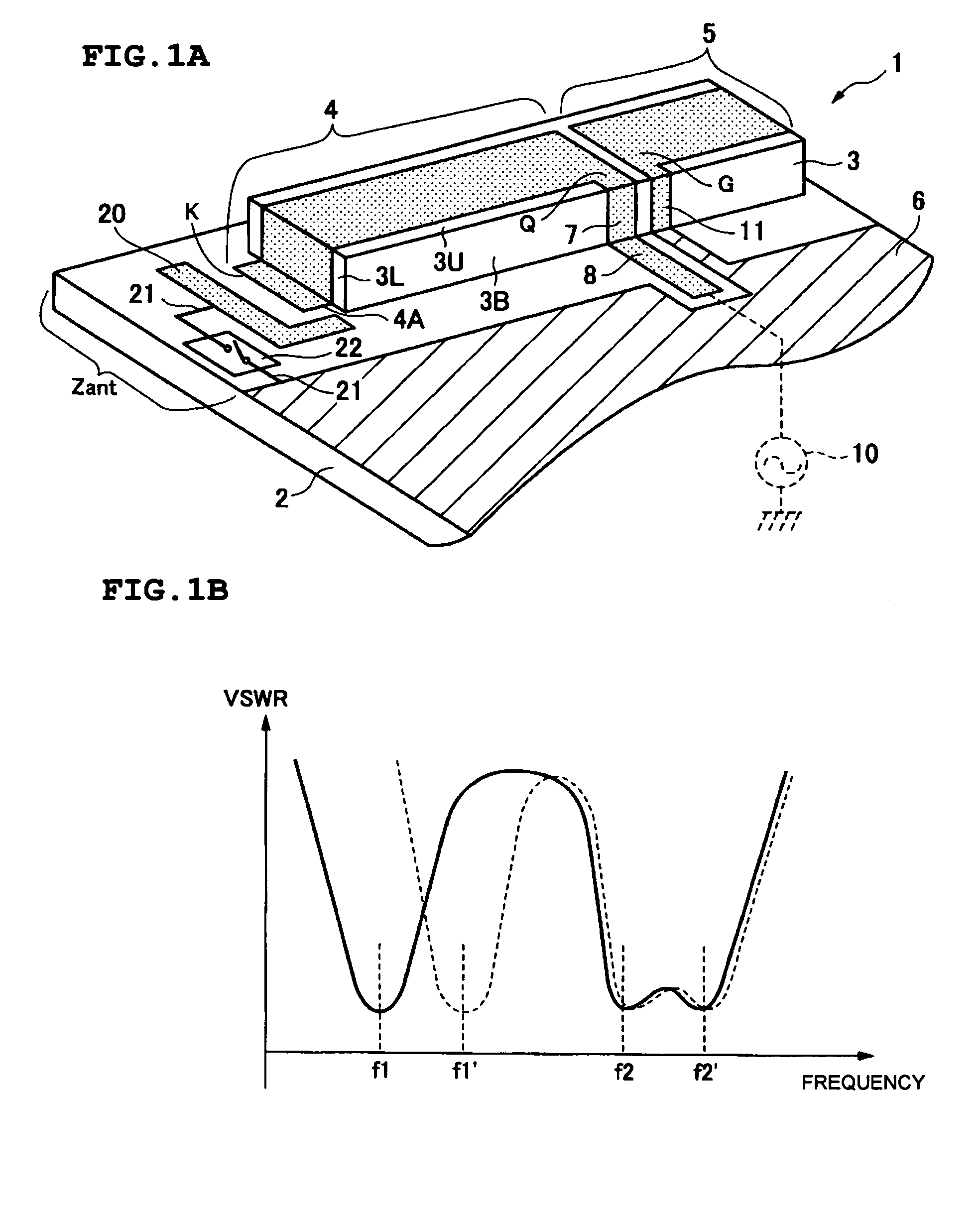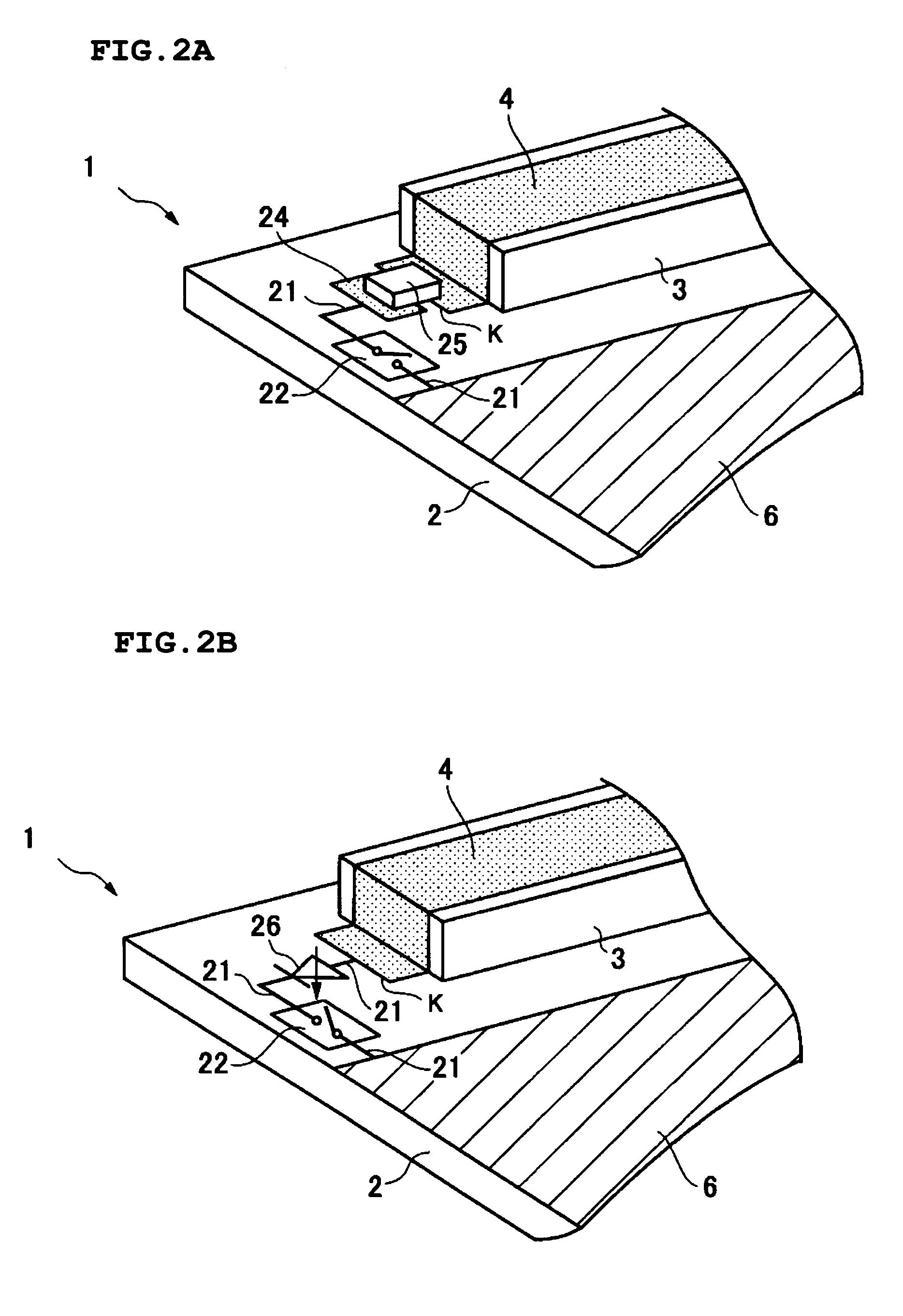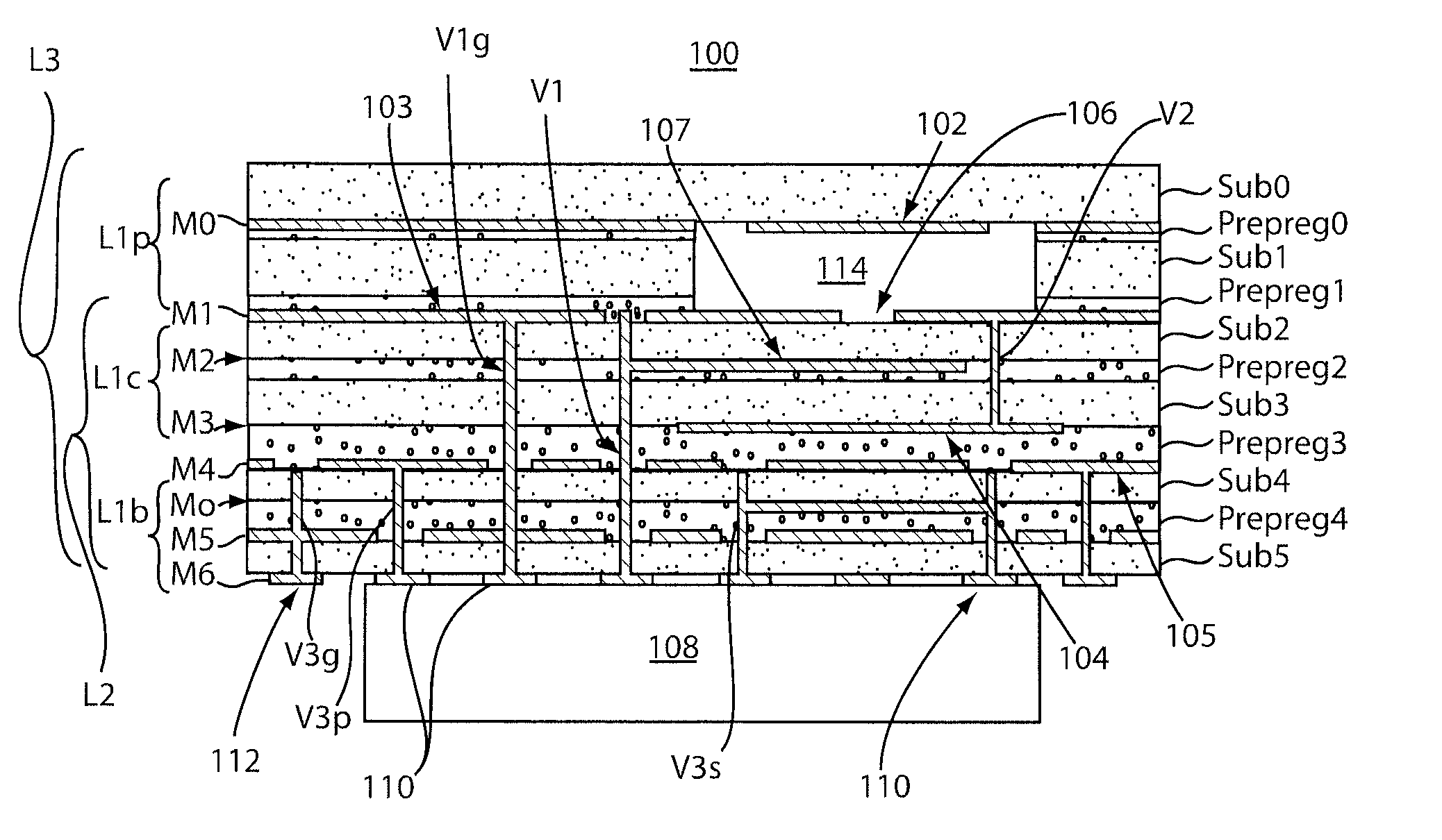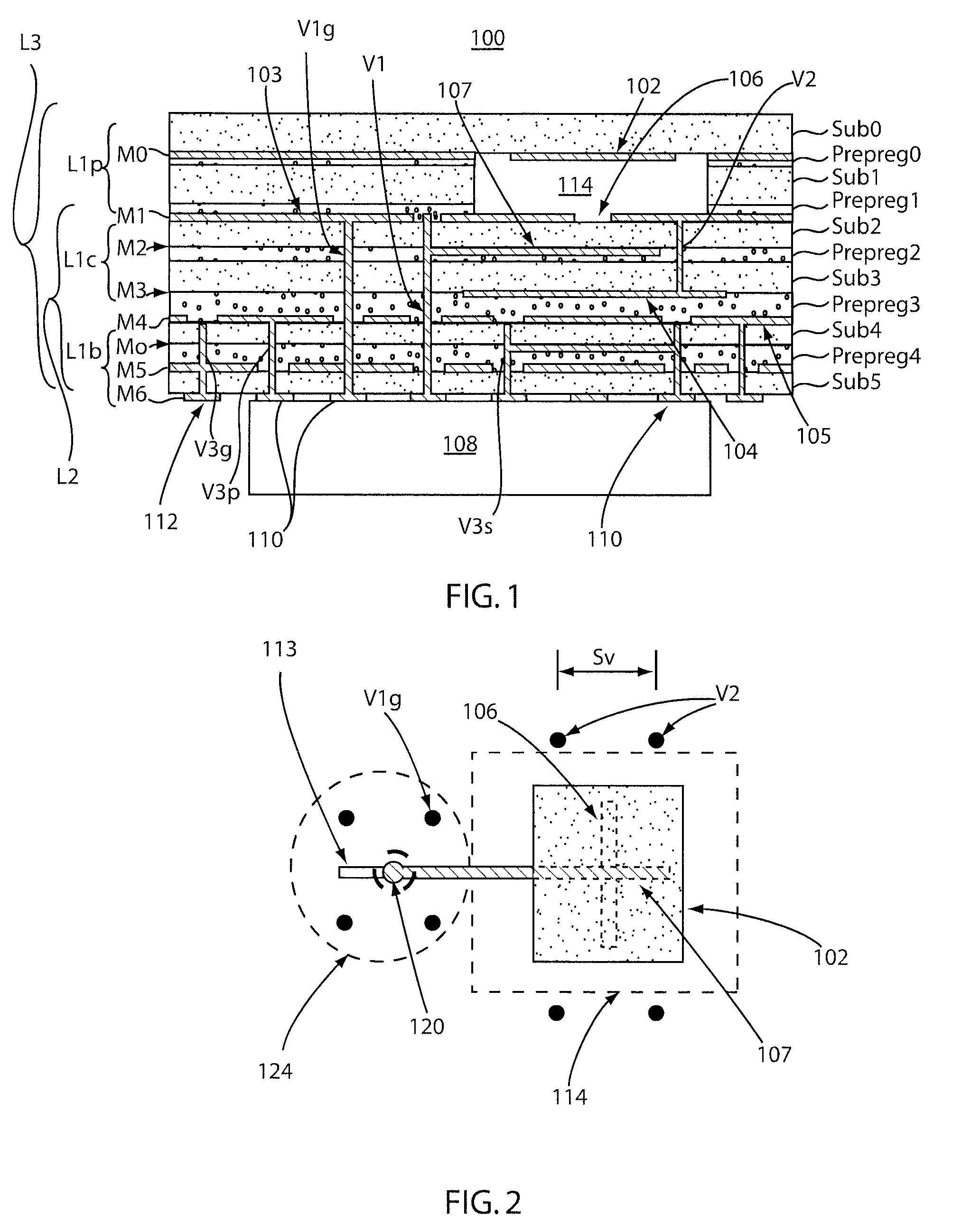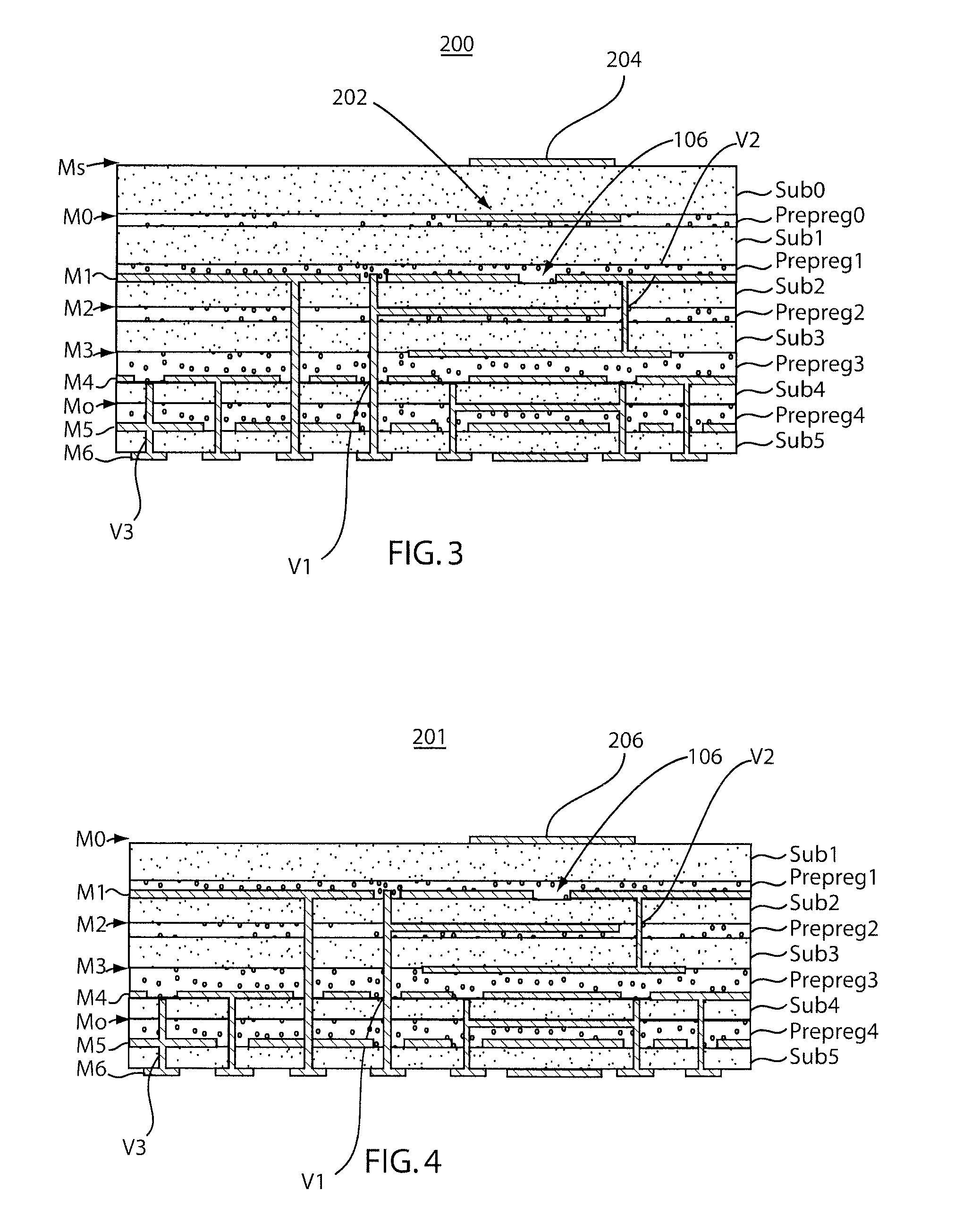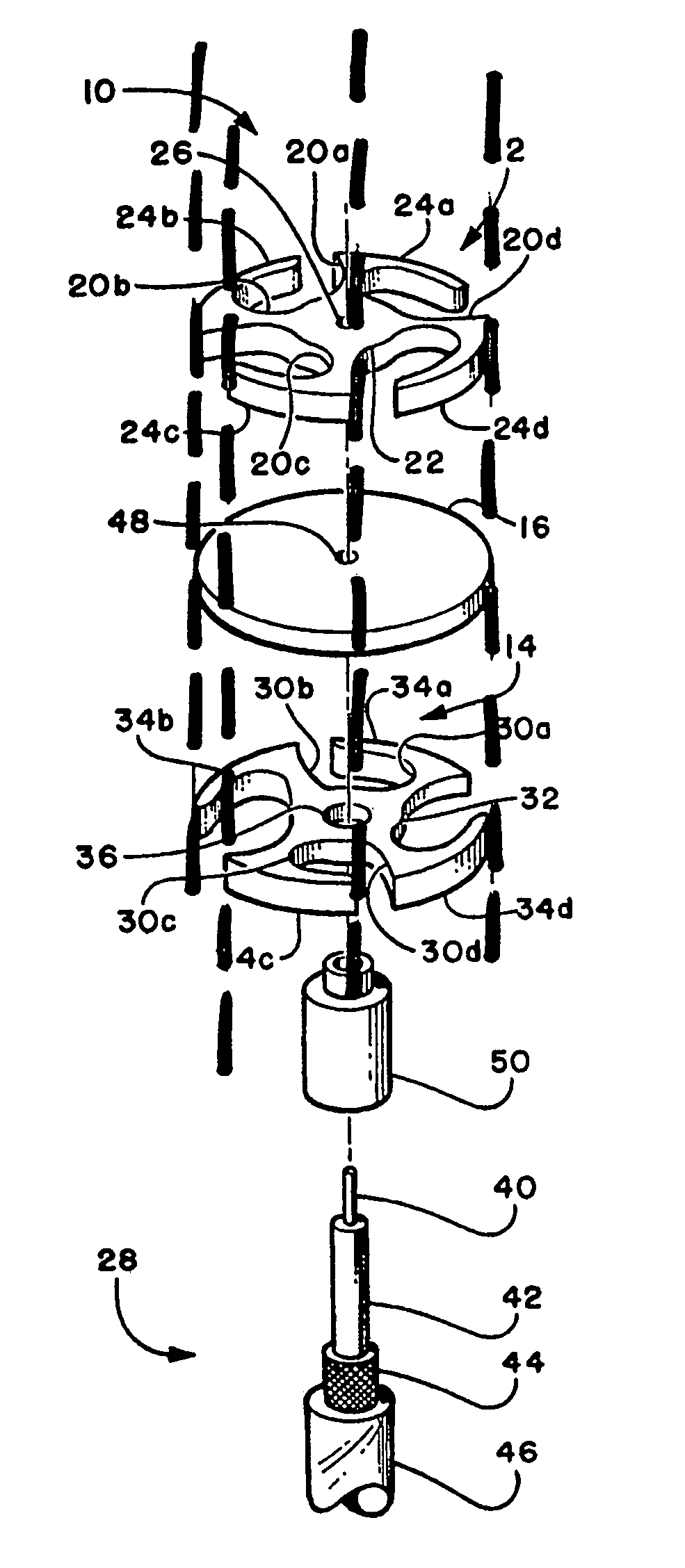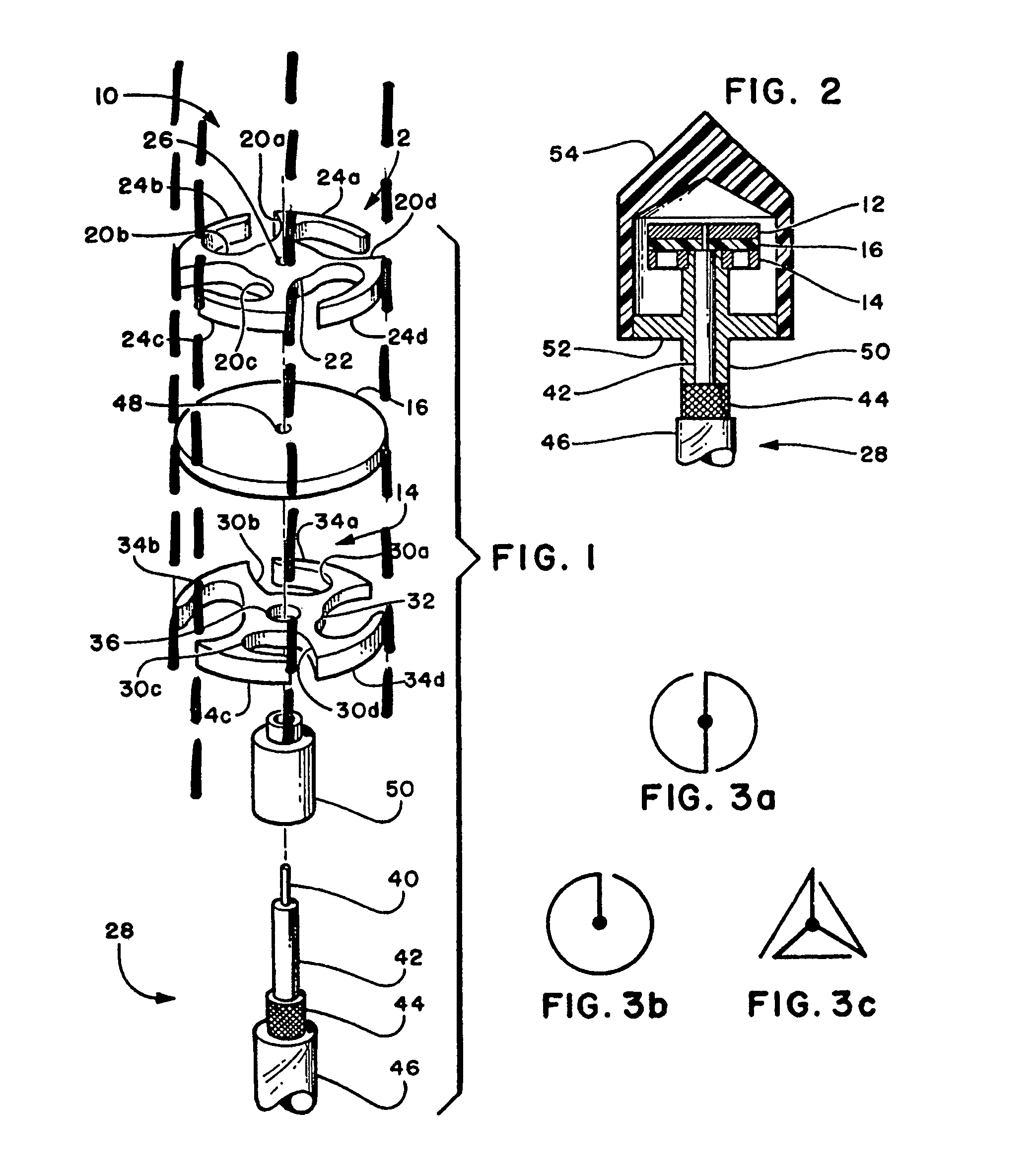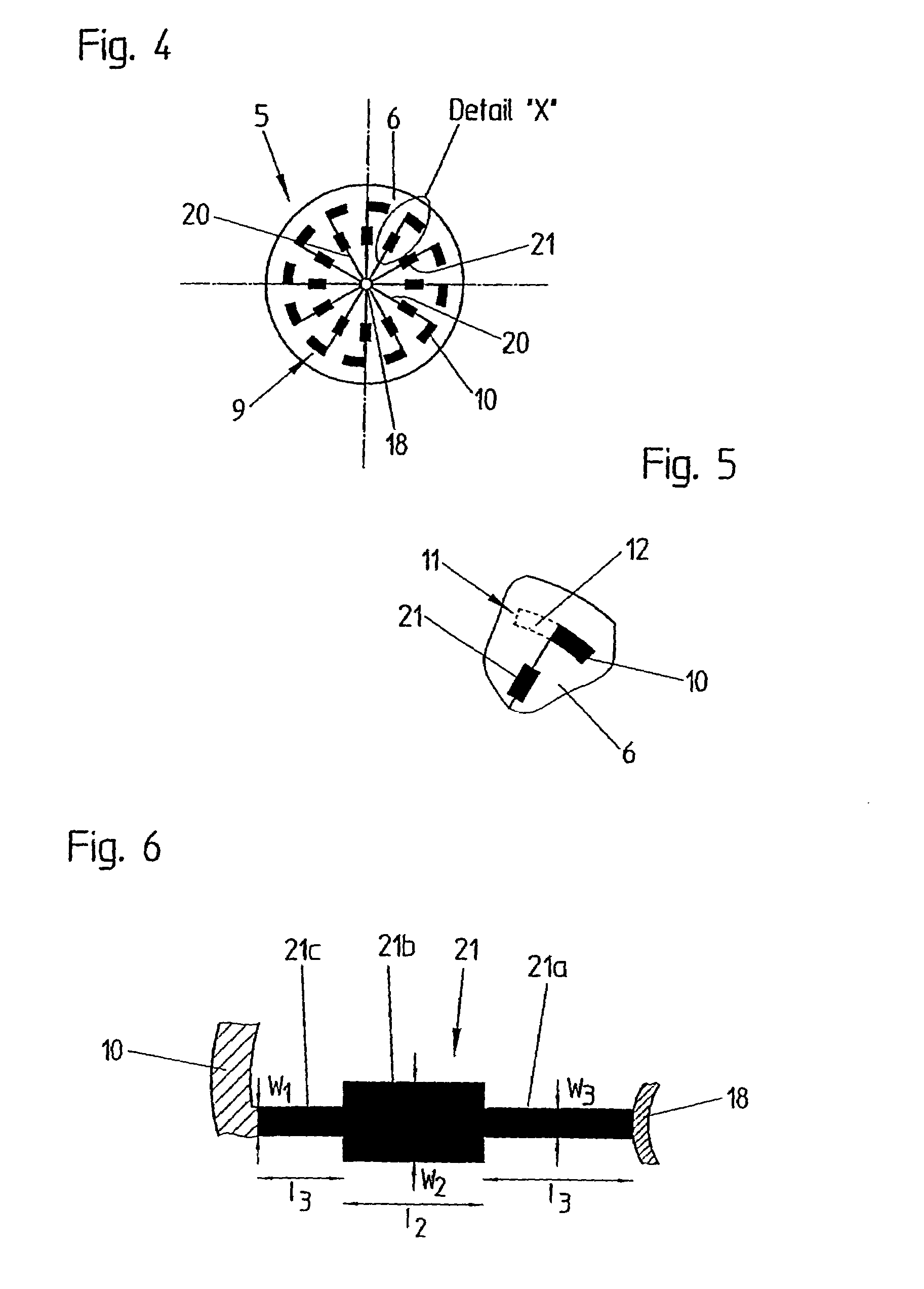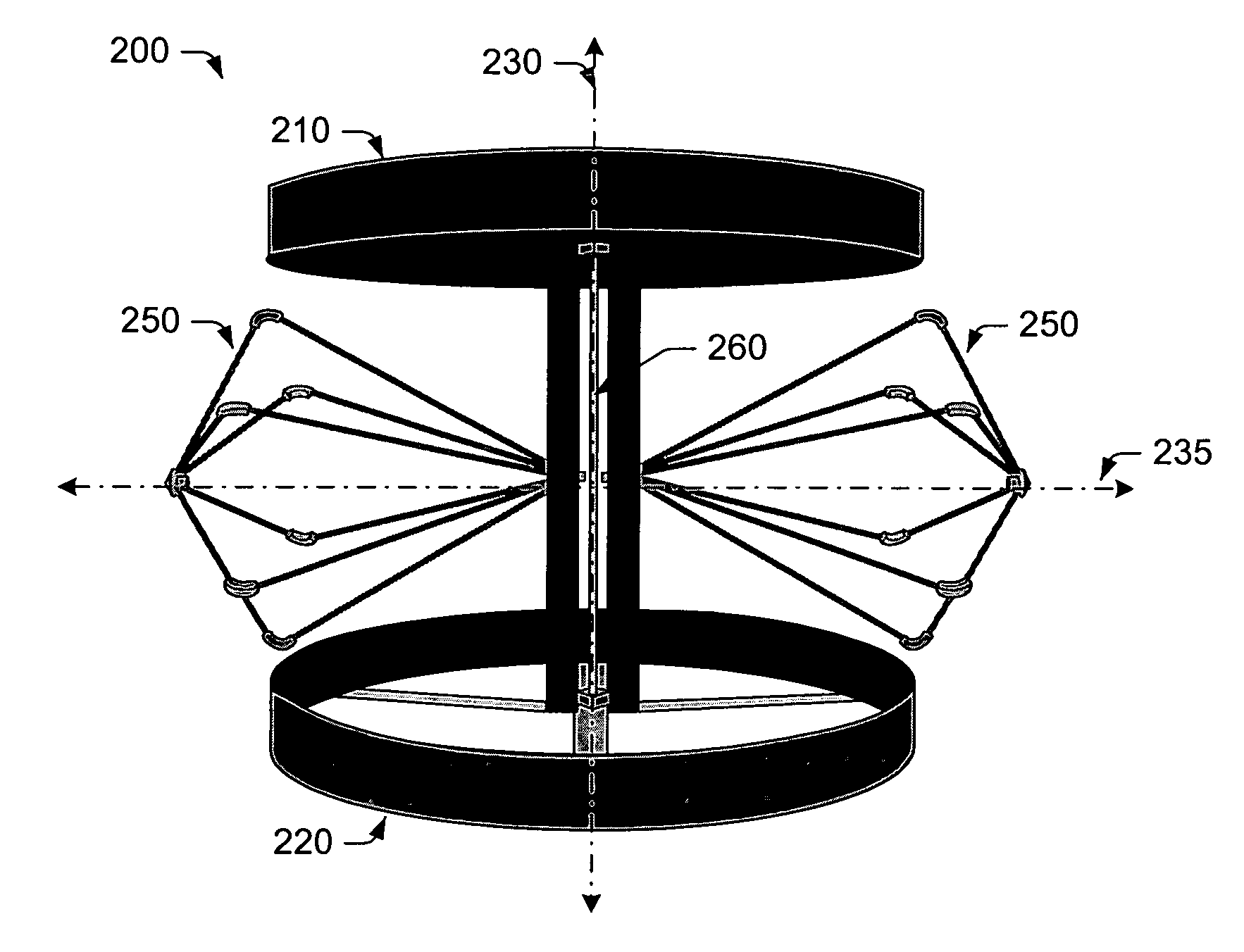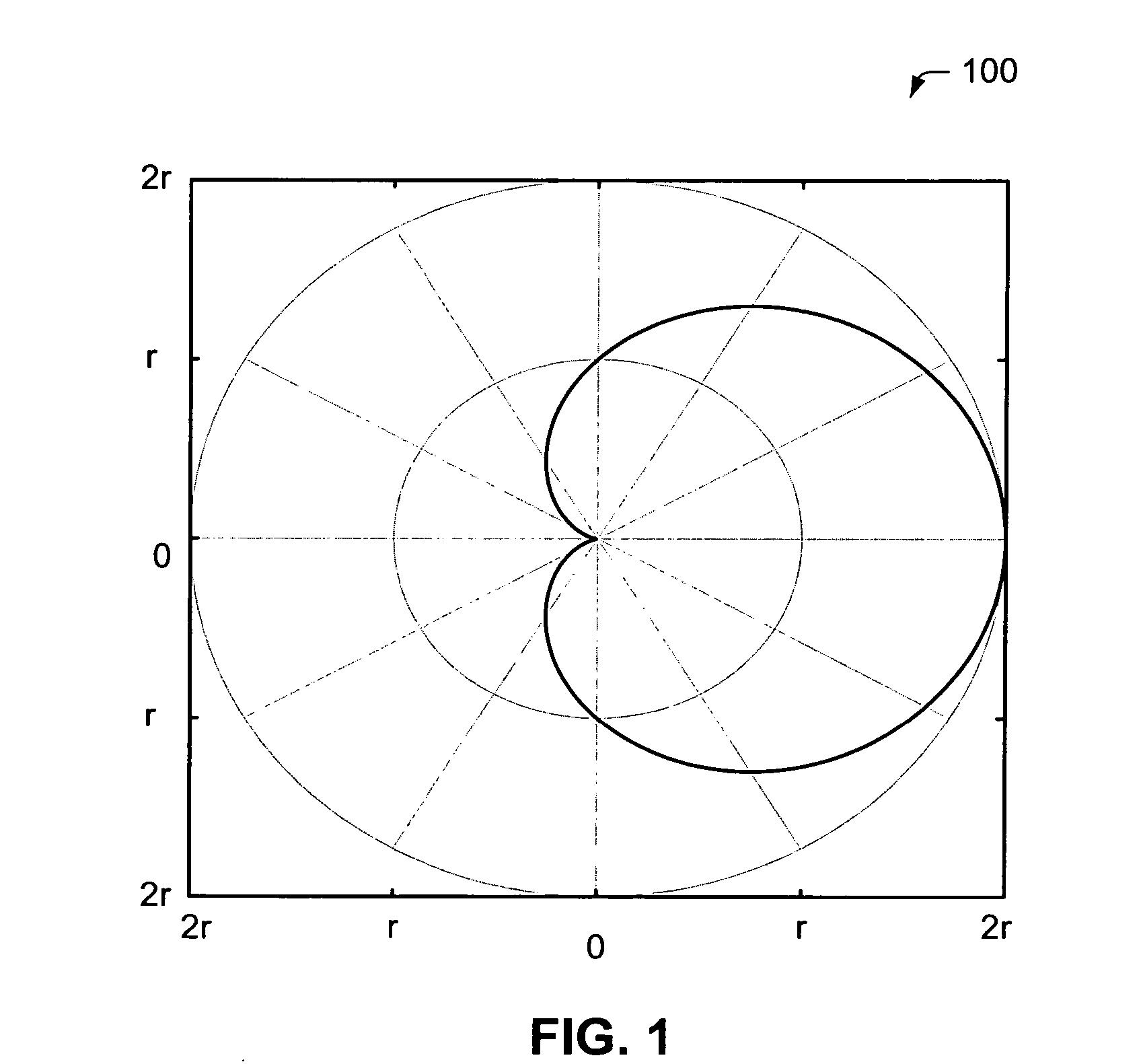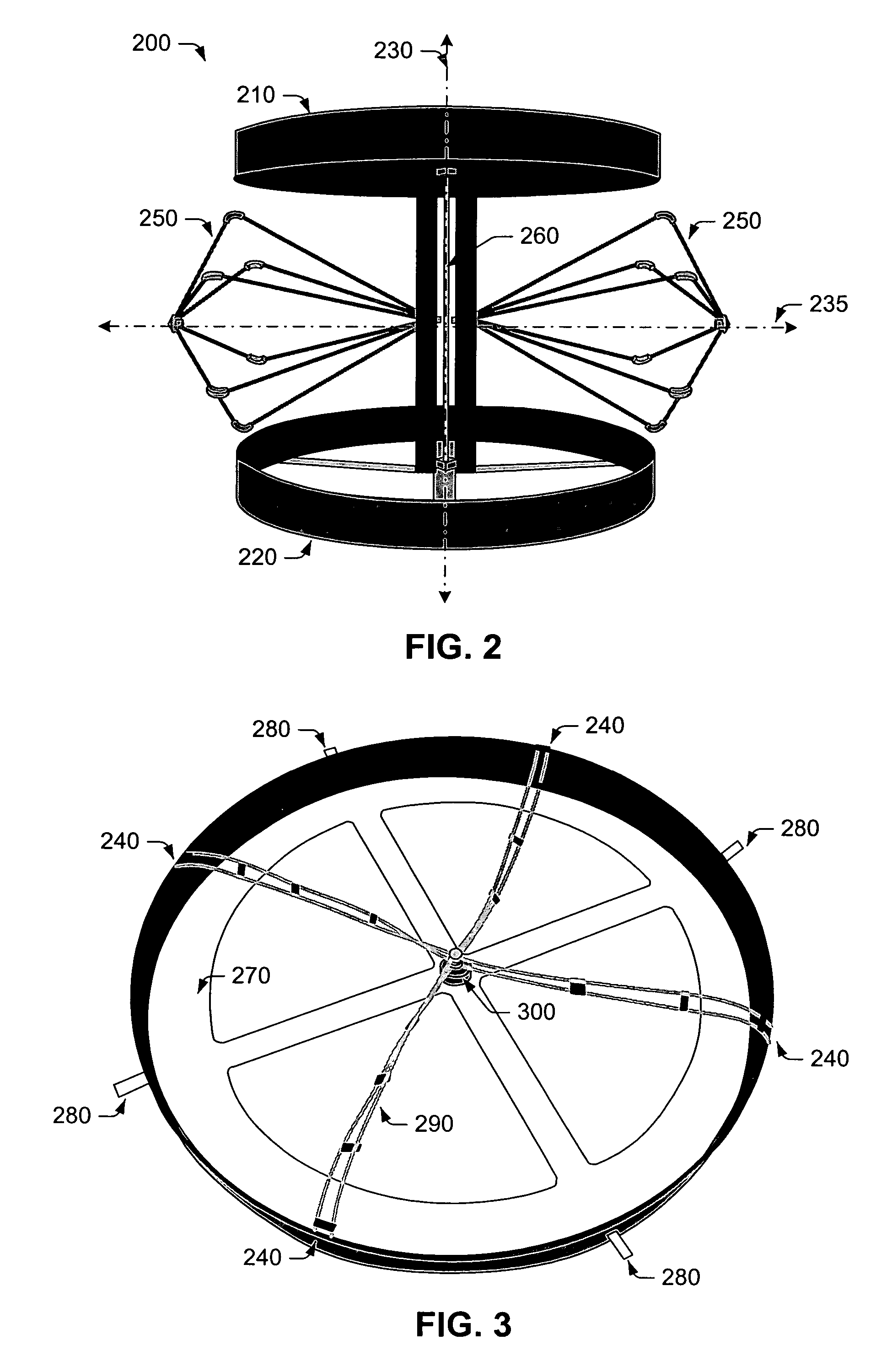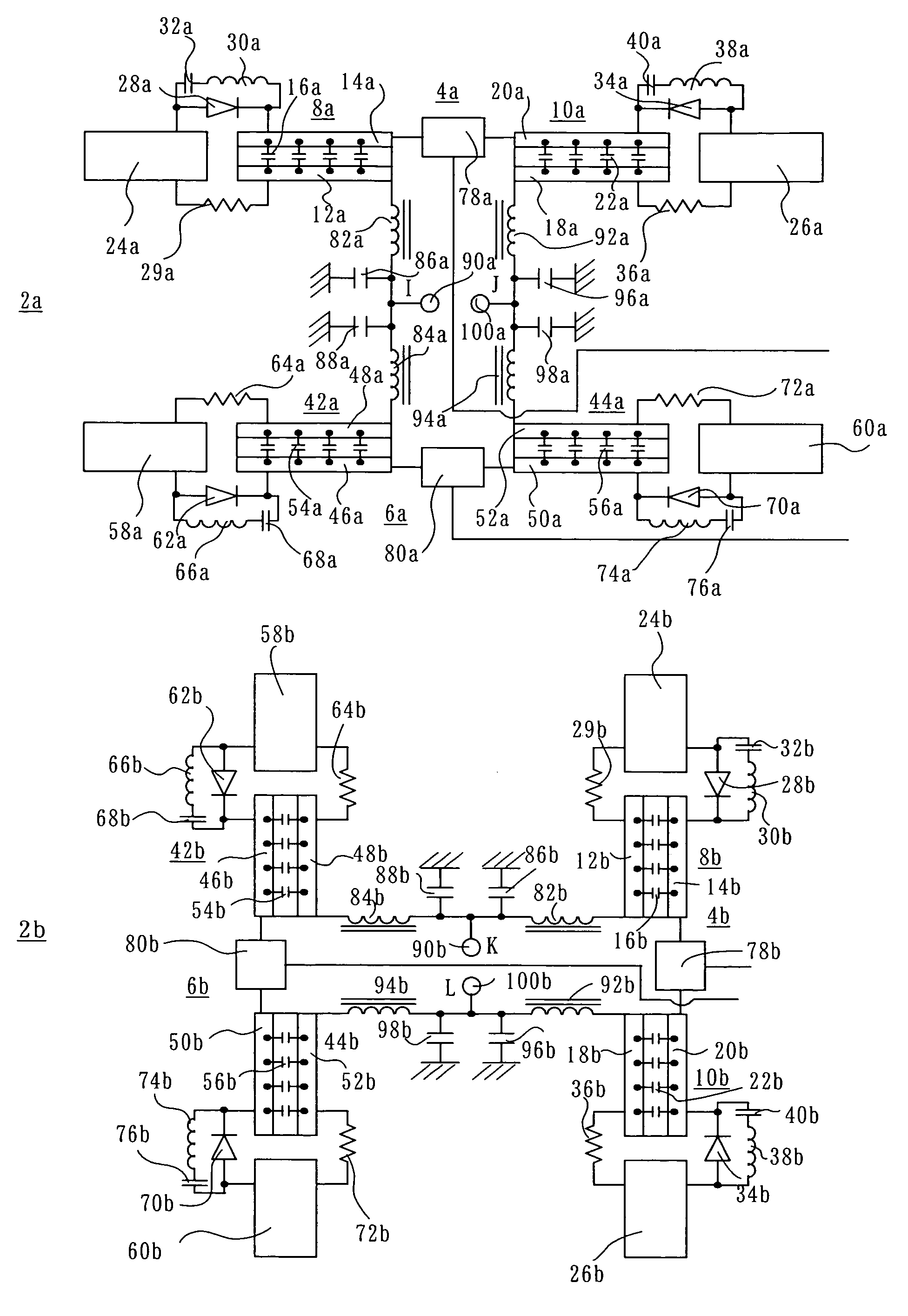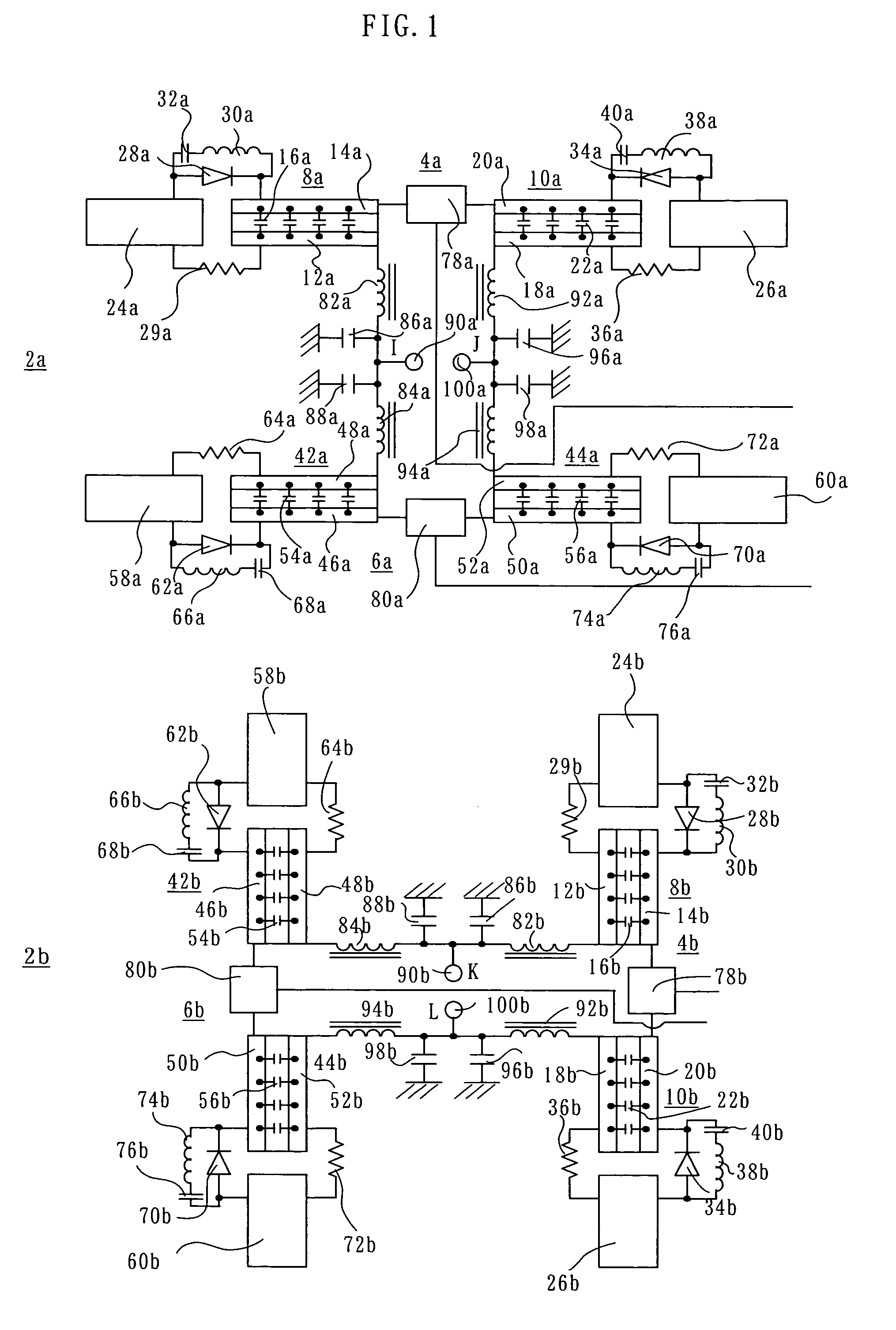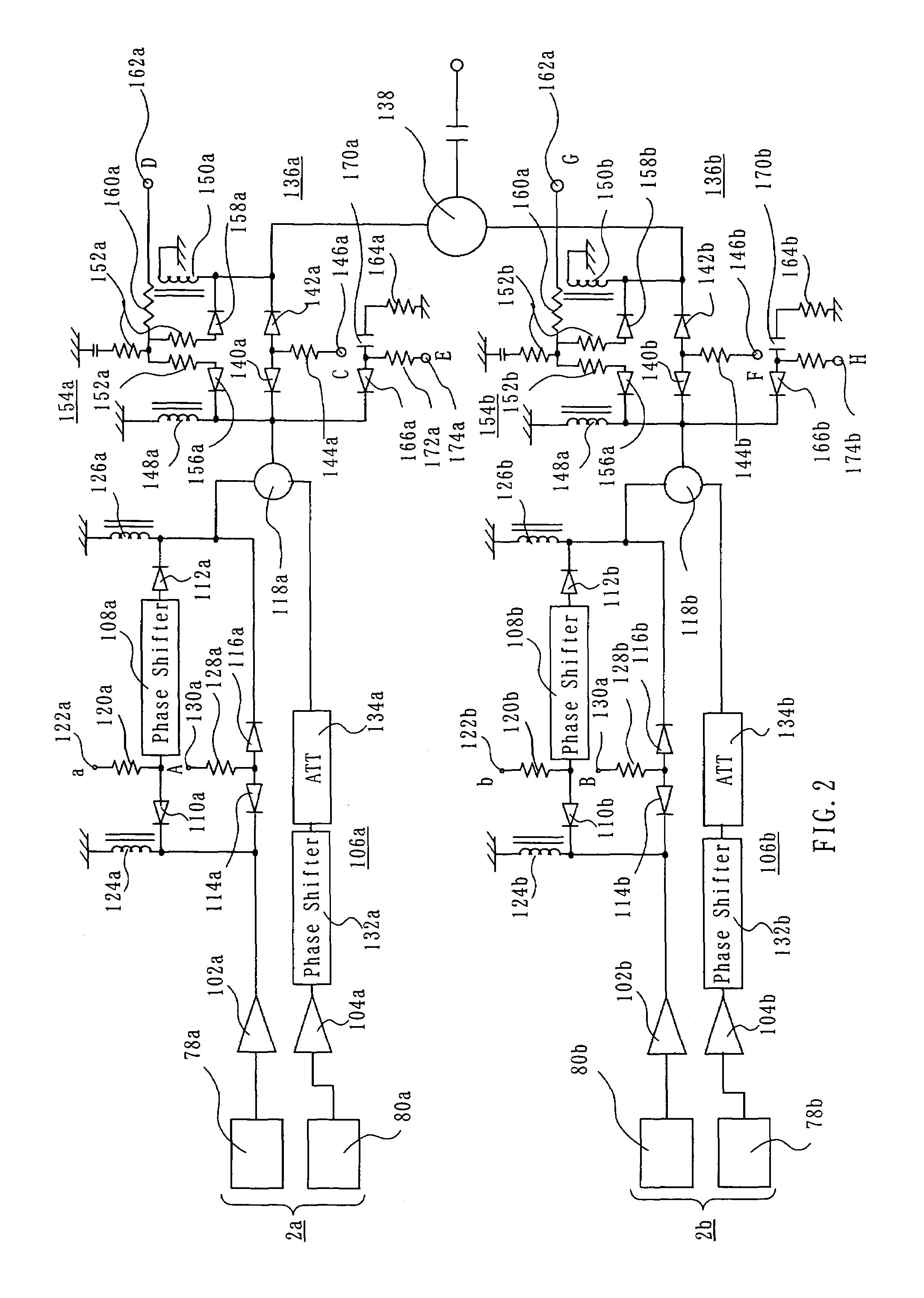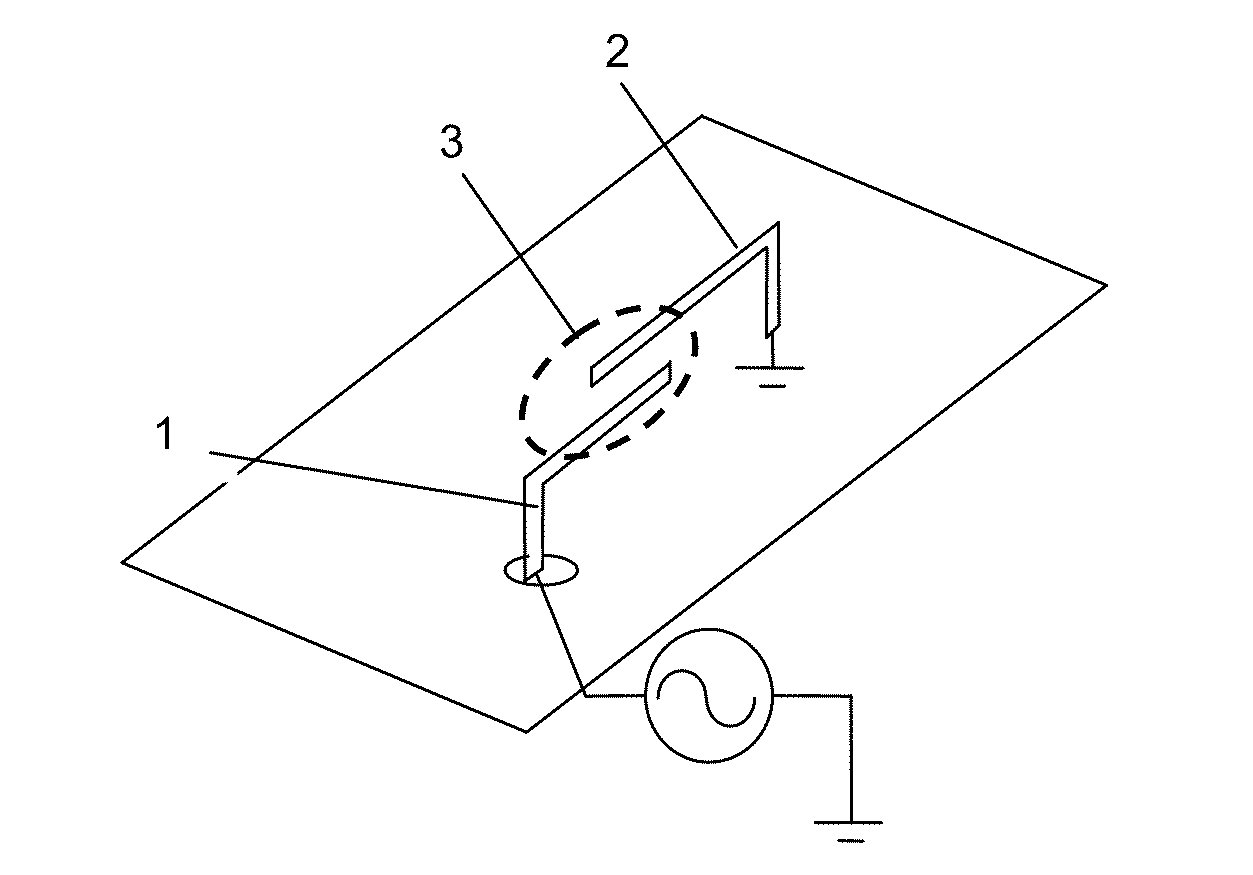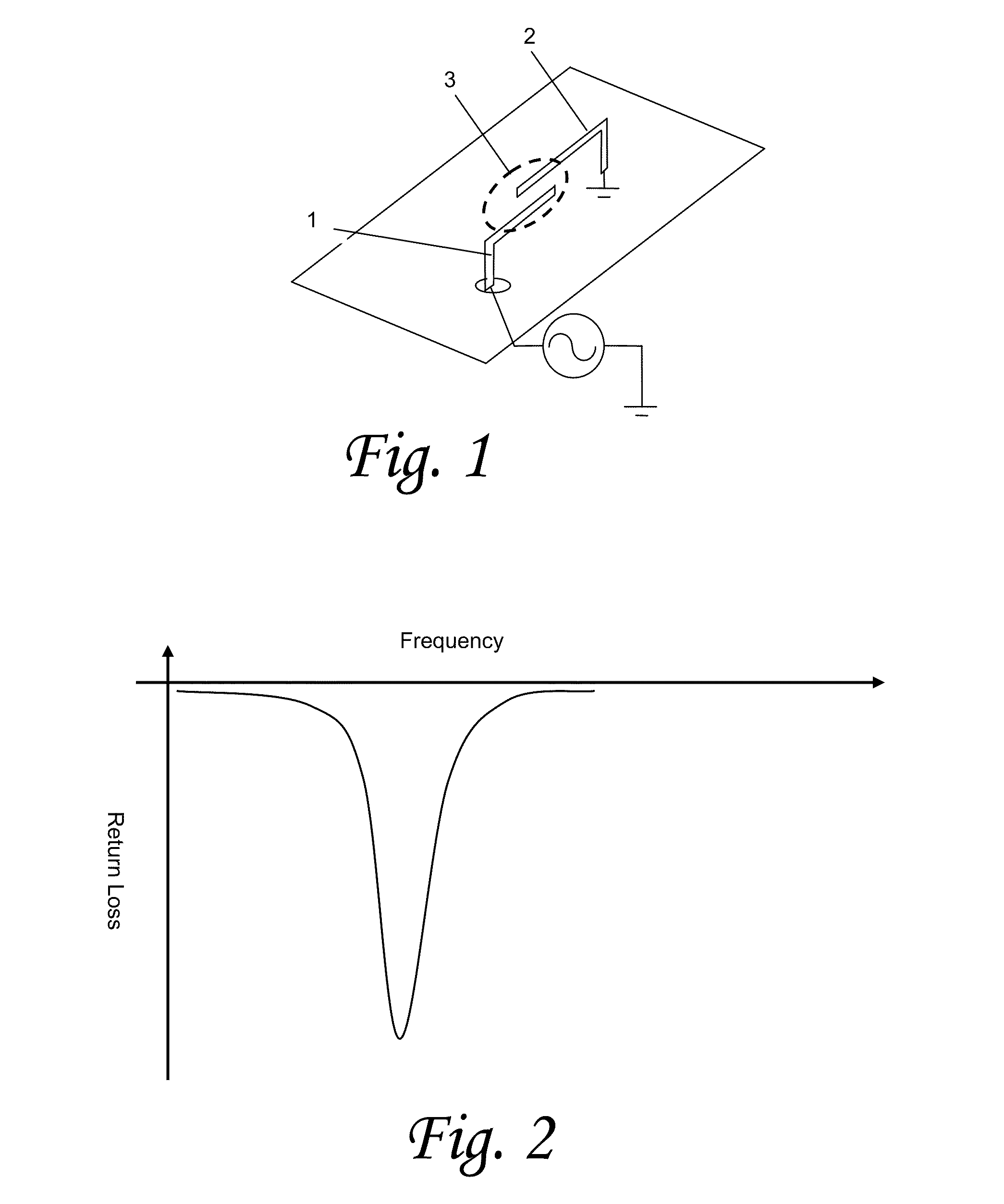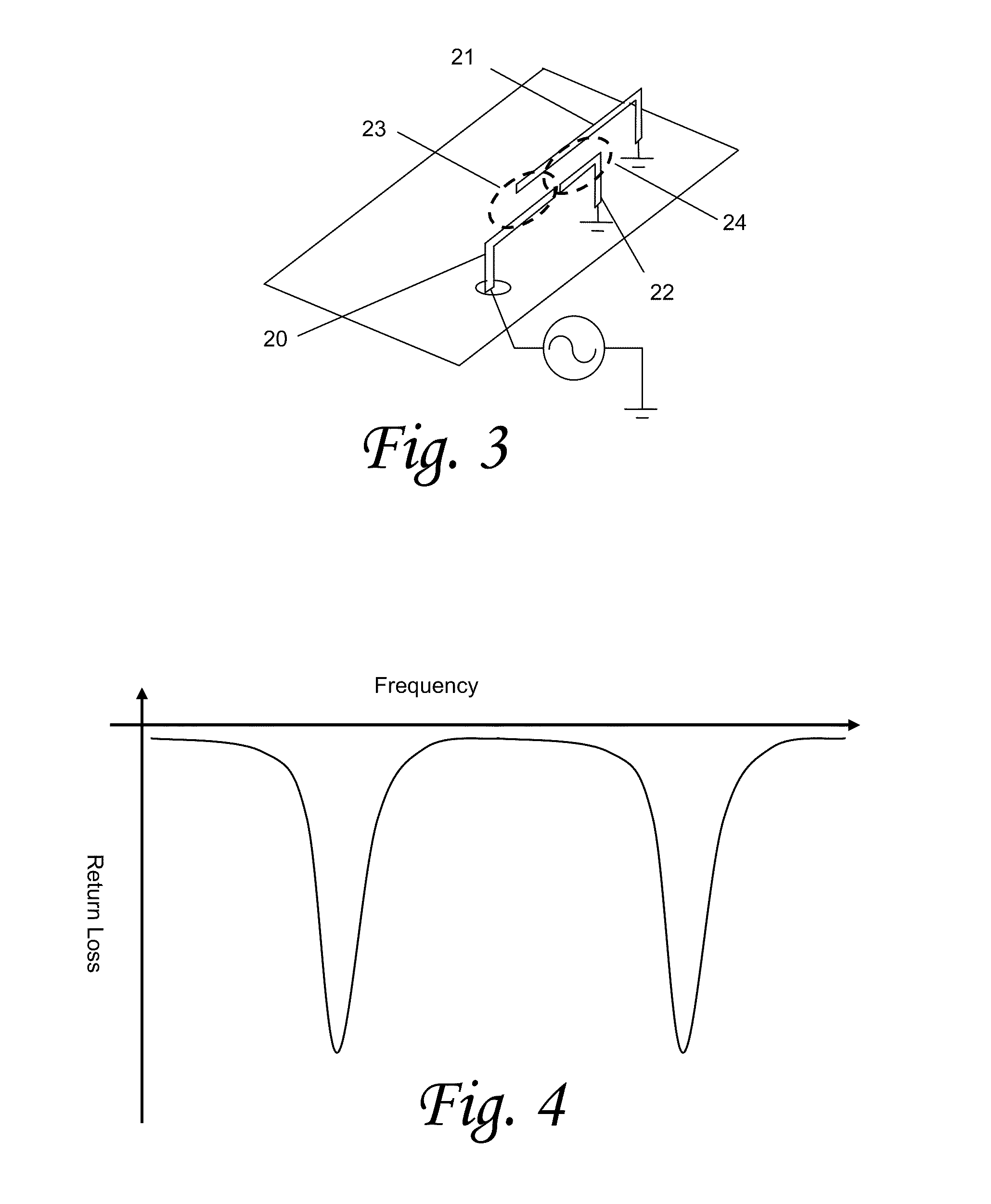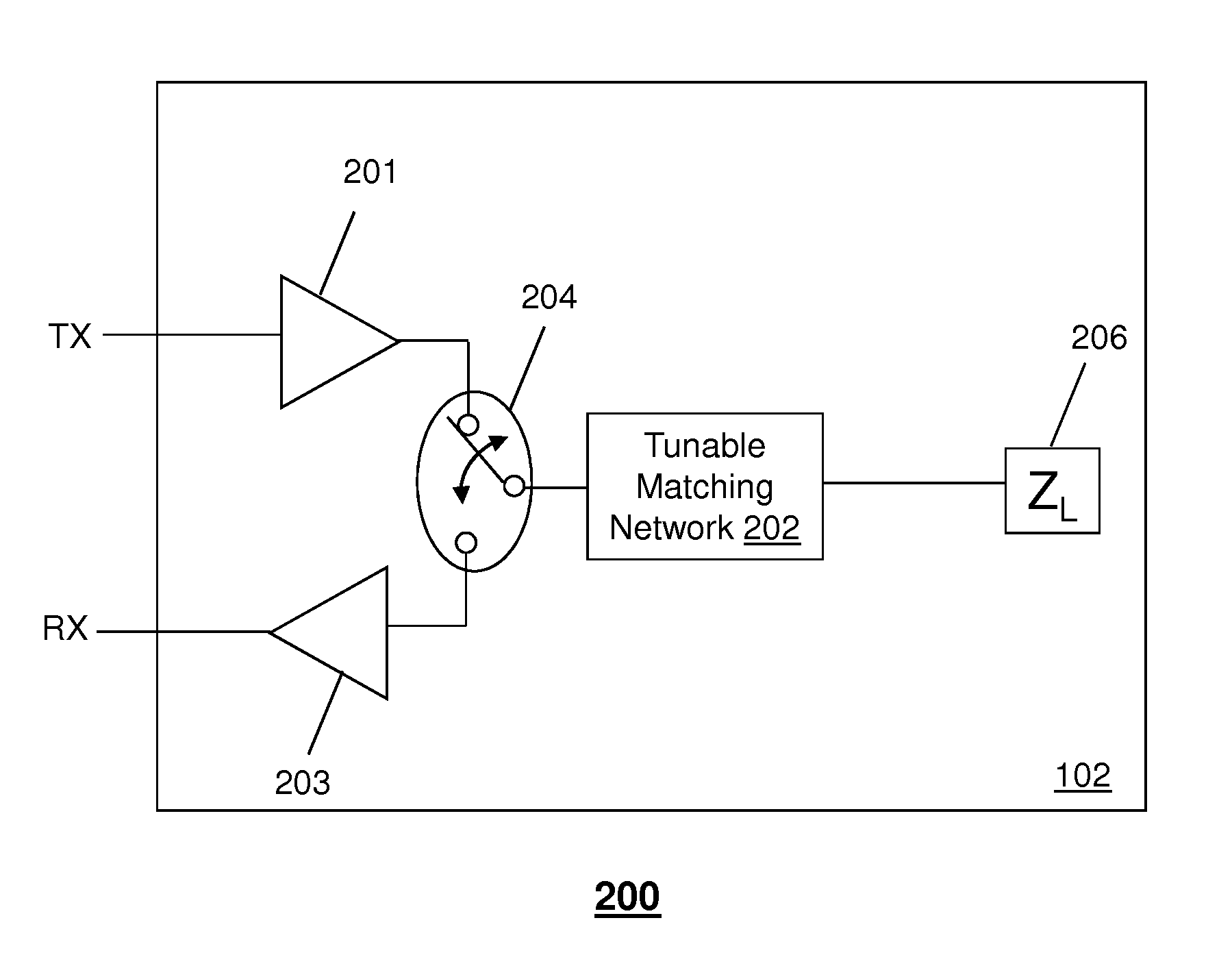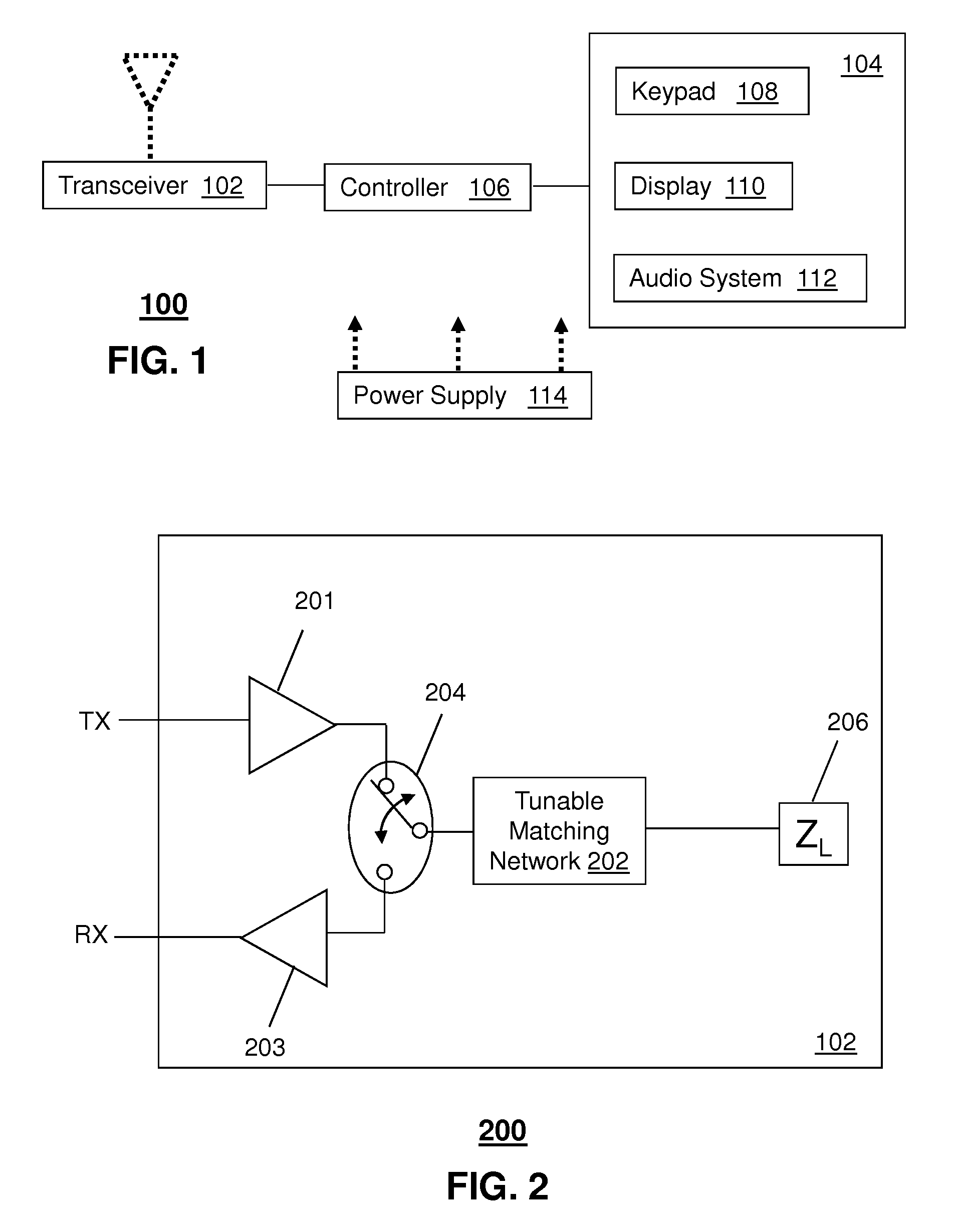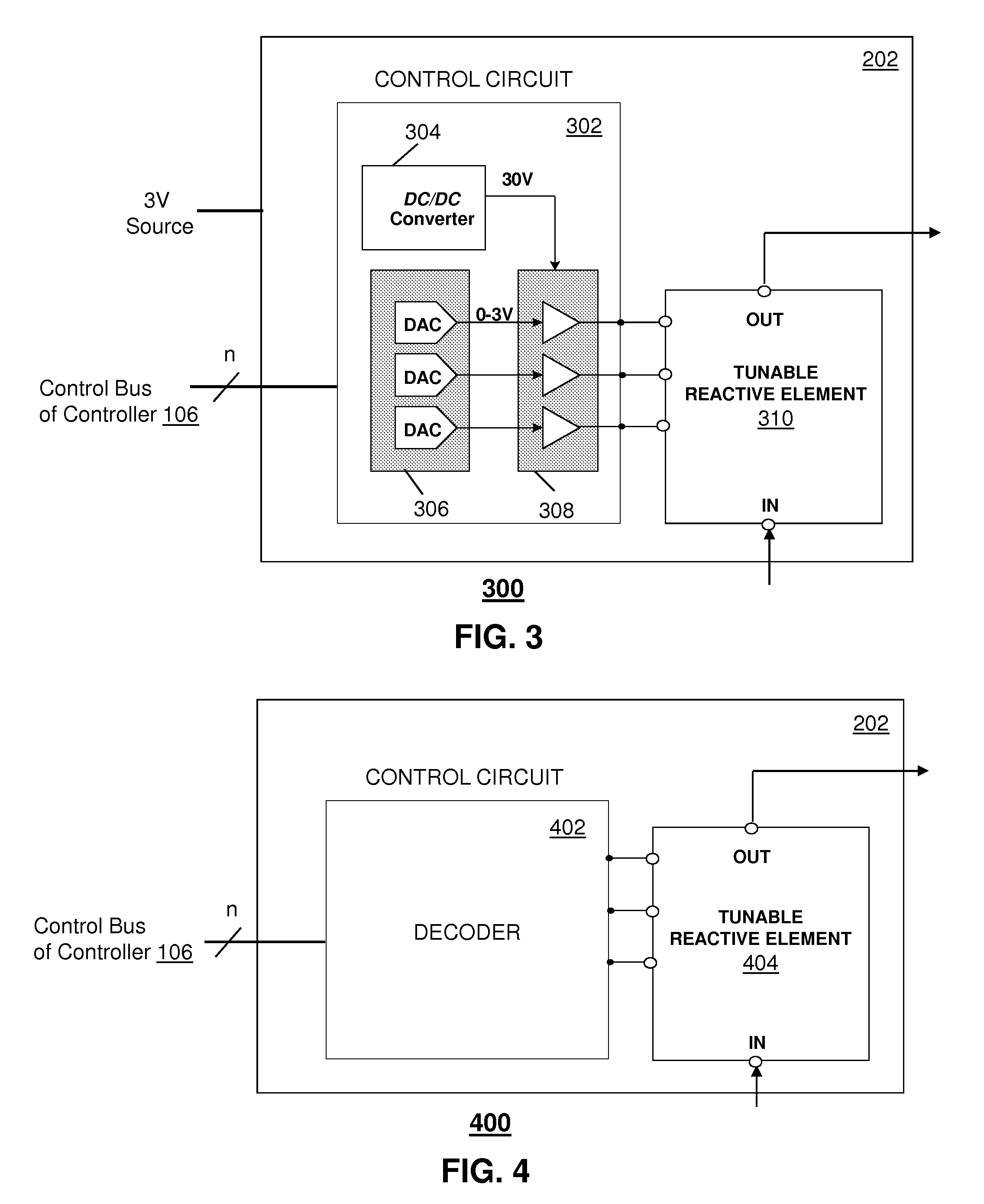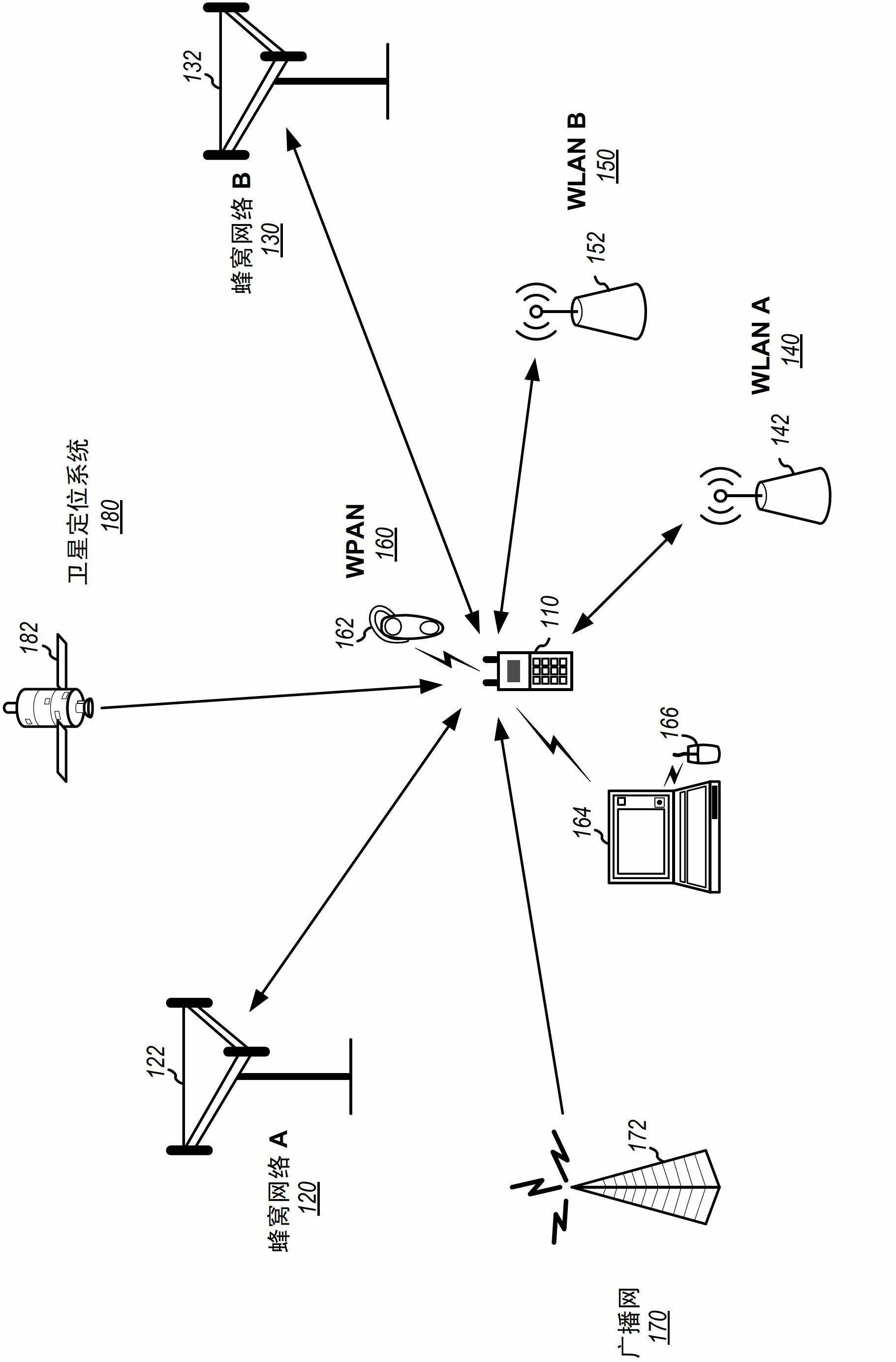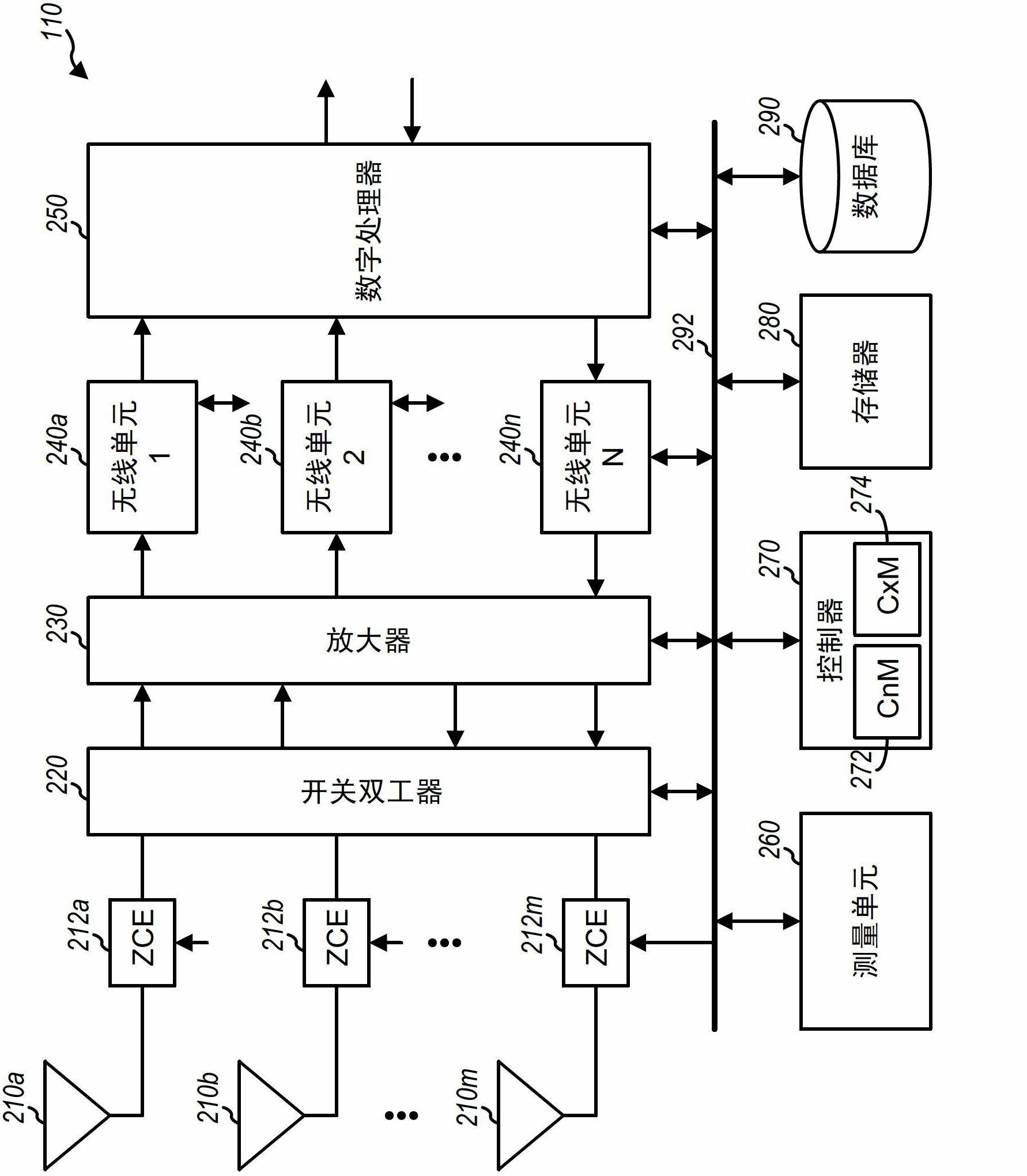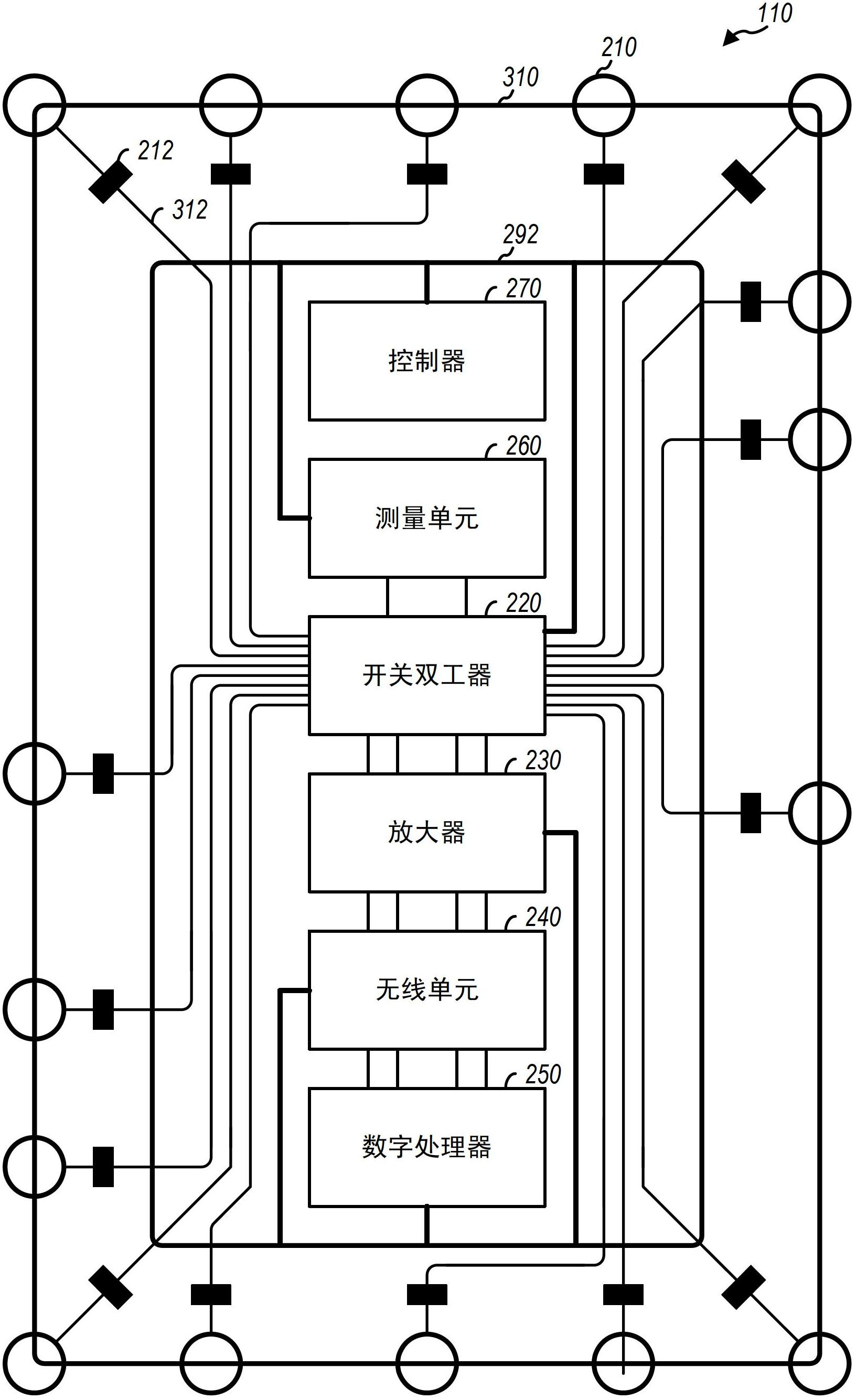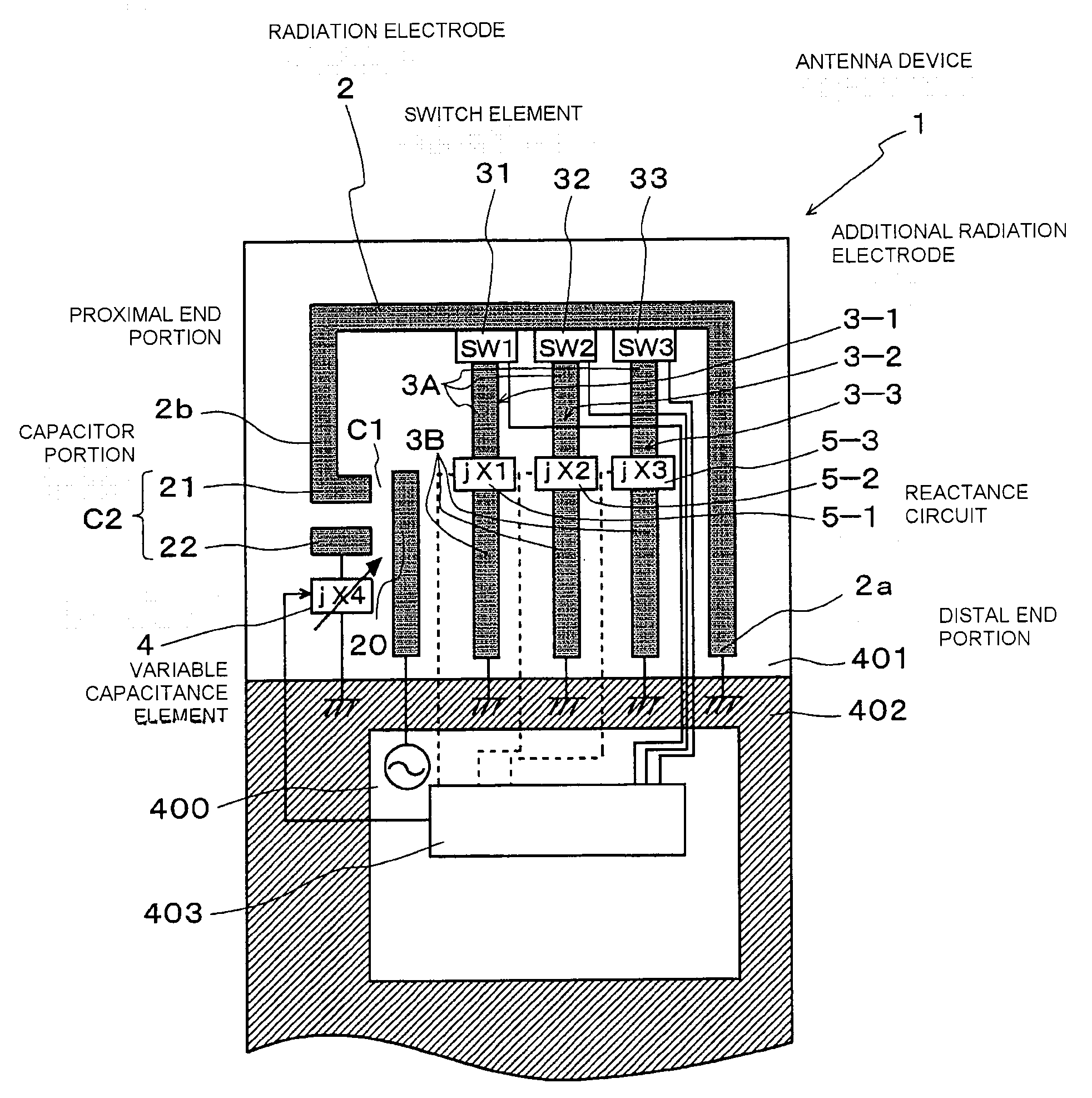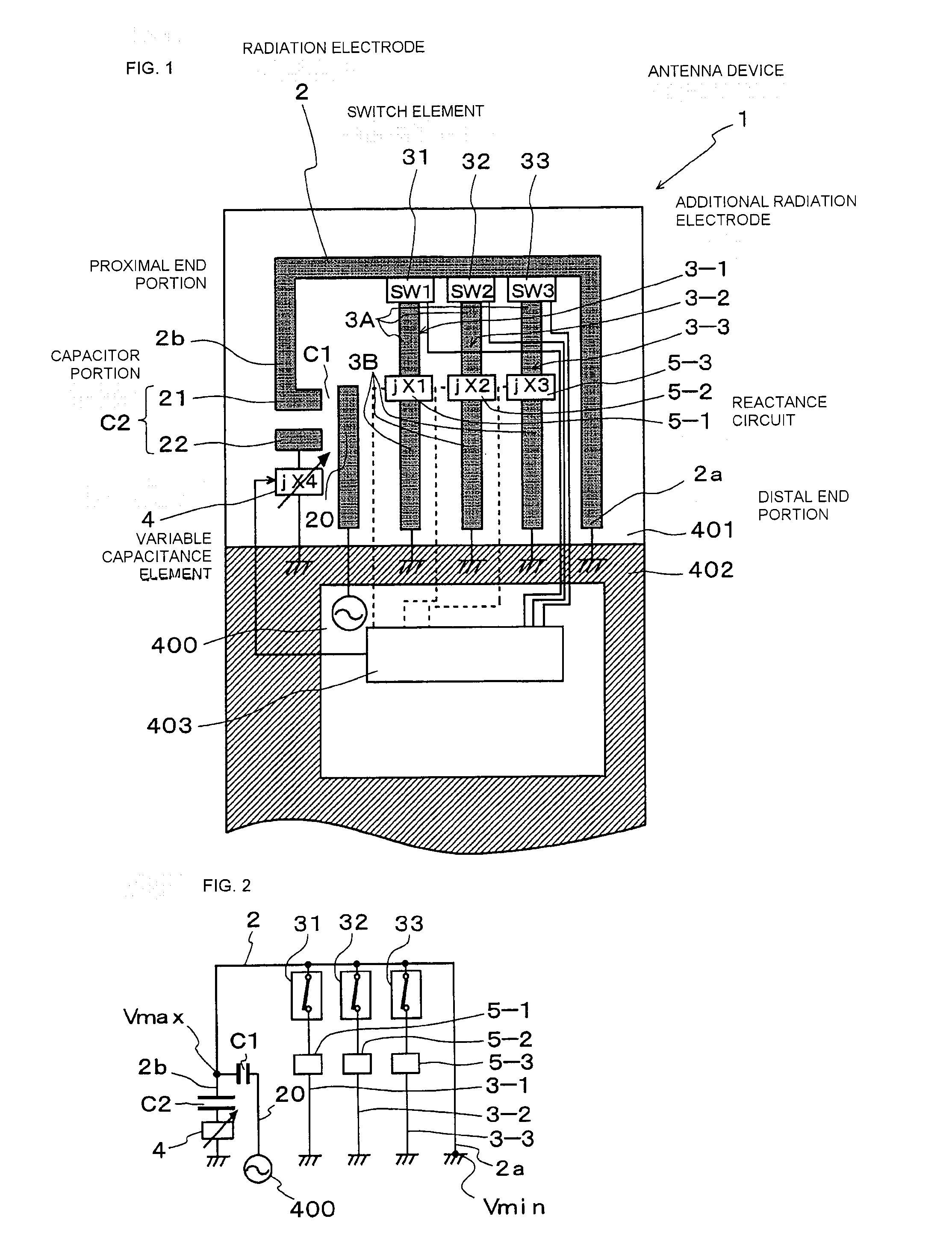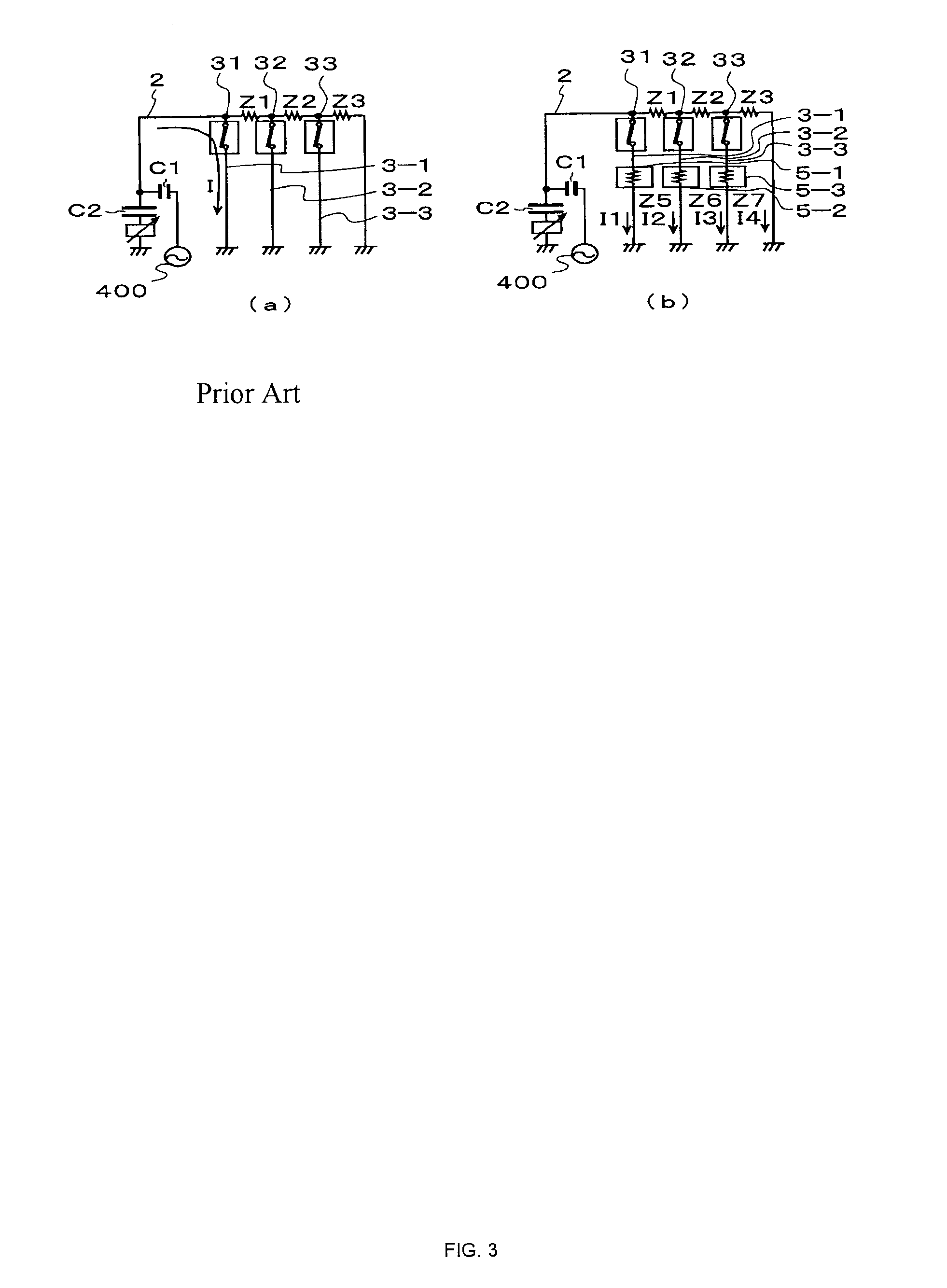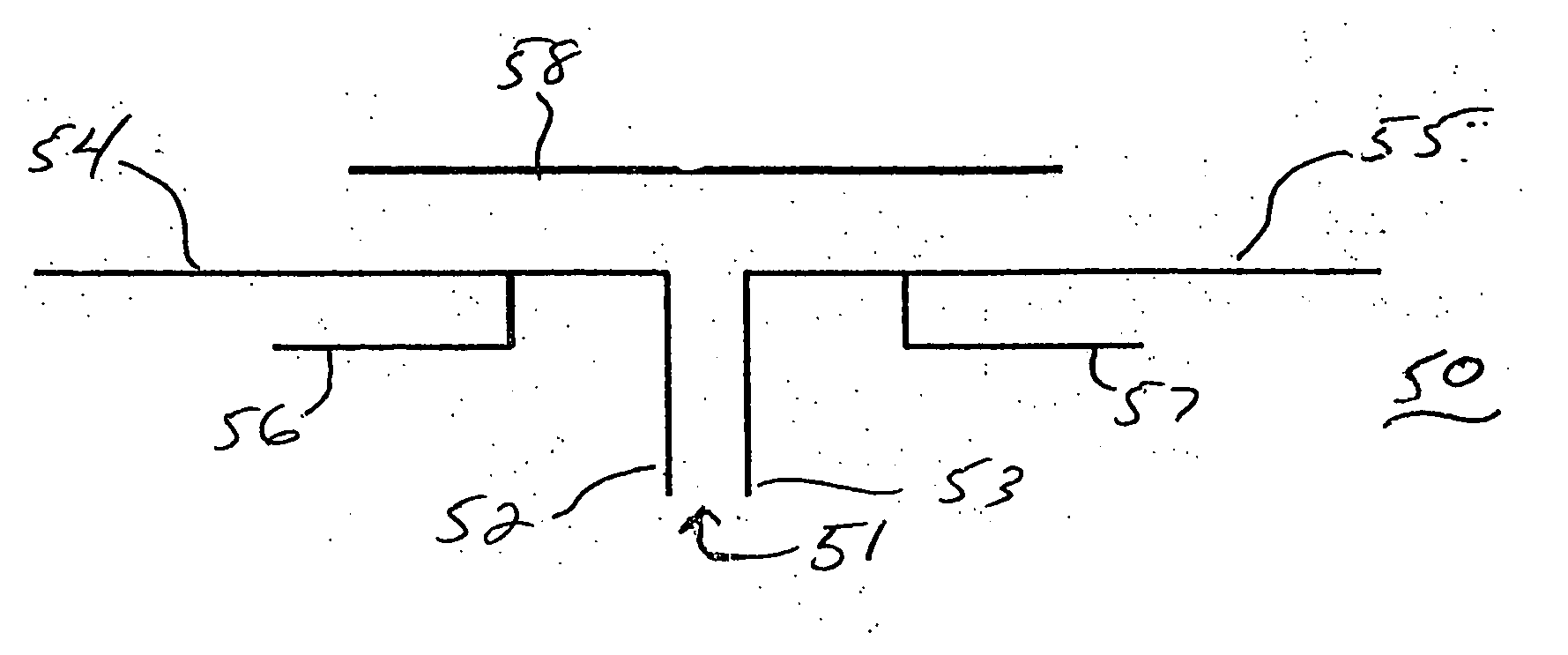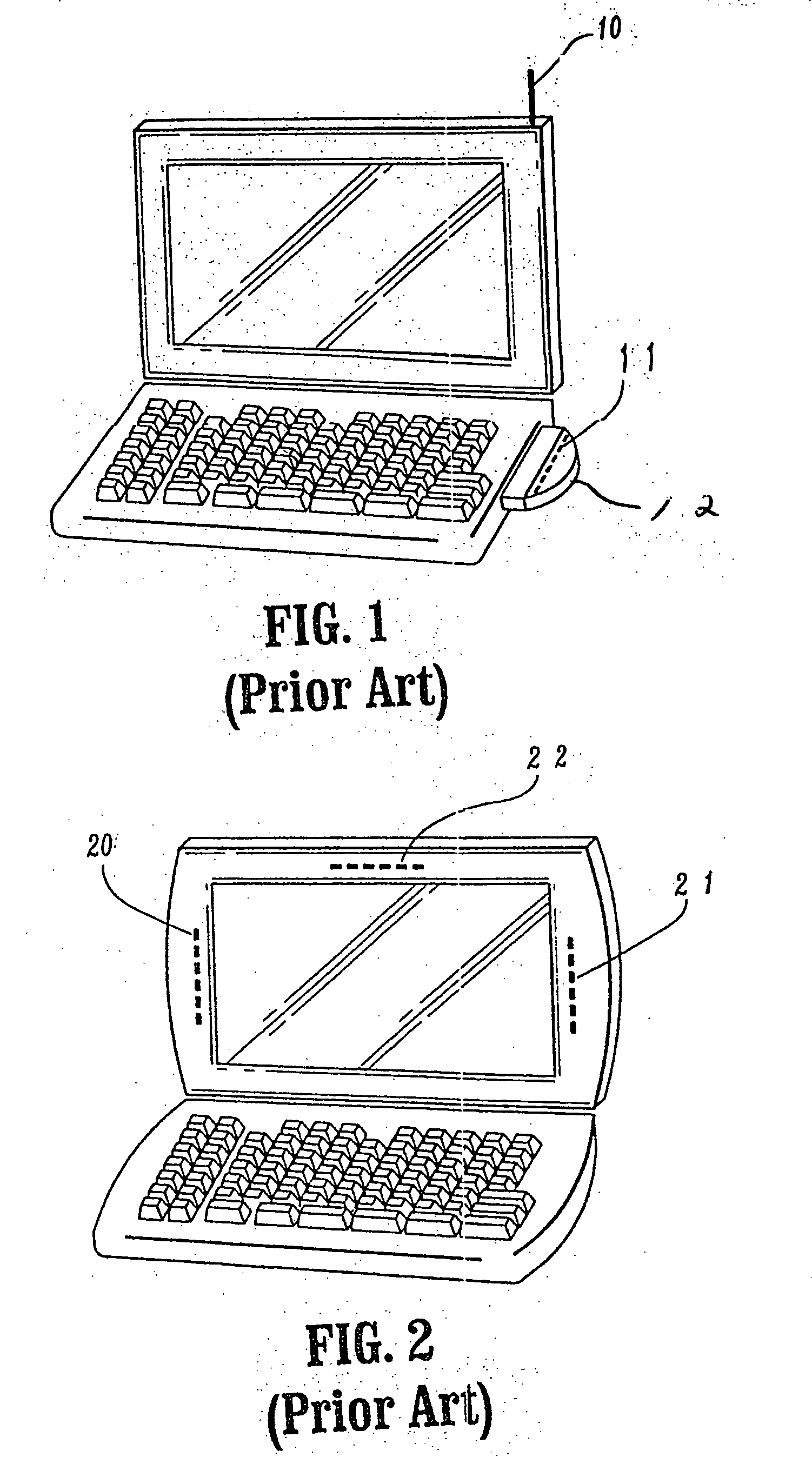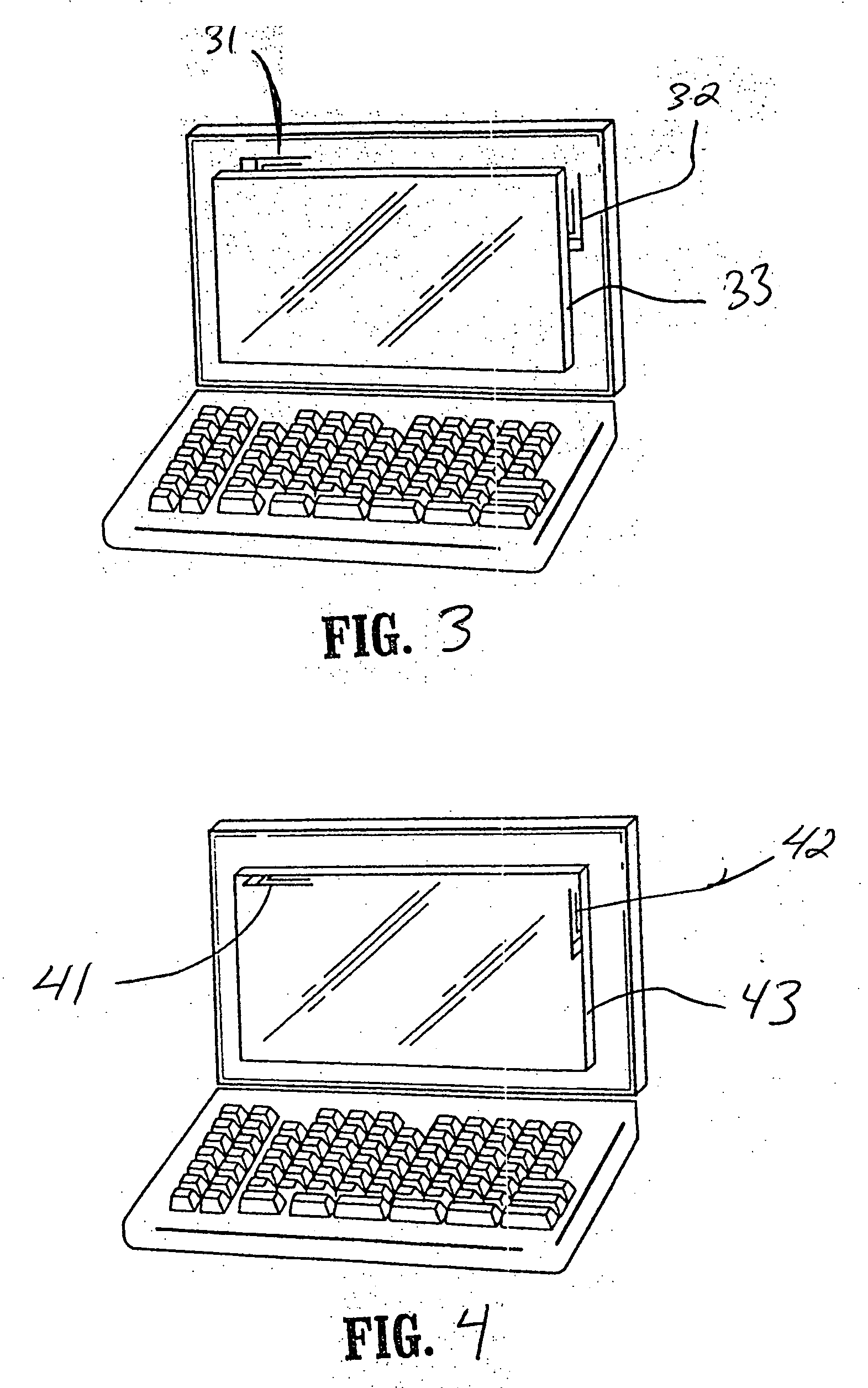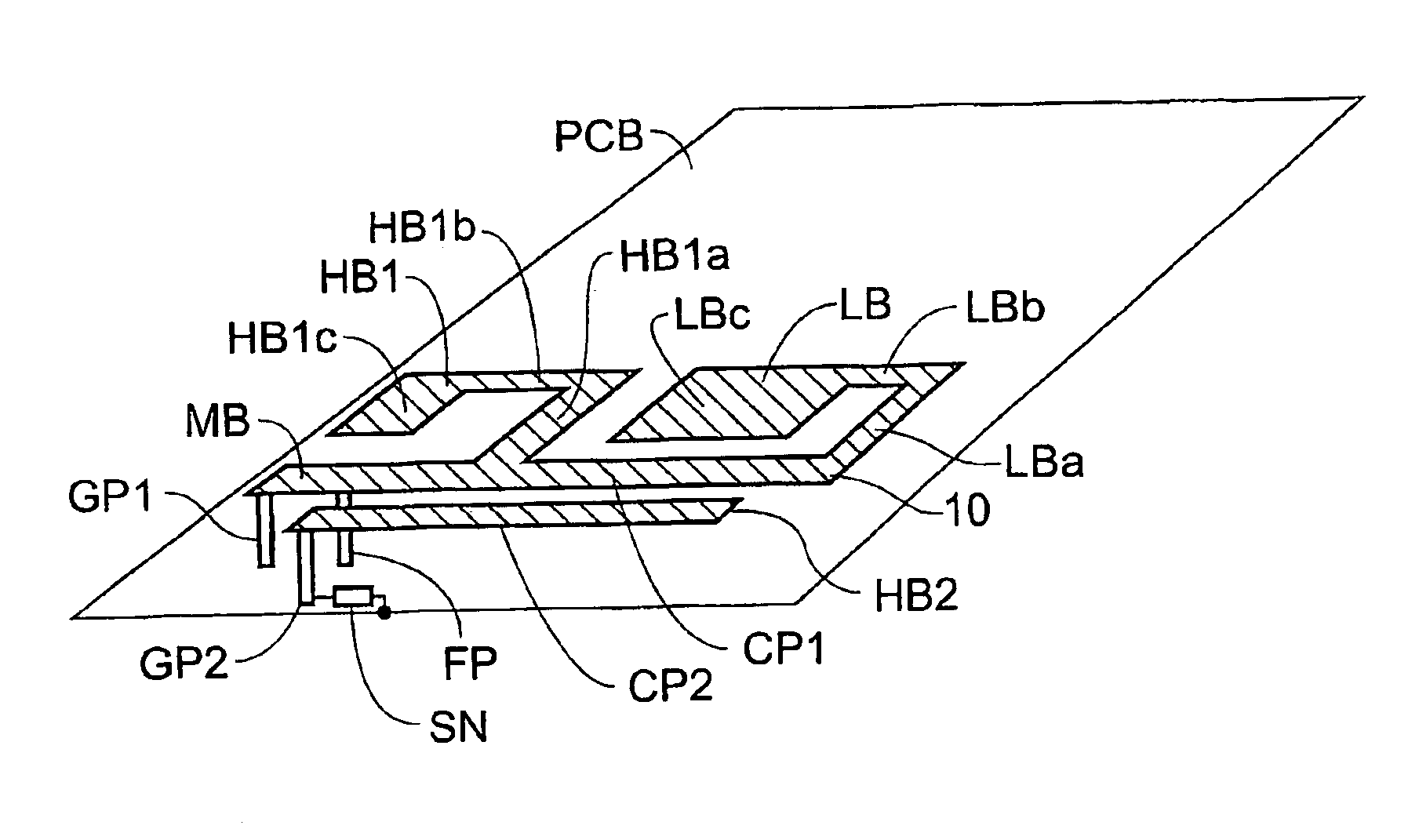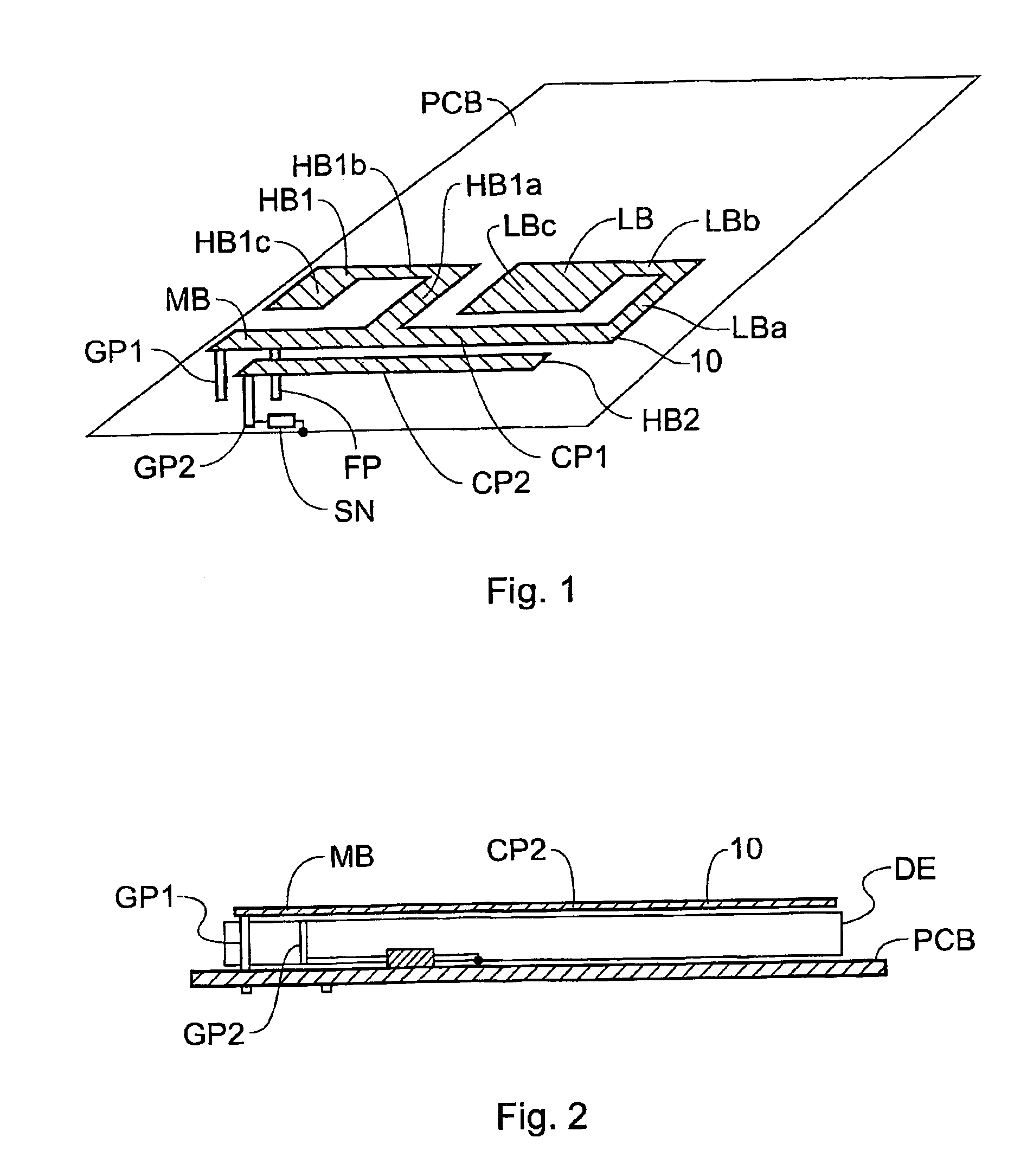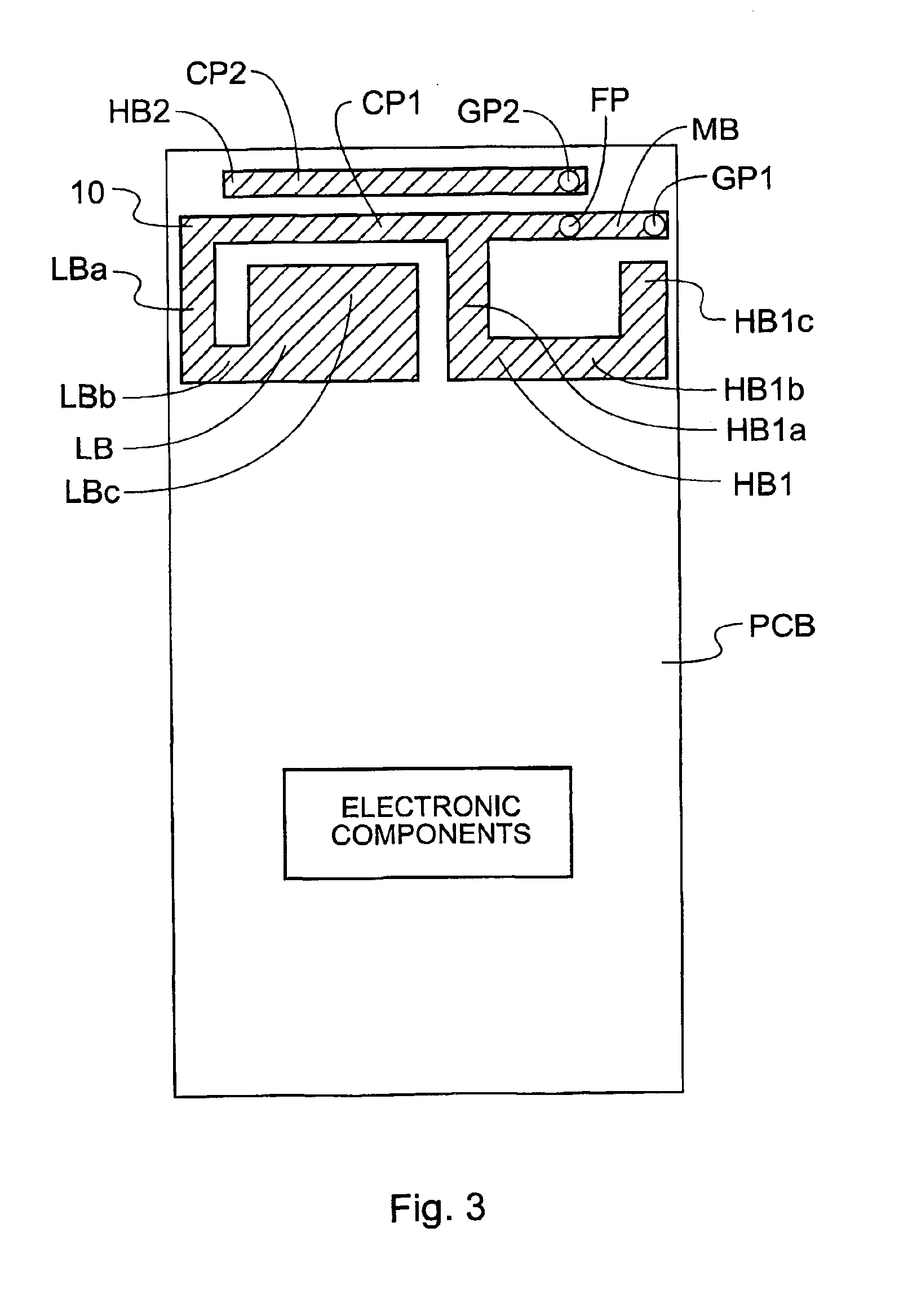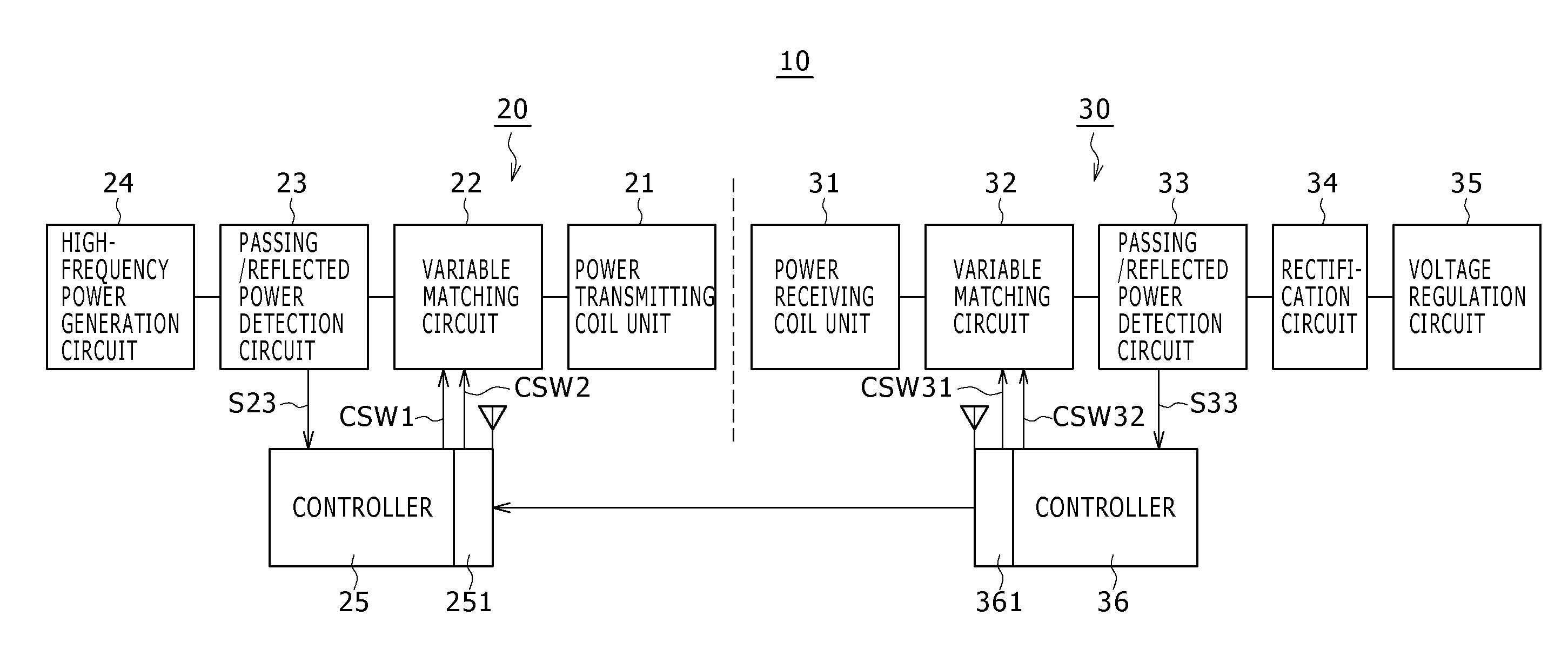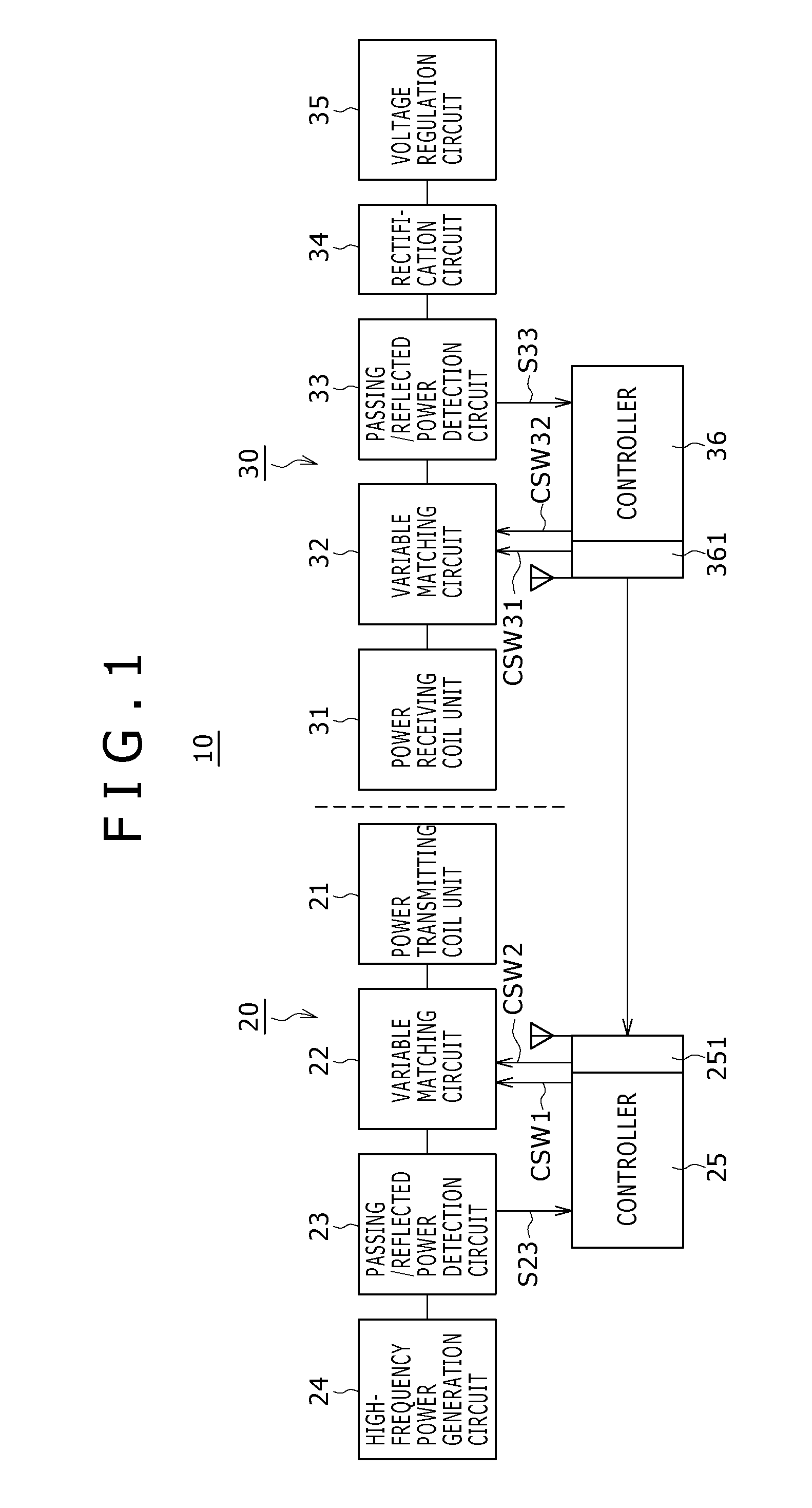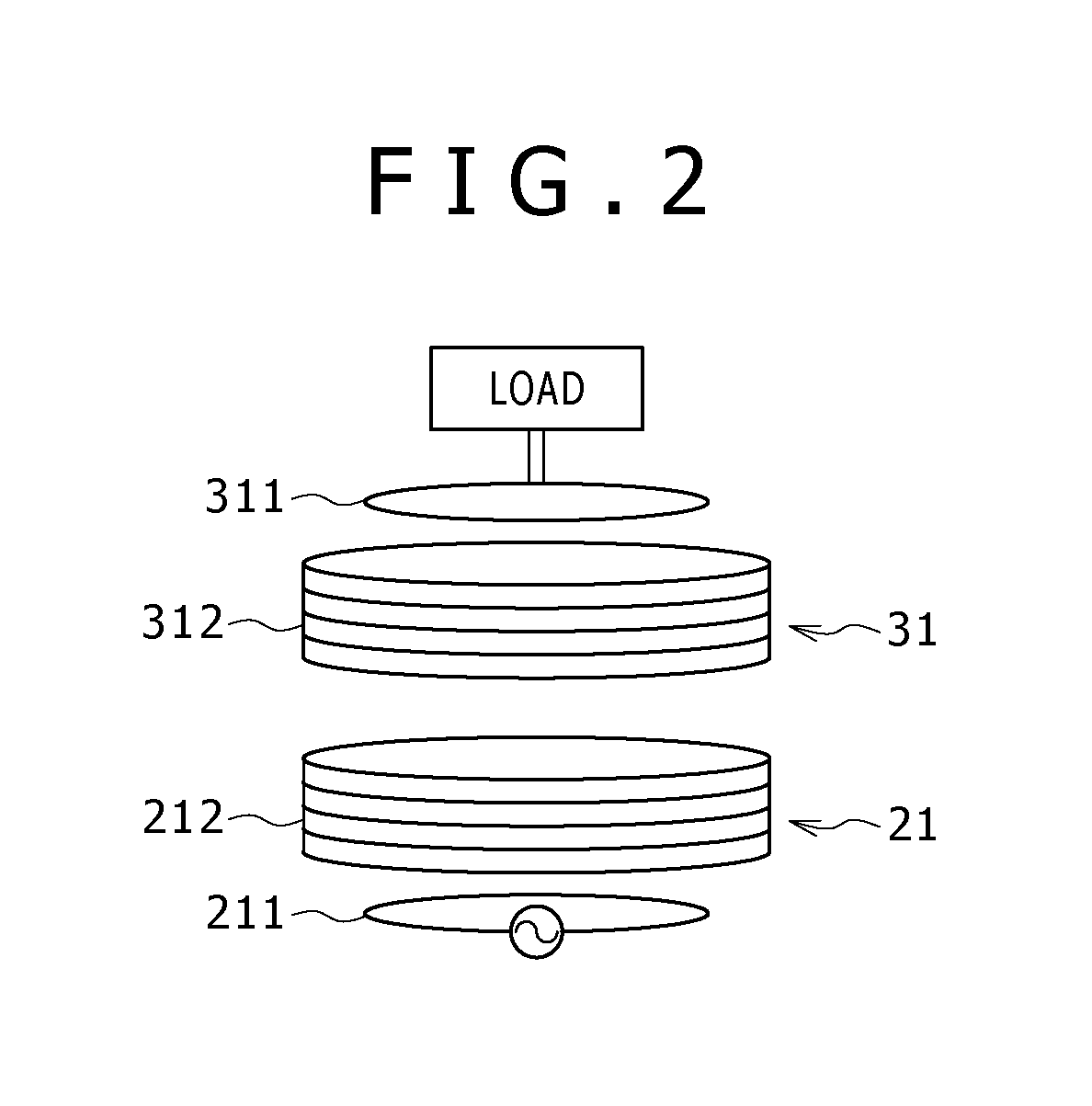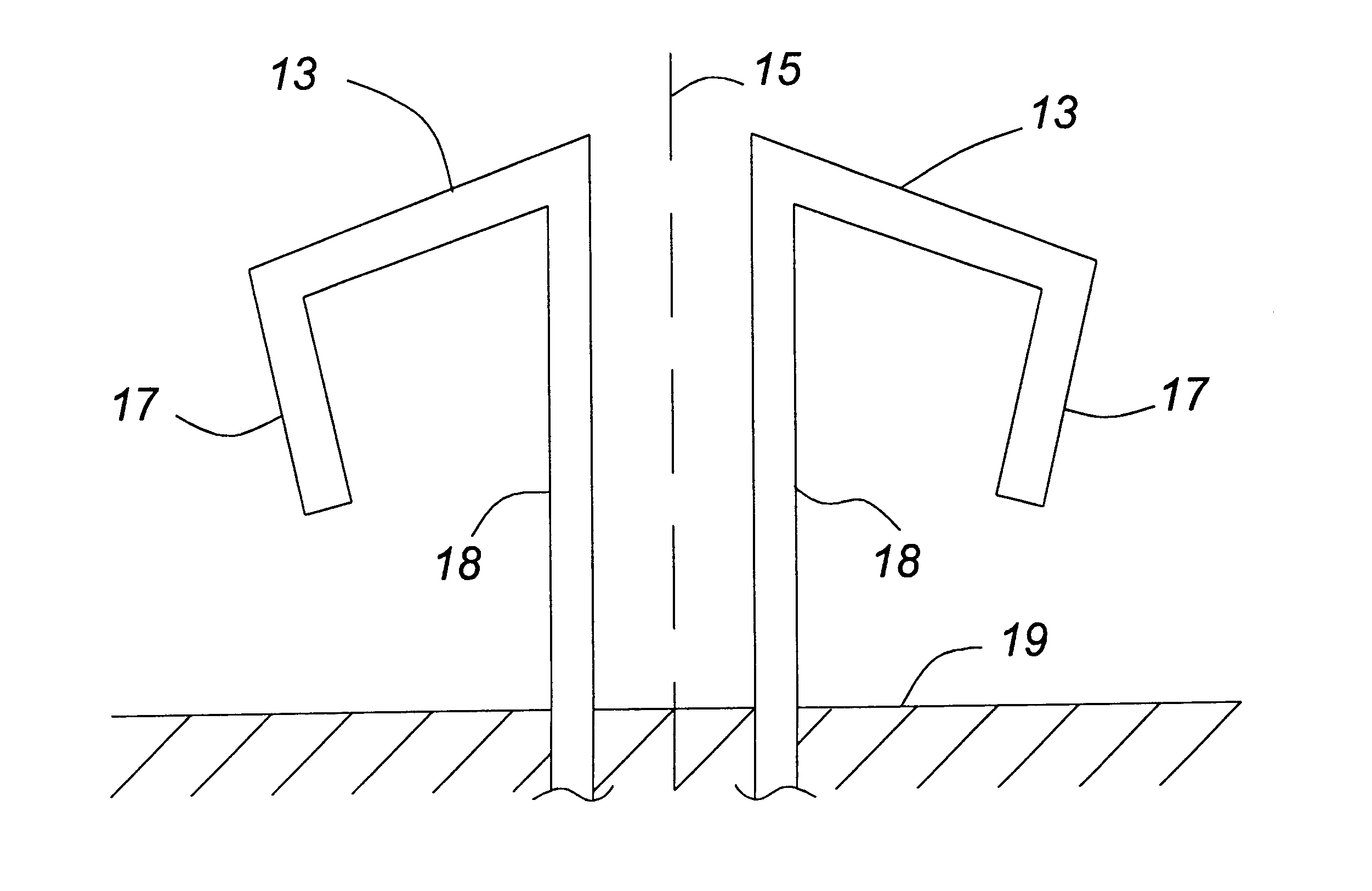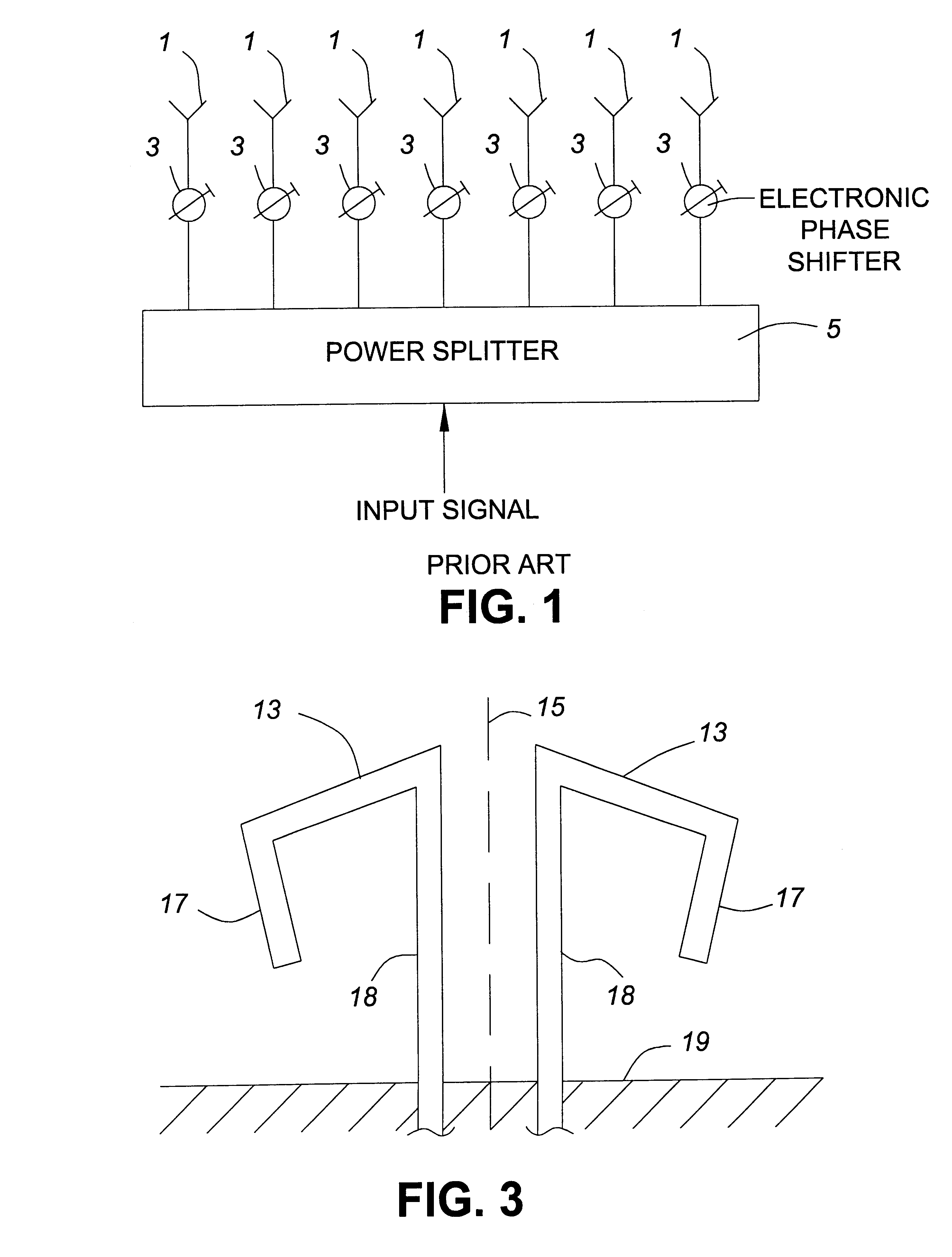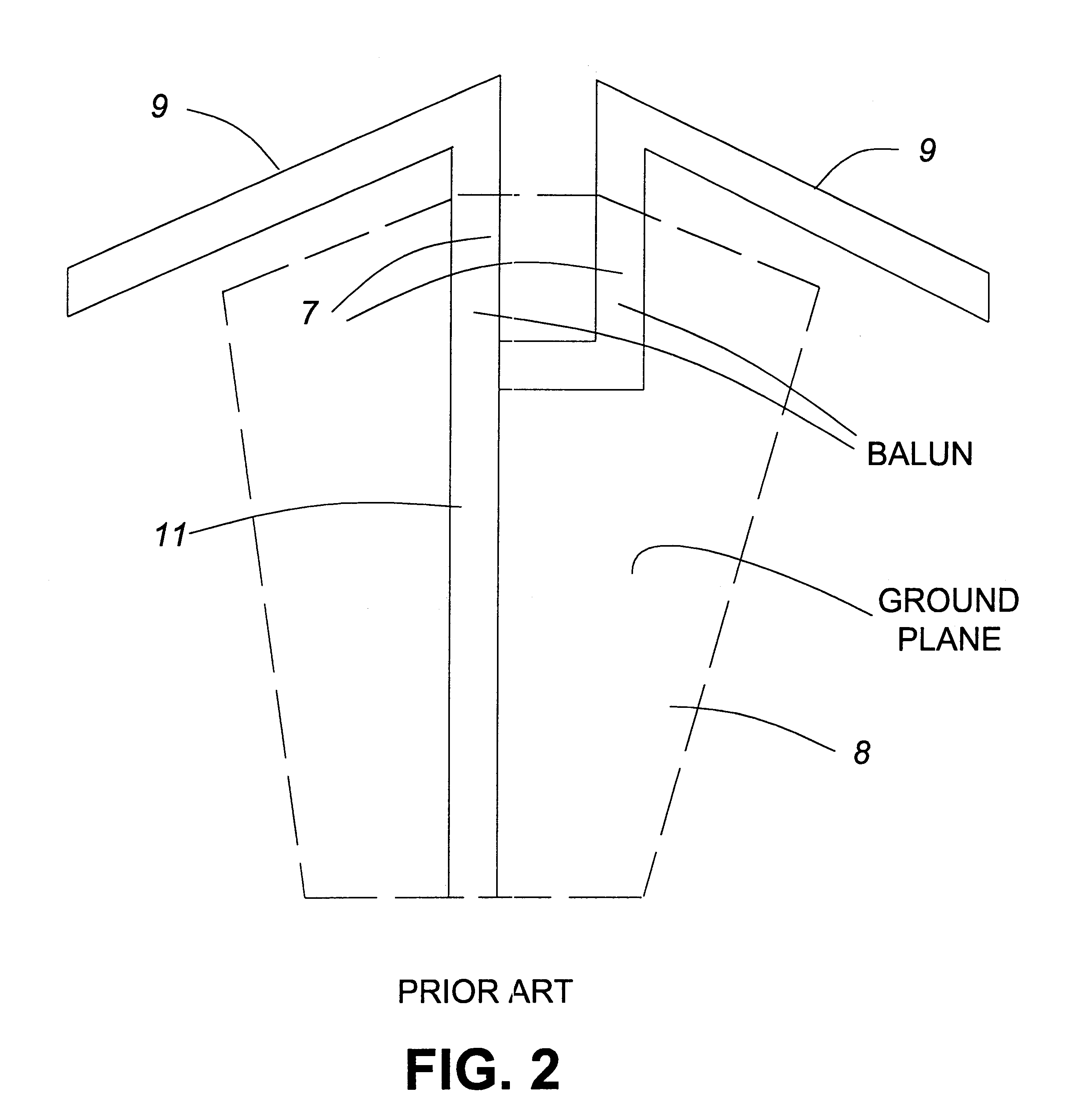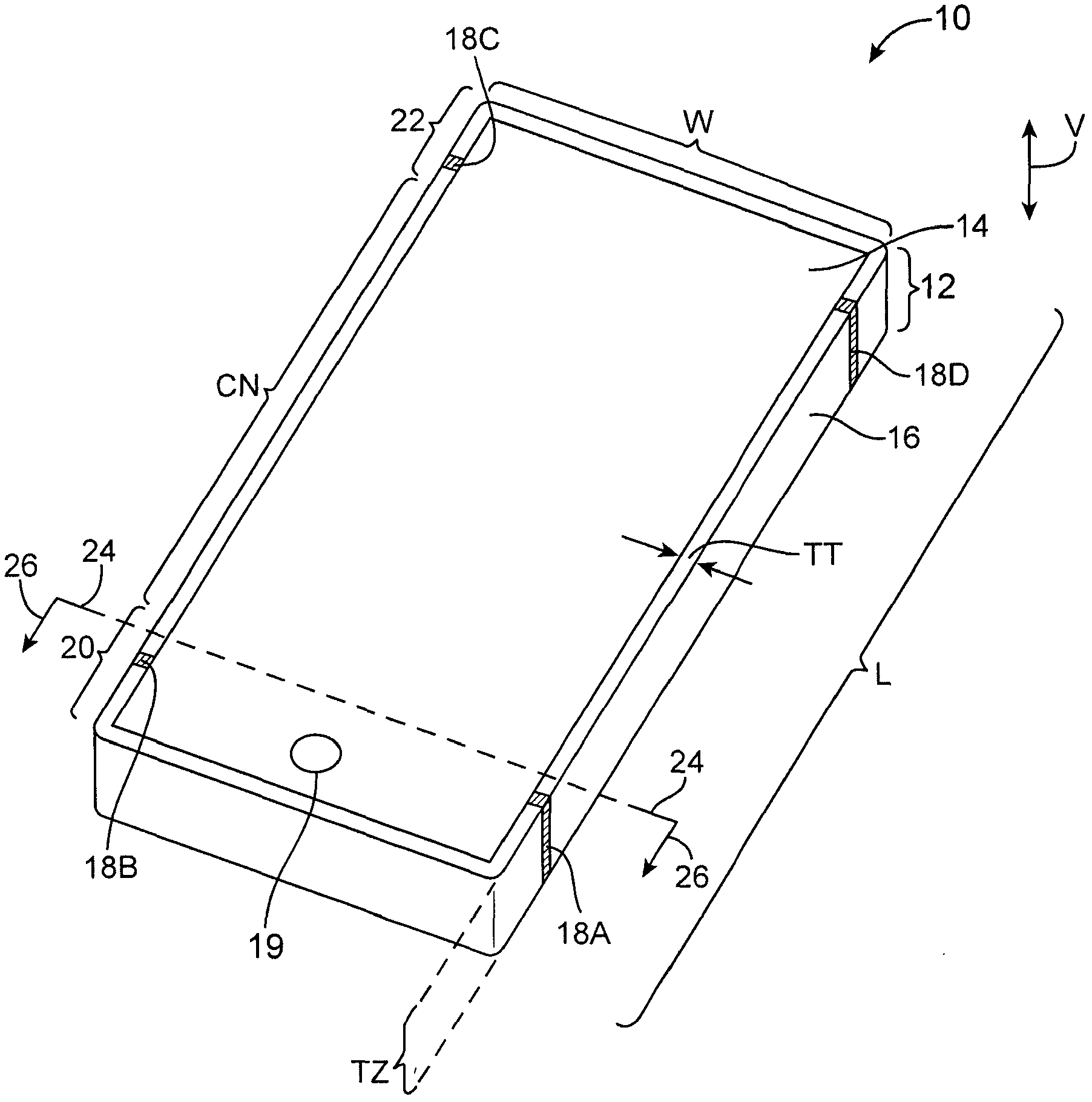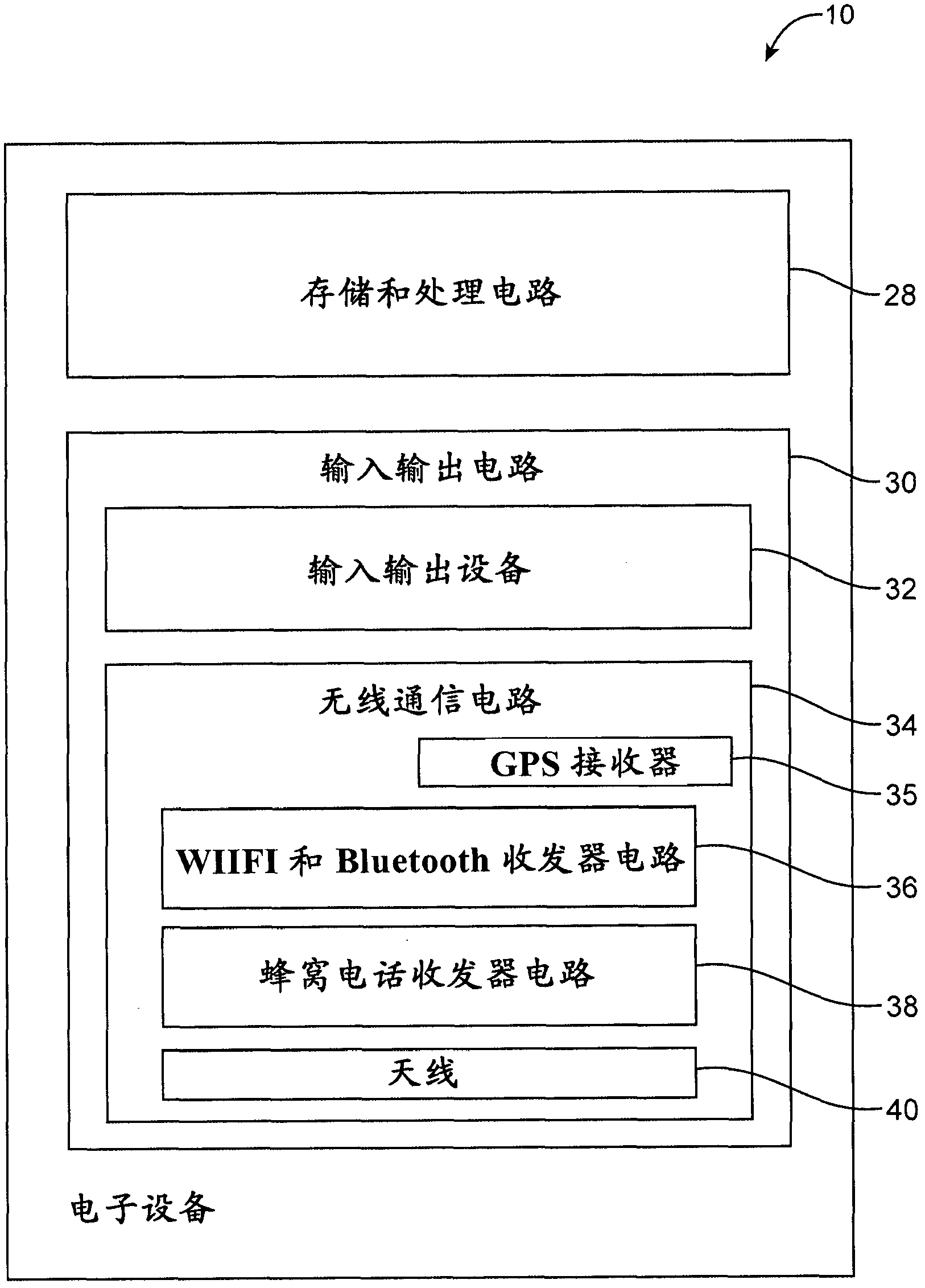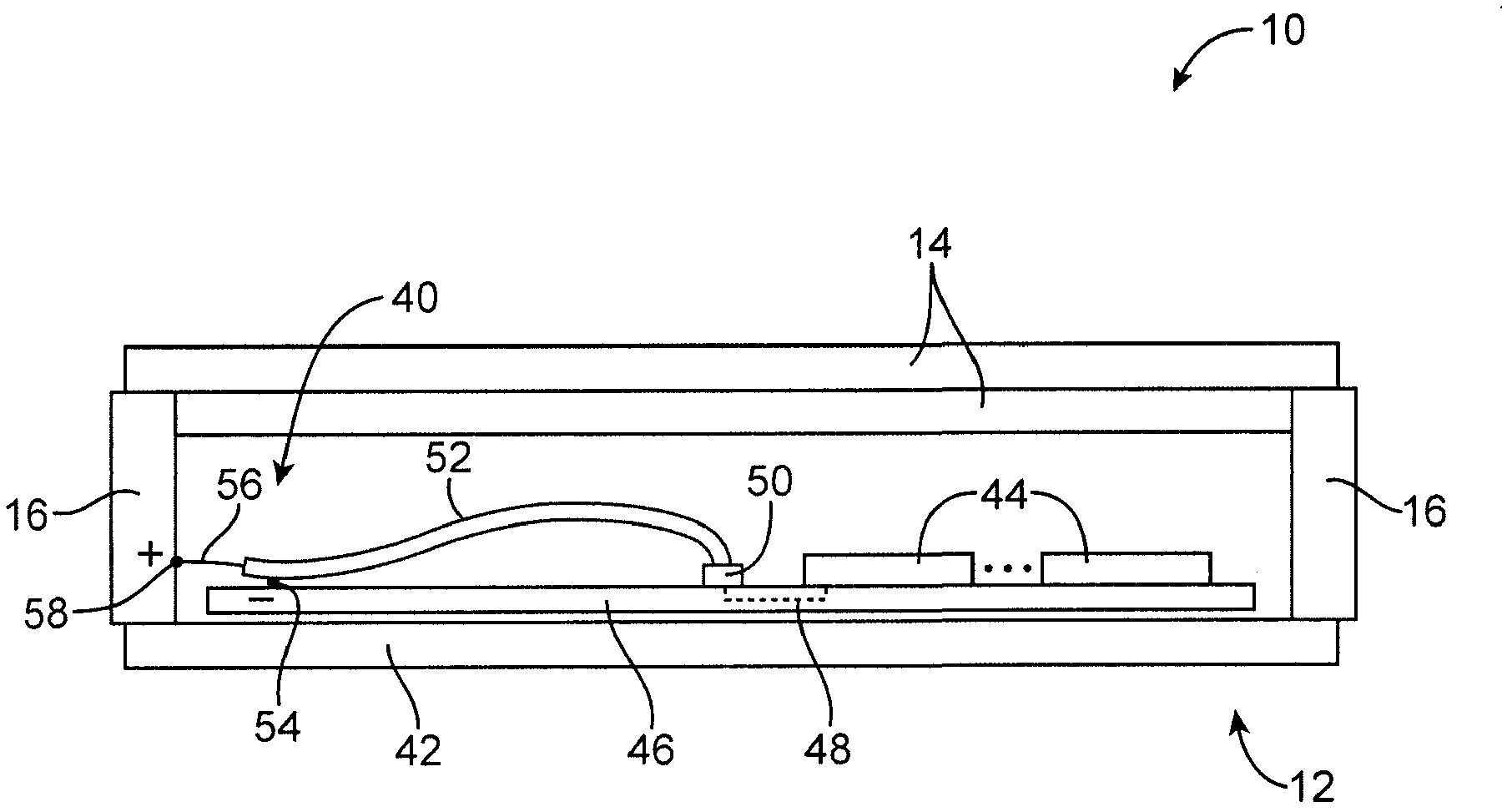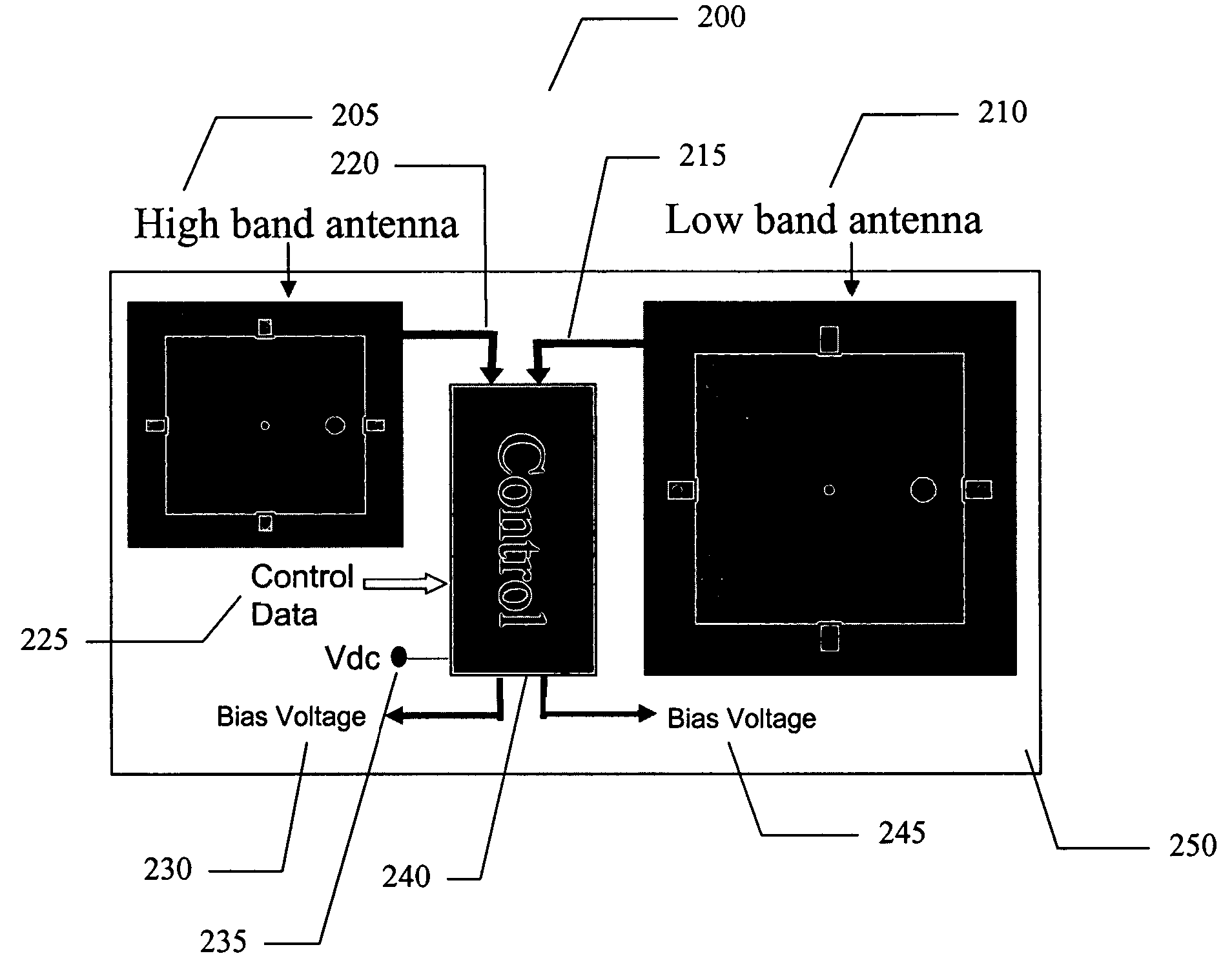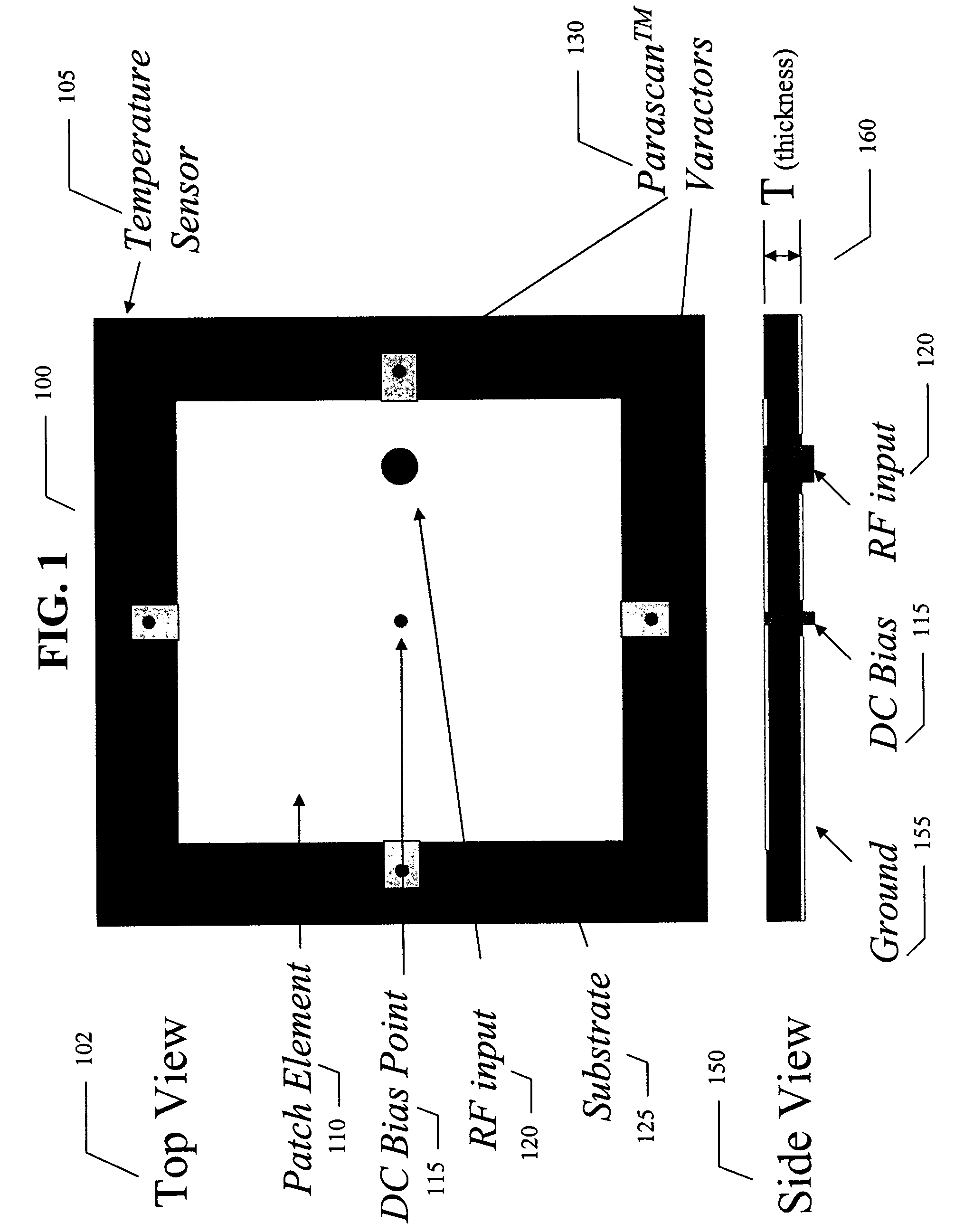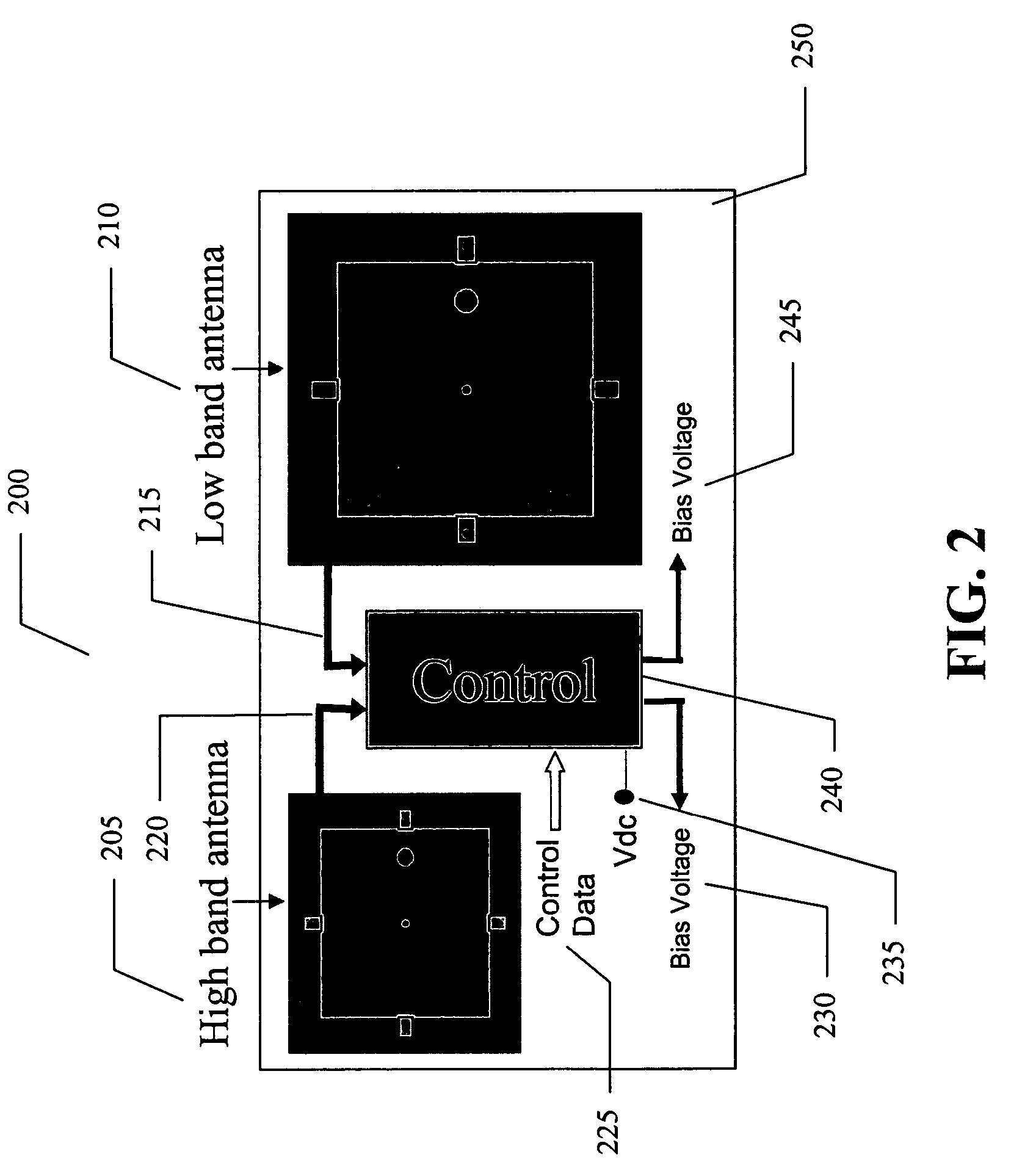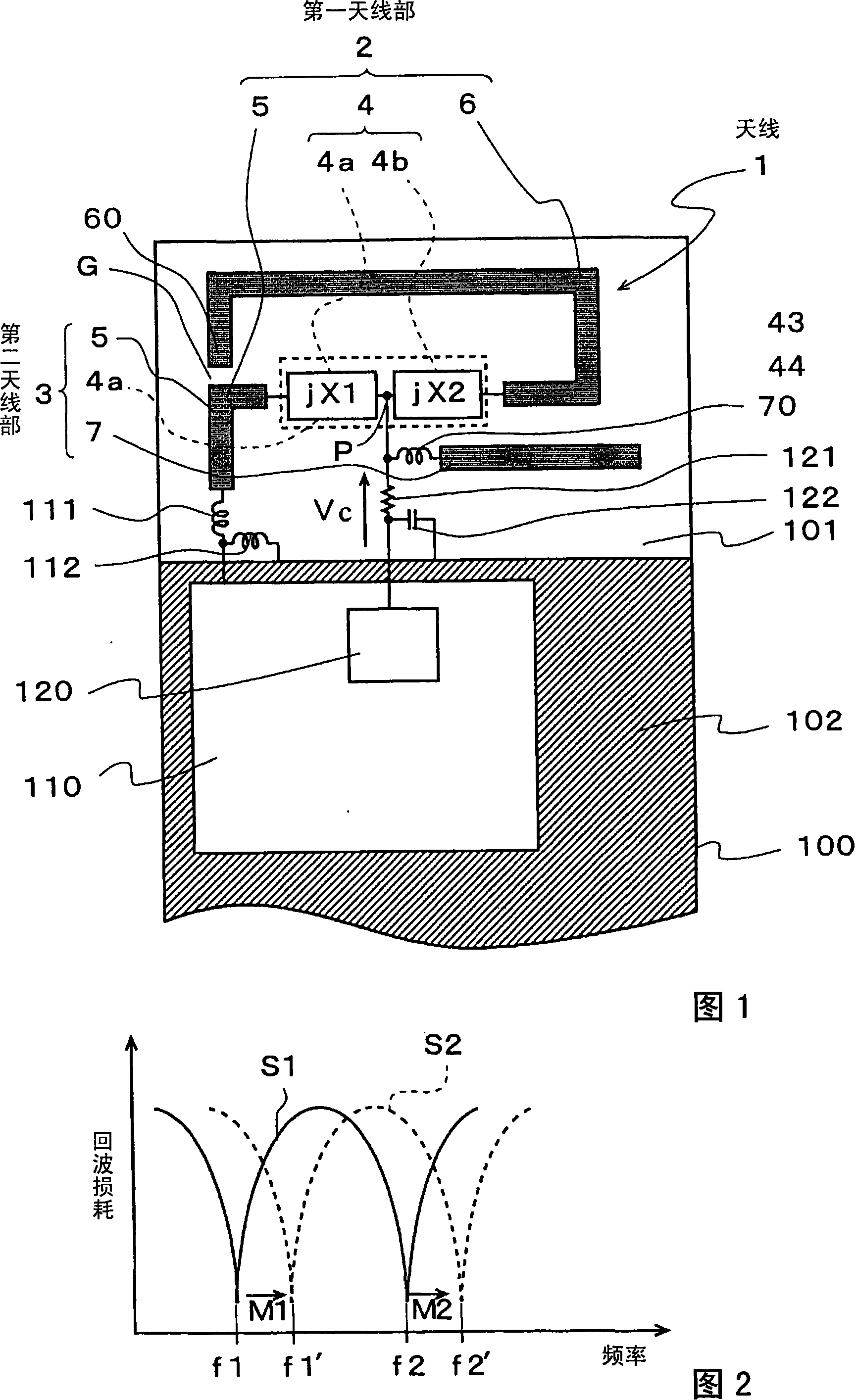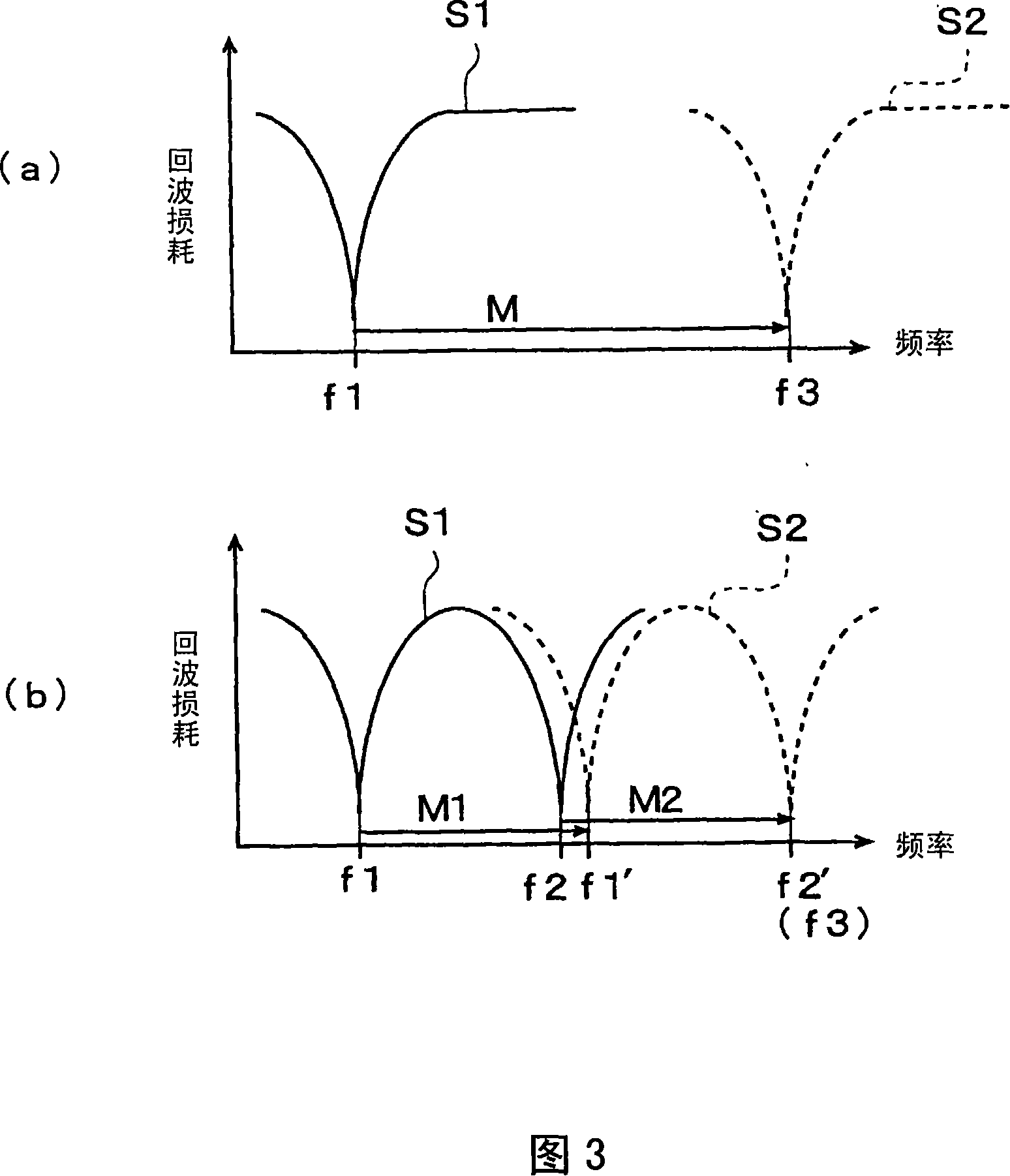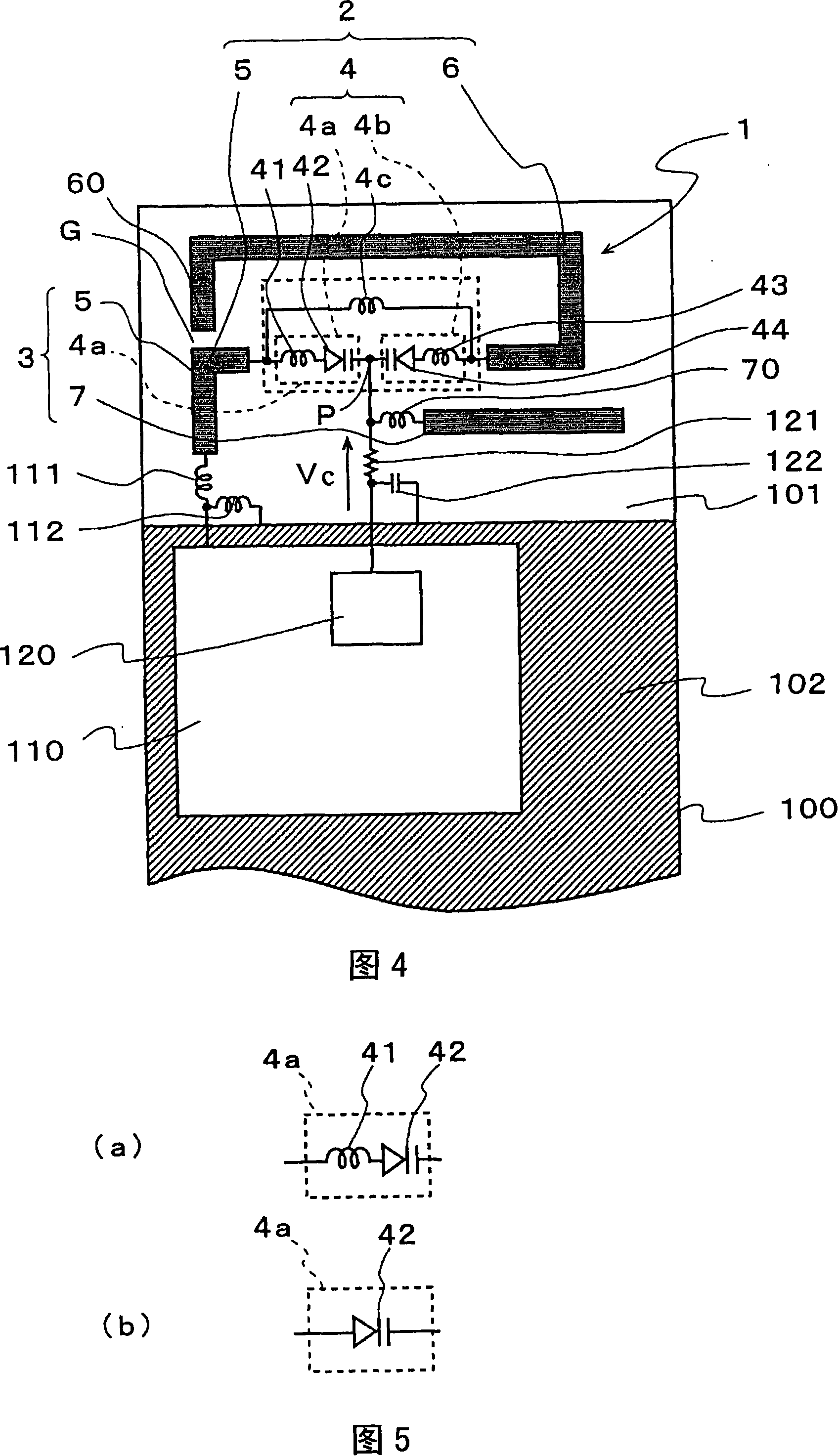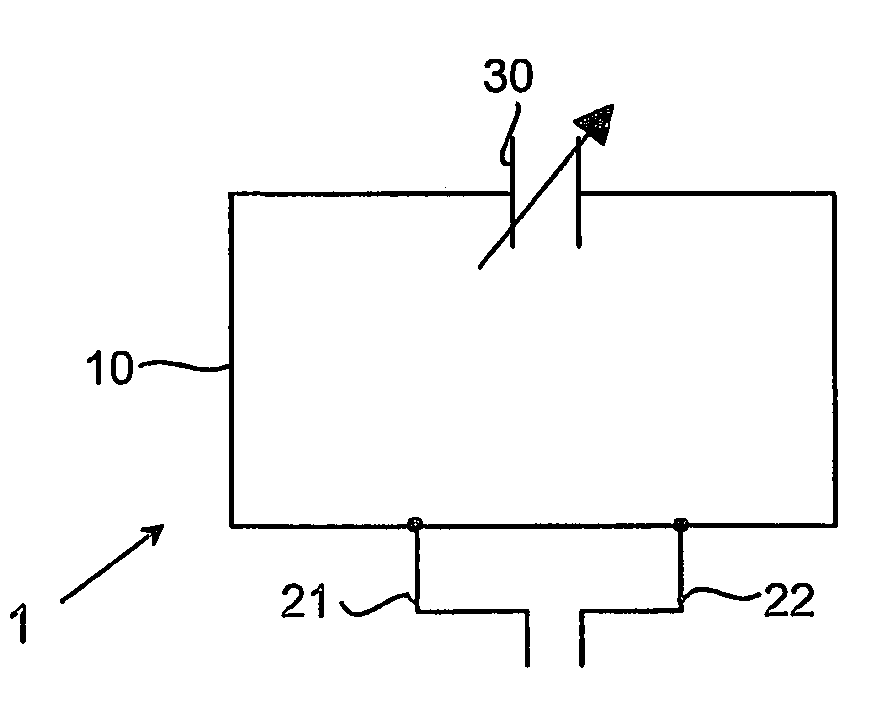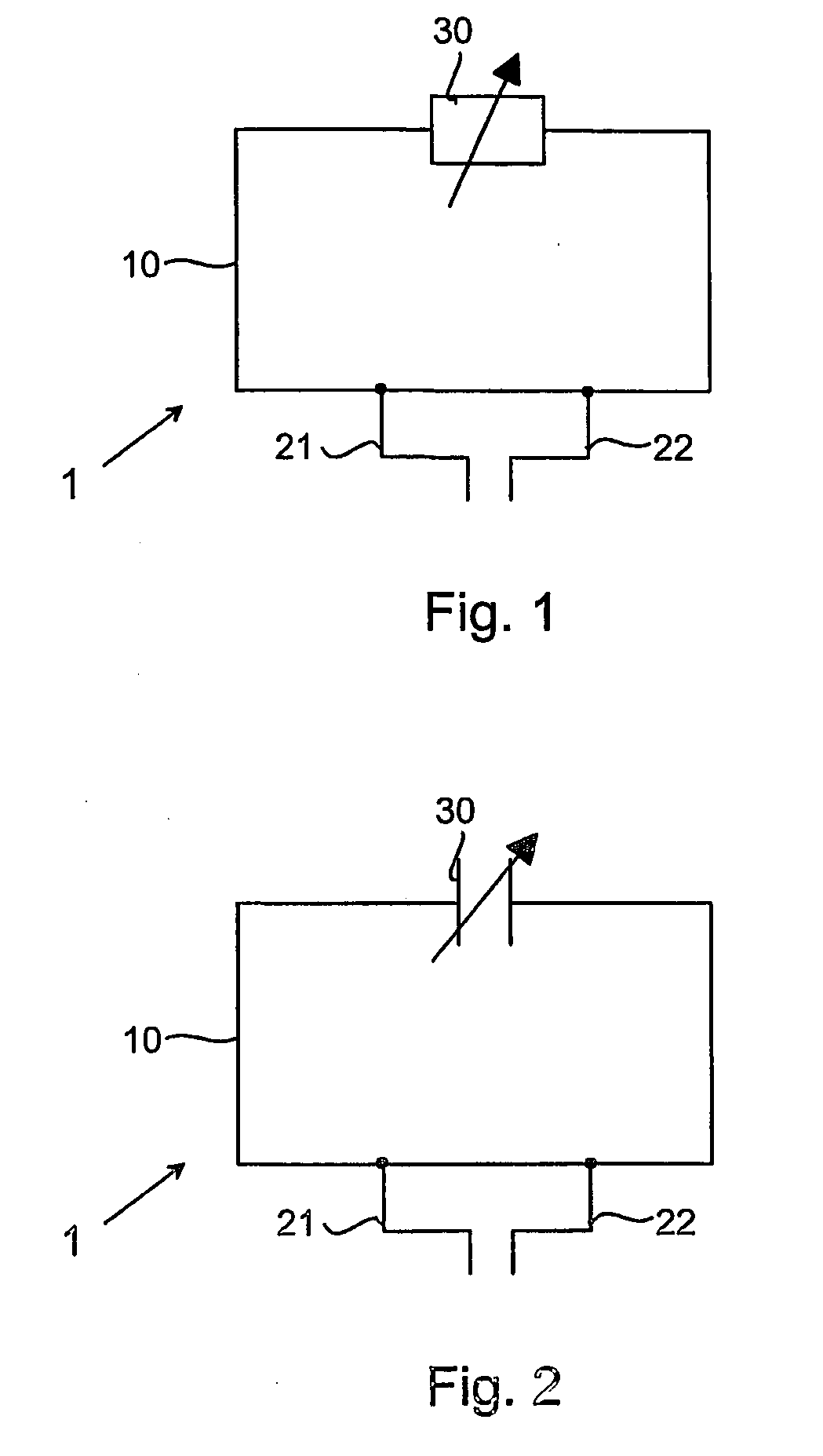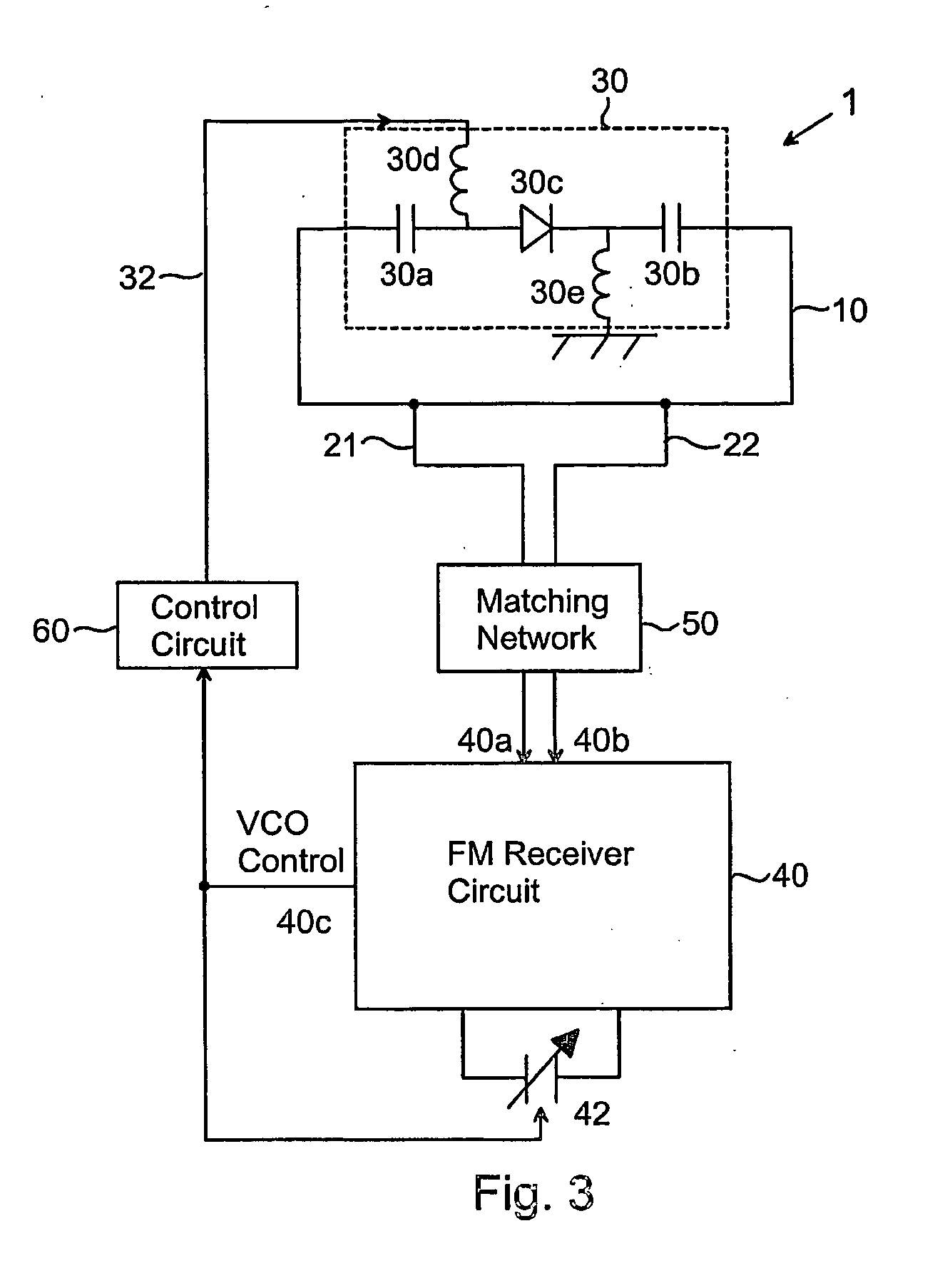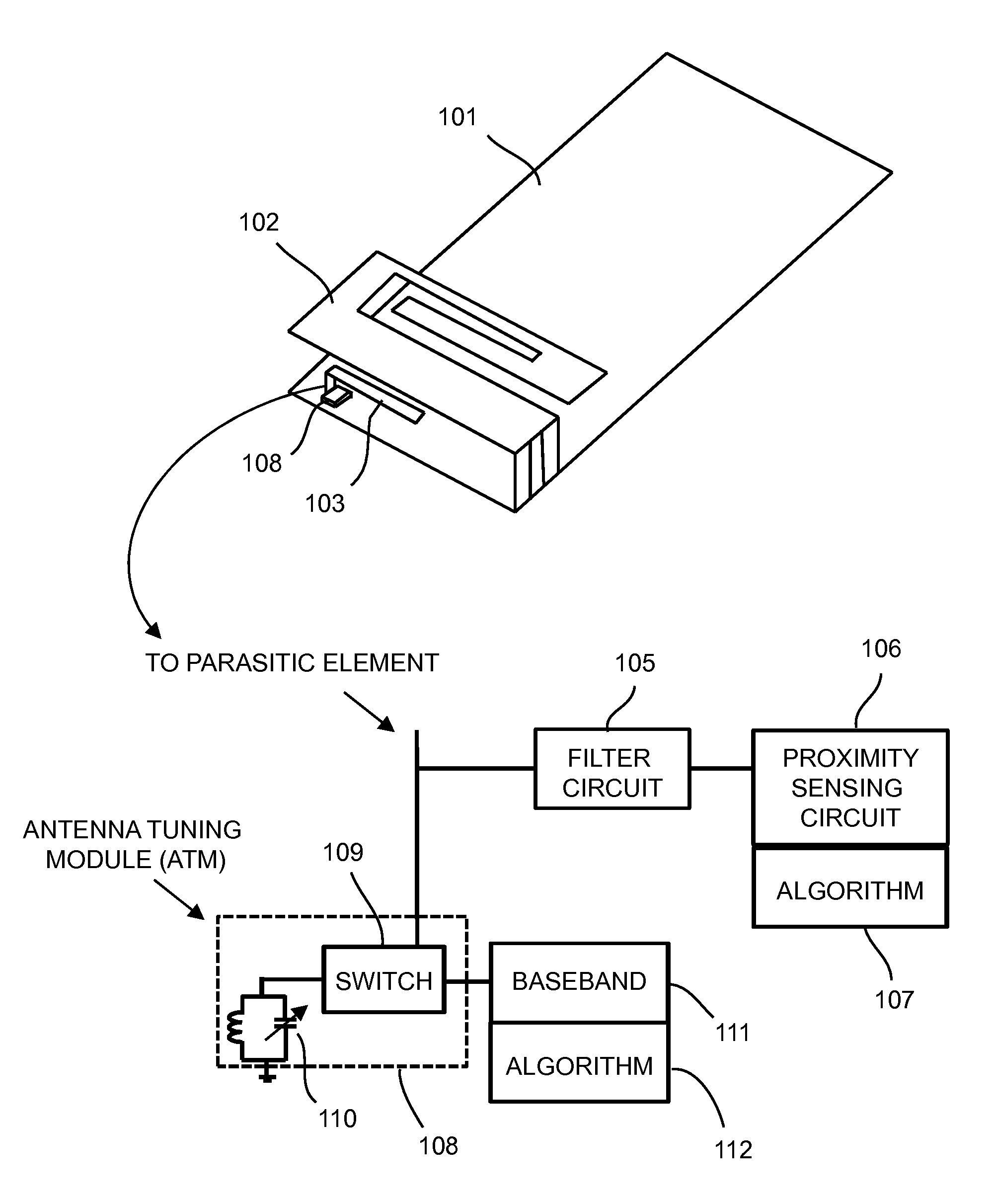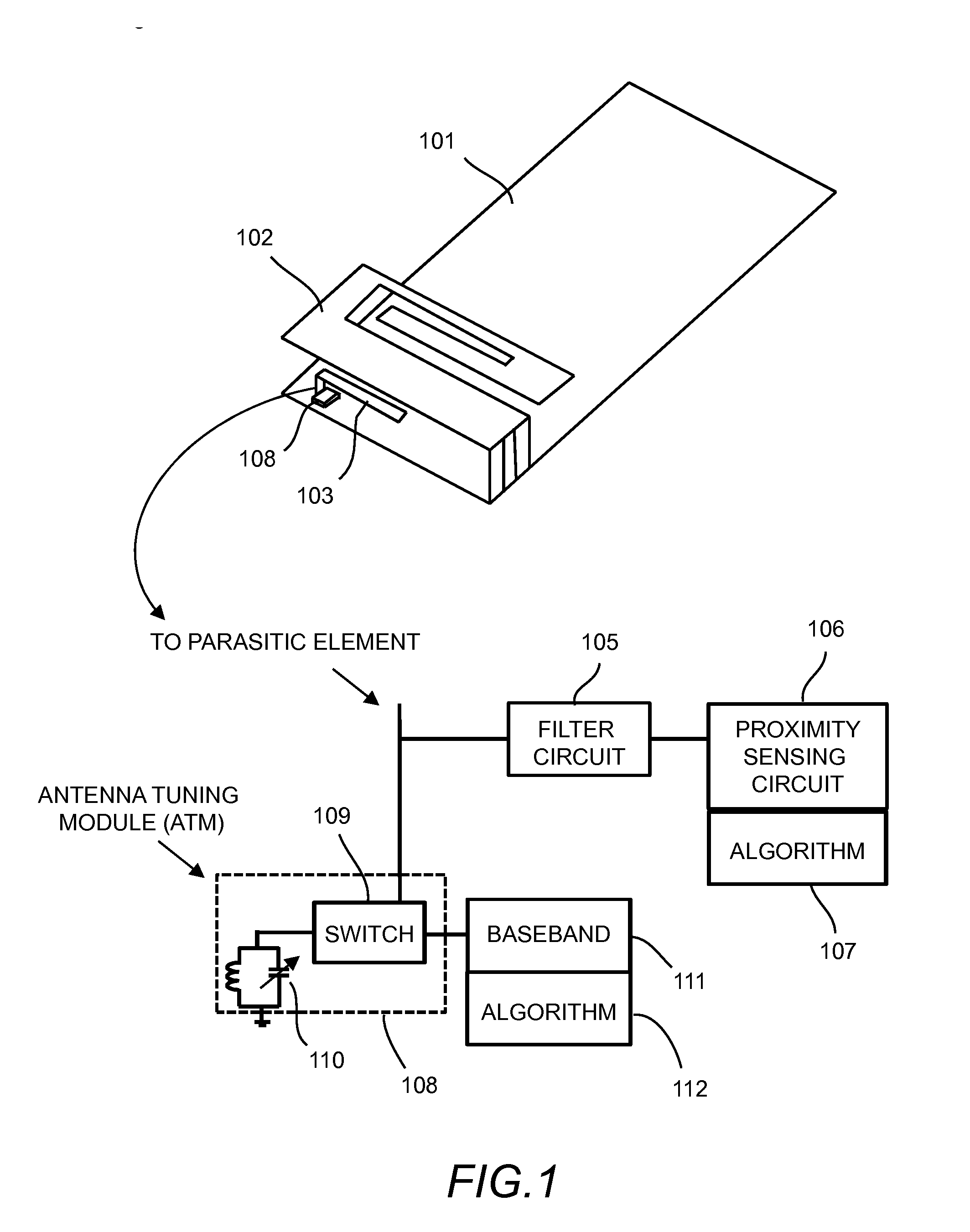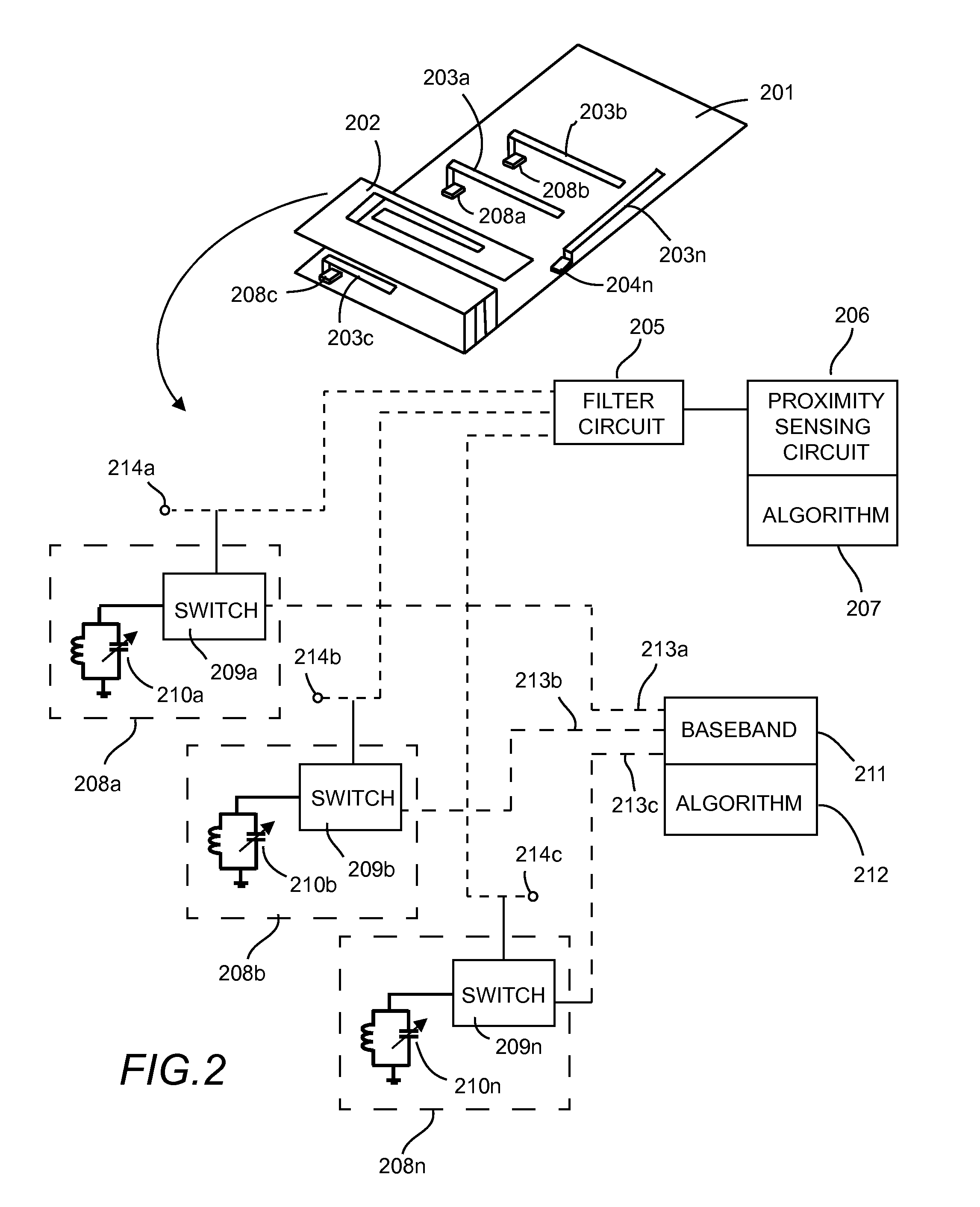Patents
Literature
750results about "Resonant antenna details" patented technology
Efficacy Topic
Property
Owner
Technical Advancement
Application Domain
Technology Topic
Technology Field Word
Patent Country/Region
Patent Type
Patent Status
Application Year
Inventor
Non-contact wireless communication apparatus, method of adjusting resonance frequency of non-contact wireless communication antenna, and mobile terminal apparatus
ActiveUS20090146892A1Range of resonance frequency can be extendedEasy to adjustBatteries circuit arrangementsElectromagnetic wave systemCapacitanceTerminal equipment
A non-contact wireless communication apparatus and a mobile terminal apparatus are provided. The non-contact wireless communication apparatus includes a non-contact wireless communication antenna, a resonance capacitor, connected in parallel with the non-contact wireless communication antenna, for obtaining a predetermined resonance frequency with the non-contact wireless communication antenna, a resonance frequency adjustment unit for changing a resonance capacitance of the resonance capacitor to adjust the resonance frequency, a capacitance change amount control unit for controlling a change in resonance capacitance of the resonance capacitor in the resonance frequency adjustment unit, a resonance frequency shift unit for shifting the resonance frequency of the non-contact wireless communication antenna, and on / off control unit for performing on / off control of the resonance frequency shift unit in accordance with the amount of change in resonance capacitance of the resonance capacitor by the capacitance variation control unit.
Owner:SONY CORP
Method and apparatus for insuring integrity of a connectorized antenna
InactiveUS6853197B1Verifies the integrity of an antennaNot easily removed and modifiedResistance/reactance/impedenceAntenna supports/mountingsElectrical resistance and conductanceTransceiver
An antenna is provided with an electronic component or circuit that has a value corresponding to properties of the antenna. A read mechanism reads the value and sets an operational status of a transceiver based on the value. In one embodiment, electronic component is a resistor having a value that identifies the antenna properties. A table may be used to correlate resistor values to different types of antennas or sets of antenna properties. Alternatively, the circuit can be embodied in a microchip that provides a response to a challenge sent by the read mechanism. The response encodes the properties of the antenna. The encoding scheme includes values from the challenge. Alternatively, the response is a code that is indexed into a table of antenna properties. In one embodiment, the antenna is connectorized.
Owner:QUALCOMM INC
Undersampled microstrip array using multilevel and space-filling shaped elements
InactiveUS7310065B2Mutual couplingDistanceSimultaneous aerial operationsRadiating elements structural formsCouplingMicrostrip array
An undersampled microstrip array using multilevel and space-filling shaped patch elements based on a fractal geometry achieves within the same electrical area, the same directivity than can be obtained using conventional elements as square or circular-shaped patches. However, the number of elements for the fractal-based array is less, reducing the complexity of the feeding network and overall array. Mutual coupling can be reduced avoiding radiation pattern distortions. Higher gain than that obtained using classical patch elements within the same electrical can be achieved due to the less complexity in the feeding network.
Owner:COMMSCOPE TECH LLC
Non-contact wireless communication apparatus, method of adjusting resonance frequency of non-contact wireless communication antenna, and mobile terminal apparatus
ActiveUS8260200B2Avoid areaEasy to manufactureBatteries circuit arrangementsSubstation equipmentCapacitanceTerminal equipment
A non-contact wireless communication apparatus and a mobile terminal apparatus are provided. The non-contact wireless communication apparatus includes a non-contact wireless communication antenna, a resonance capacitor, connected in parallel with the non-contact wireless communication antenna, for obtaining a predetermined resonance frequency with the non-contact wireless communication antenna, a resonance frequency adjustment unit for changing a resonance capacitance of the resonance capacitor to adjust the resonance frequency, a capacitance change amount control unit for controlling a change in resonance capacitance of the resonance capacitor in the resonance frequency adjustment unit, a resonance frequency shift unit for shifting the resonance frequency of the non-contact wireless communication antenna, and on / off control unit for performing on / off control of the resonance frequency shift unit in accordance with the amount of change in resonance capacitance of the resonance capacitor by the capacitance variation control unit.
Owner:SONY CORP
Antenna for a plurality of bands
InactiveUS20060097918A1Simultaneous aerial operationsAntenna supports/mountingsEngineeringMultiple frequency
The present invention provides an antenna for multiple bands employing a single antenna element 10, capable of operating in multiple frequency bands, and ideal for size reduction purposes. One end A of an antenna element 10 is electrically connected to a feeding point 12 and intermediate points B and C and the other end thereof is electrically connected via switches SWb, SWc, and SWd to a ground conductor 14. The electrical lengths of the antenna element 10 from the terminal to the intermediate points B and C plus connection lines from these points via the switches SWb and SWc to the ground conductor 14 and the electrical length from the one end A to the other end D plus a connection line from the other end via the switch SWd to the ground conductor 14 are set to be capable of resonating different desired frequency bands. By closing one of the switches SWb, SWc, and SWd, one of the desired frequencies can be selected and the antenna can resonate with that frequency. Thus, the antenna employing the single antenna element 10 can operate in multiple frequency bands.
Owner:YOKOWO CO LTD
Dual-band omnidirectional antenna for wireless local area network
InactiveUS6859176B2Easy to operateReduce manufacturing costSimultaneous aerial operationsAntenna supports/mountingsDual frequencyOmnidirectional antenna
The present invention relates to a dual-band omnidirectional antenna for wireless LANs. The antenna has a planar dielectric substrate, and first and second conductive patterns. The planar dielectric substrate has two parallel surfaces. The first conductive pattern is arranged on one surface of the substrate, and is provided with a first feeder line arranged on a longitudinal central line of the substrate and a plurality of radiating elements connected to the first feeder line and designed such that some of them operate in a high frequency band (4.9 to 5.85 GHz frequency band), and others thereof operate in a low frequency band (2.4 to 2.5 GHz frequency band). The second conductive pattern is arranged on the other surface of the substrate, and provided with a second feeder line arranged on a longitudinal central line of the substrate and a plurality of radiating elements connected to the second feeder line arid up-down symmetrically arranged with respect to the radiating elements on the first conductive pattern.
Owner:SUNWOO COMM +1
Method and apparatus for radio antenna frequency tuning
ActiveUS20120214421A1Desirable performanceMultiple-port networksReceivers monitoringTransceiverComputer science
Owner:NXP USA INC
Radio frequency identification device
InactiveUS20050052282A1Quickly and accurately receivedQuickly dissipating energySimultaneous aerial operationsAntenna supports/mountingsTransceiverAudio power amplifier
A radio frequency identification device includes a transceiver having a resonant circuit, a rectifier, a charge pump, a state machine, and a transmitter. The resonant circuit includes an antenna and has a resonant frequency. The rectifier is coupled to the resonant circuit to provide a rectified signal in response to energy from the antenna. The charge pump is enabled in response to the rectified signal to provide a first logic signal. The state machine provides a second logic signal in response to the first logic signal. The transmitter includes an amplifier coupled to the resonant circuit to form a Colpitts oscillator that is enabled by the second logic signal to transmit a response signal for identifying the radio frequency identification device.
Owner:RF CODE +1
Integrated multiband antennas for computing devices
ActiveUS7053844B2Simultaneous aerial operationsAntenna supports/mountingsEngineeringMultiple frequency
Multiband antennas are provided that can be embedded in computing devices such as portable laptop computers and cellular phones, for example, to provide efficient wireless communication in multiple frequency bands. For example, monopole multiband antennas, dipole multiband antennas, and inverted-F antennas are provided, which include one or more coupled and / or branch radiating elements, for providing multiband operation in two or more frequency bands.
Owner:LENOVO PC INT
Internal multi-band antennas for mobile communications
An internal multi-band antenna (10) for a mobile communication devices having a planar radiating element (12) and a ground plane conductor (14) disposed substantially parallel thereto with a dielectric (16) such as air or a substrate therebetween. The radiating element (12) includes at a feed point, for example, a feeding strap (18), which may have an L-shape. One or more shorting straps (20,22) are selectively connected between the radiating element (12) and the ground conductor (14), positioned relative to the feed point for tuning the input impedance at the feed point, and for tuning the resonant frequency of the planar radiating element (12). The radiating element includes an angled slot (26) having at least three slot sections, for example, N, M, W shapes and the like, mutually coupled at a second resonant frequency to increase resonant frequency bandwidth. The feeding strap (18) and one or more shorting straps may be provided as inverted L straps (30) for a series LC impedance.
Owner:MALIKIE INNOVATIONS LTD
Compact tunable antenna
InactiveUS7164387B2Broad tuning bandwidthLow efficiencySimultaneous aerial operationsAntenna supports/mountingsLength waveCellular telephone
The present disclosure relates to a method and an antenna for transmitting / receiving a RF signal at a plurality of different frequencies. Transmitting / receiving a RF signal at a plurality of different frequencies is achieved by providing a F antenna comprising a plurality of switches which can be used to adjust the resonant frequency of the antenna. By providing a F antenna, the antenna will be much smaller than the wavelength at which the antenna is operating. This allows the antenna to be used in compact devices such as PDA's and cellular phones.
Owner:HRL LAB
Plate-like multiple antenna and electrical equipment provided therewith
InactiveUS6847329B2Change lengthSimultaneous aerial operationsAntenna supports/mountingsElectrical conductorOptoelectronics
A slot 2 is defined by notching a conductor plate 1, a first radiation conductor 3 and a second radiation conductor 4 are disposed by sandwiching the slot 2 as a boundary, a third radiation conductor 5 connected to either of the first radiation conductor 3 or the second radiation conductor 4 is provided in the slot 2, if necessary, on and after third radiation conductors, for example, a fourth and fifth radiation conductors connected to either of the first radiation conductor 3 or the second radiation conductor 4 are provided, a power is supplied in the slot by the use of conductor edges of at least two radiation conductors, if required, whereby two monopole antennas and slot antennas, which use respective electric currents on the first radiation conductor 3 and the second radiation conductor 4, are electrically formed, besides, antennas other than that described above are electrically formed by utilizing electric currents over on and after the third radiation conductors.
Owner:HITACHI CABLE
Antenna structure and communication device using the same
ActiveUS7136020B2Degree of influence is relatively smallIncrease electrical lengthSimultaneous aerial operationsAntenna supports/mountingsCapacitanceFundamental frequency
An antenna structure includes a capacitance-rendering portion located between an open end portion of a feed radiation electrode and a ground portion. A switch for changing the capacitance between the open end portion of the feed radiation electrode and the ground portion rendered by the capacitance-rendering portion is provided. When the capacitance between the open end portion of the feed radiation electrode and the ground portion is increased by the capacitance-rendering portion, a resonant frequency in the fundamental frequency band, caused by the antenna operation of the feed radiation electrode, is reduced corresponding to the increased amount of the capacitance. When the capacitance between the open end portion of the feed radiation electrode and the ground portion is decreased by the changing operation of the capacitance-rendering portion, the resonant frequency in the fundamental frequency band is increased corresponding to the decreased amount of the capacitance.
Owner:MURATA MFG CO LTD
Integrated antenna for RFIC package applications
ActiveUS8988299B2Antenna supports/mountingsSemiconductor/solid-state device detailsParallel plateGround plane
A chip package includes a plurality of layers including conductive planes connected by vias. The layers include a first portion having an antenna formed therein and a parallel-plate mode suppression mechanism to suppress parallel-plate mode excitation of the antenna. The parallel-plate mode suppression mechanism includes a reflector offset from an antenna ground plane and first grounded vias. A second portion has an interface for connecting to an integrated circuit device wherein the first portion and the second portion are separated by the parallel-plate mode suppression mechanism.
Owner:GLOBALFOUNDRIES U S INC
Planar antenna and antenna system
InactiveUS7030827B2Easy to manufactureImprove assembly strengthWaveguide mouthsAntenna supports/mountingsPhysicsCylindrical waveguide
The present invention relates to a planar antenna (1) for excitation of the TE01-mode of an electromagnetic wave and adapted to be arranged in a waveguide tube (2). The planar antenna comprises a substrate (6) of dielectric material having a first surface (7) intended to face towards a filling good surface and a second surface (8) facing in an opposite direction. A first group (9) of a plurality of dipole arms (10) is arranged on the first surface (7) or the second surface (8) on a perimeter of a circle with a predetermined radius. A second group (11) of a plurality of dipole arms (12) is arranged on the first surface (7) or the second surface (8) on the perimeter of the circle with the predetermined radius. The dipole arms (10) of the first group (9) extend in a first direction and the dipole arms (12) of the second group (11) extend in a direction opposite the first direction. Furthermore, the present invention relates to an antenna system comprising a cylindrical waveguide tube (2) having a bottom plate (3) and a tube portion (4) and a planar antenna (1) as mentioned above.
Owner:VEGA GRIESHABER GMBH & CO
PxM antenna for high-power, broadband applications
InactiveUS7215292B2Increase/decrease usable bandwidthHigh bandwidthResonant antenna detailsPolarised antenna unit combinationsBroadbandWide band
A broadband antenna including both electric and magnetic dipole radiators is provided herein. The broadband antenna may be referred to as a “P×M antenna” and may include a pair of magnetic loop elements, each having multiple feed points symmetrically spaced around the loop element. The broadband antenna may also include an electric dipole element arranged between the pair of magnetic loop elements. In general, the electric dipole element and the magnetic loop elements may be coupled together through a network of transmission lines, as opposed to being incorporated into a single radiative element.
Owner:TDK CORPARATION
Multiple frequency band antenna and signal receiving system using such antenna
InactiveUS6965353B2Easy to receiveSimultaneous aerial operationsRadiating elements structural formsDipole antennaMultiple frequency
A multiple frequency band antenna includes a dipole antenna (4a), which is formed of two dipole antenna elements (8a, 10a). Two extension elements (24a, 26a) extend outward from respective ones of opposed outer ends of the dipole antenna (4a). The length of the dipole antenna (4a) is determined to make the multiple frequency band antenna capable of receiving radio waves in the UHF band, and the sum of the lengths of the dipole antenna (4a) and the extension elements (24a, 26a) is determined to make the multiple frequency band antenna capable of receiving radio waves in the VHF band. PIN diodes (28a, 34a) are connected between the respective extension elements (24a, 26a) and the respective outer ends of the dipole antenna (4a). When a radio wave in the UHF band is to be received, a control unit (180) places the diodes (28a, 34a) selectively in a state in which both are opened, a state in which one of the diodes (28a) is closed while the other (34a) is opened, and a state in which the one diode (28a) is opened while the other (34a) is closed.
Owner:DX ANTENNA CO LTD
Antenna with multiple coupled regions
InactiveUS20110032165A1Simultaneous aerial operationsRadiating elements structural formsResonanceMultiple frequency
An antenna having a driven element coupled to multiple additional elements to resonate at multiple frequencies. A magnetic dipole mode is generated by coupling a driven element to a second element, and additional resonances are generated by coupling additional elements to either or both of the driven or second element. One or multiple active components can be coupled to one or more of the coupled elements to provide dynamic tuning of the coupled or driven elements.
Owner:HENG CHEW CHWEE +3
Method and apparatus for radio antenna frequency tuning
ActiveUS8712340B2Desirable performanceMultiple-port networksReceivers monitoringTransceiverComputer science
Owner:NXP USA INC
Dynamic antenna selection in a wireless device
Techniques for supporting a plurality of radios (240) on a wireless device (110) with a limited number of antennas (210) are described. In one design, at least one radio may be selected from among the plurality of radios on the wireless device. At least one antenna may be selected for the at least one radio from among a plurality of antennas, e.g., based on a configurable mapping of the plurality of radios to the plurality of antennas. One or more antennas may be shared between radios to reduce the number of antennas. The at least one radio may be connected to the at least one antenna, e.g., via a switchplexer (220). Antenna selection may be performed dynamically (e.g., when the at least one radio becomes active, or when a change in performance of the at least one radio is required) such that good performance can be obtained.
Owner:QUALCOMM INC
Antenna device and wireless communication apparatus
ActiveUS20090128428A1Exact matchImprove antenna efficiencySimultaneous aerial operationsAntenna supports/mountingsCapacitanceBroadband
An antenna device capable of not only achieving multiple resonances and wideband characteristics but also achieving improvement of antenna efficiency and accurate matching at all resonant frequencies, and a wireless communication apparatus. In one example, an antenna device 1 includes a radiation electrode 2 to which power is capacitively fed through a capacitor portion C1, and additional radiation electrodes 3-1 to 3-3 branched from the radiation electrode 2. A distal end portion 2a of the radiation electrode 2 is grounded to a ground region 402, and is a portion at which a minimum voltage is obtained when power is fed. A capacitor portion C2 that is a portion at which a maximum voltage is obtained when power is fed is disposed in a proximal end portion 2b of the radiation electrode 2, and a variable capacitance element 4 which is grounded is connected in series with the capacitor portion C2. The additional radiation electrodes 3-1 to 3-3 are connected to the radiation electrode 2 through switch elements 31 to 33, and include reactance circuits 5-1 to 5-3 in a middle thereof. Distal end portions of the additional radiation electrodes 3-1 to 3-3 are grounded to the ground region 402.
Owner:MURATA MFG CO LTD
Integrated multiband antennas for computing devices
ActiveUS20050195119A1Simultaneous aerial operationsAntenna supports/mountingsEngineeringMultiple frequency
Multiband antennas are provided that can be embedded in computing devices such as portable laptop computers and cellular phones, for example, to provide efficient wireless communication in multiple frequency bands. For example, monopole multiband antennas, dipole multiband antennas, and inverted-F antennas are provided, which include one or more coupled and / or branch radiating elements, for providing multiband operation in two or more frequency bands.
Owner:LENOVO PC INT
Mobile communication device
InactiveUS6950065B2Simultaneous aerial operationsAntenna supports/mountingsElectrical conductorNetwork connection
A mobile communications device has a multifrequency band antenna with a low band portion (LB) tuned to a low frequency band, and a first high band portion (HB1) tuned to a first high frequency band at higher frequencies than the low frequency band. The low band portion (LB) and the first high band portion (HB1) have a common first grounding point (GP1), a common feeding point (FP) for feeding input signals to the antenna and for receiving signals from the antenna, and a first conductor portion (CP1), which forms part of the low band portion (LB) and of the first high band portion (HB1). The first conductor portion (CP1) is electrically connected to the first grounding point (GP1) and to the common feeding point (FP). A second high band portion (HB2) is coupled to the first conductor portion (CP1) and tuned to a second high frequency band at a higher frequency than the low frequency band and different from the first high frequency band. A switching network is connected between the second high band portion and ground, allowing the resonant frequency of the second high band portion to be varied, on the basis of a signal which depends on the operating mode of the device, thereby allowing four band operation.
Owner:TELEFON AB LM ERICSSON (PUBL)
Power feed device, power receiving device, and wireless power feed system
A power feed device includes: a power generator configured to generate power that should be fed; a power feed element configured to be formed of a coil fed with power generated by the power generator; a resonance element configured to be coupled to the power feed element by electromagnetic induction; and a variable matching unit configured to include a function for impedance matching at a point of feed of the power to the power feed element, wherein a diameter of the power feed element is changeable, and the variable matching unit is capable of changing the diameter of the power feed element.
Owner:SONY CORP
Crossed-drooping bent dipole antenna
InactiveUS6211840B1Resonant antenna detailsElongated active element feedClassical mechanicsDipole antenna
An antenna comprising at least one dipole, the dipole comprising a pair of arms drooping relative to a plane orthogonal to a central axis, end portions of the arms being bent back toward the central axis. In one form of the invention the arms are bent back toward the central axis in at least one plane which is parallel to the central axis, and in another form of the invention the dipole arms are bent in the same rotational direction out of a pland which includes the central axis.
Owner:EMS TECH CANADA
Tunable antenna system with receiver diversity
ActiveCN102684722AAdd other featuresSimultaneous aerial operationsAntenna supports/mountingsDielectricDisplay device
A wireless electronic device (10) may include antenna structures (40U) and antenna tuning circuitry. The device (10) may include a display (14) mounted within a housing (12). A peripheral conductive member (16) may run around the edges of the display and housing. Dielectric-filled gaps (18C) may divide the peripheral conductive member (16) into individual segments (16-1, 16-2). A ground plane (G) may be formed within the housing. The ground plane (G) and the segments (16-1, 16-2) of the peripheral conductive member (16) may form antennas in upper and lower portions of the housing (12). The antenna tuning circuitry may include switchable inductor circuits (210') and variable capacitor circuits (212-1) for the upper and lower antennas. The switchable inductor circuits (210') associated with the upper antenna may be tuned to provide coverage in at least two high-band frequency ranges of interest, whereas the variable capacitor circuits (212-1) associated with the upper antenna may be tuned to provide coverage in at least two low-band frequency ranges of interest.
Owner:APPLE INC
Electronically tunable quad-band antennas for handset applications
An electronically tunable quad-band antenna which includes a tunable high band antenna tuned by at least one tunable varactor associated therewith; the tunable high band antenna further includes a substrate, a patch element on said substrate, at least one voltage tunable varactor associated with the patch element, a DC bias point on the patch element, an RF input on the patch element, and a temperature sensor associated with the high band pass antenna. Also included in a preferred embodiment of the electronically tunable quad-band antenna of the present invention is a tunable low band antenna tuned by at least one tunable varactor associated therewith, the tunable low band antenna further including a substrate, a patch element on said substrate, at least one voltage tunable varactor associated with said patch element, a DC bias point on said patch element, an RF input on said patch element, and a temperature sensor associated with said low band pass antenna.Also included is a controller receiving control data, and receiving output information from said low band antenna and output information from said high band antenna and controlling a first bias voltage for biasing the at least one voltage tunable varactor associated with the high band antenna and a second bias voltage for biasing the at least one voltage tunable varactor associated with the low band antenna. The bias voltages can be provided by a DC to DC converter regulator.
Owner:NXP USA INC
Antenna and wireless communication device
ActiveCN101111972AAchieving multiple resonance statesRealize BroadbandSimultaneous aerial operationsResonant antenna detailsLow voltageCommunication device
An antenna and a wireless communication device in which a plurality of resonant frequencies can be changed simultaneously by a desired range at a low voltage are provided. An antenna 1 includes a first antenna section 2 and a second antenna section 3. The first antenna section 2 is formed of a feeding electrode 5, a frequency-changing circuit 4, and a radiating electrode 6, and the second antenna section 3 is formed of the feeding electrode 5, a first reactance circuit 4a, and an additional radiating electrode 7. The frequency-changing circuit 4 has a circuit configuration in which the first reactance circuit 4a and the second reactance circuit 4b are connected. When a control voltage Vc is applied to a node P, the reactances of the first and second reactance circuits 4a and 4b change in accordance with the magnitude of the control voltage Vc, so that a resonant frequency f1 of the first antenna section 2 and a resonant frequency f2 of the second antenna section 3 change simultaneously.
Owner:MURATA MFG CO LTD
Antenna Device and Portable Radio Communication Device Comprising Such Antenna Device
InactiveUS20080287084A1Sufficient performanceImprove performanceSimultaneous aerial operationsAntenna supports/mountingsResonanceElectrical impedance
An antenna device for a portable radio communication device adapted for receiving radio signals comprises an internal radiating element (10) comprising at least one feeding portion (21, 22) connected to a receiver circuit (40). The radiating element (10) comprises an electrical impedance (30) that is controllable in dependence on the desired frequency range of the received signals, wherein the feeding portion (21, 22) is connected to a feeding input (40a, 40b) on the receiver circuit and the control input of the controllable electrical impedance (30) is connected to an output (40c) on the receiver circuit (40) intended for the control of the VCO resonance frequency of the receiver circuit. In that way an antenna device can be provided inside the casing of a small sized portable radio communication device, which has good performance throughout a narrow sub-band of a frequency band having a relatively low frequency, wherein the narrow sub-band can be adjusted in frequency so as to cover the entire frequency band, such as the FM radio band.
Owner:LAIRD TECH AB (SE)
Antenna with proximity sensor function
ActiveUS20140071008A1Simultaneous aerial operationsAntenna equipments with additional functionsCapacitanceBeam steering
An antenna with proximity sensor function is disclosed, the antenna includes at least one parasitic element coupled to a filter circuit and a proximity sensing circuit for sensing a load on the parasitic element to determine load capacitive loading characteristics for sensing user leading of the device. By sensing the user loading or mode of the device, the antenna can be reconfigured with beam steering or frequency shifting adjustments.
Owner:KYOCERA AVX COMPONENTS (SAN DIEGO) INC
Popular searches
Features
- R&D
- Intellectual Property
- Life Sciences
- Materials
- Tech Scout
Why Patsnap Eureka
- Unparalleled Data Quality
- Higher Quality Content
- 60% Fewer Hallucinations
Social media
Patsnap Eureka Blog
Learn More Browse by: Latest US Patents, China's latest patents, Technical Efficacy Thesaurus, Application Domain, Technology Topic, Popular Technical Reports.
© 2025 PatSnap. All rights reserved.Legal|Privacy policy|Modern Slavery Act Transparency Statement|Sitemap|About US| Contact US: help@patsnap.com

